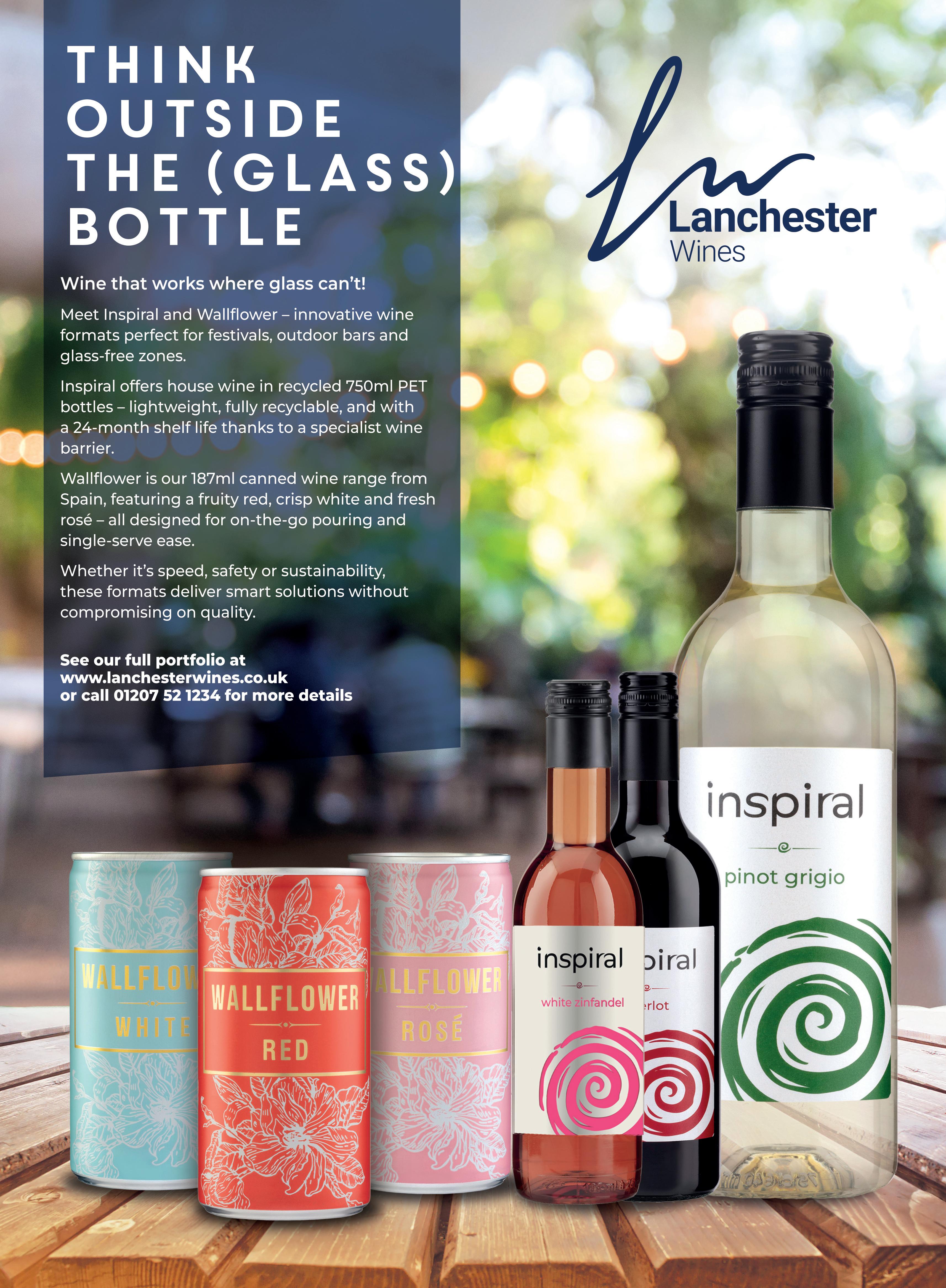


















EDITOR Peter Adams
There is no “sugar-coating it, our lead story, a damning assessment from sector leaders and organisations makes for sobering reading.
But it should surprise no one who has been watching the slow-motion catastrophe unfold across our sector over the past twelve months. I have repeatedly wrote about it since we receive much comment not only from sector leaders and organisations but also from grass root operators. Add to that our own experience trading in this current environment, it really is “no day at the beach for any business”!
Labour's first year in office has been nothing short of a masterclass in how to systematically dismantle an industry that employs over 3.2 million people and contributes £132 billion annually to the UK economy. The £3.4 billion cost increase delivered in April 2025 alone represents more than policy miscalculation – it's economic vandalism against businesses that were already on their knees.
PROMISES MADE, PROMISES BROKEN
Labour's manifesto commitments were meant to revitalise our high streets and support grassroots venues. Their pledges, after years of stagnation resonated with an industry desperate for a government that understood the cultural and economic value of hospitality.
Yet here we are, witnessing the opposite: a 15.8% contraction in independent nightlife businesses, doubled business rates bills, and only one in four pubs making any profit. The irony is stark. A government that campaigned on supporting working people has delivered policies that are destroying the very businesses that provide employment, training, and career progression for millions of those same working people.
April 2025 will be remembered as the month this government devastated hospitality. The timing couldn't have been worse – or more revealing of a government that simply doesn't understand how businesses operate, something I read more and more in mainstream media.
Spring should be the season of recovery, when venues build momentum for the crucial summer trading period. Instead, operators were hit with a financial tsunami that many describe as the final straw.
The £1.9 billion in additional wage costs, combined with National Insurance rises and
the slashing of business rates relief, created a perfect storm that has pushed viable, wellrun businesses over the edge. These weren't zombie companies clinging to life – these were profitable enterprises that contributed to their communities and supported local employment.
Perhaps most frustrating is the government's apparent inability to grasp the urgency of the crisis, something the NTIA make clear. While ministers talk about 2030 visions and long-term strategies, businesses are closing today. The licensing reform pilot in London, while welcome, is a drop in the ocean compared to the immediate support needed across the sector.
The £30 million Music Growth Fund, though positive, barely registers against the scale of devastation. It's the equivalent of applying a plaster to a severed artery.
What's being lost goes far beyond balance sheets. The decline of independent venues in particular represents a cultural catastrophe that will impoverish our communities for generations. I was once one a thriving independent venue and enjoyed my time immensely, I probably would not survive now!
The sector's call for the government to rule out further tax increases isn't just about business survival – it's about preserving the soul of British social life. Our pubs, clubs, restaurants, and venues are where democracy happens, where ideas are exchanged, where the fabric of society is woven together.
Chancellor Rachel Reeves must listen to this plea. The autumn budget represents perhaps the final opportunity to prevent irreversible damage to one of the UK's most vibrant and globally celebrated industries.
As Michael Kill warns, we are approaching a serious cliff edge. The consequences of inaction will be felt not just in empty high streets and silent venues, but in the diminished cultural life of our nation.
This government came to power promising change. The hospitality sector is indeed experiencing change – but it's the kind that destroys rather than builds, that silences rather than celebrates, that divides rather than unites.
The clock is ticking. The sector has spoken, and we are delighted to lead with it. Now it's time for the government to listen – and act.
I would encourage all our readers to follow us on X/Twitter @CLHNews and visit our website at www.catererlicensee.com to sign up for our twice weekly e-newsletter for all the latest news delivered directly to your inbox. I can always be contacted at edit@catererlicensee.com
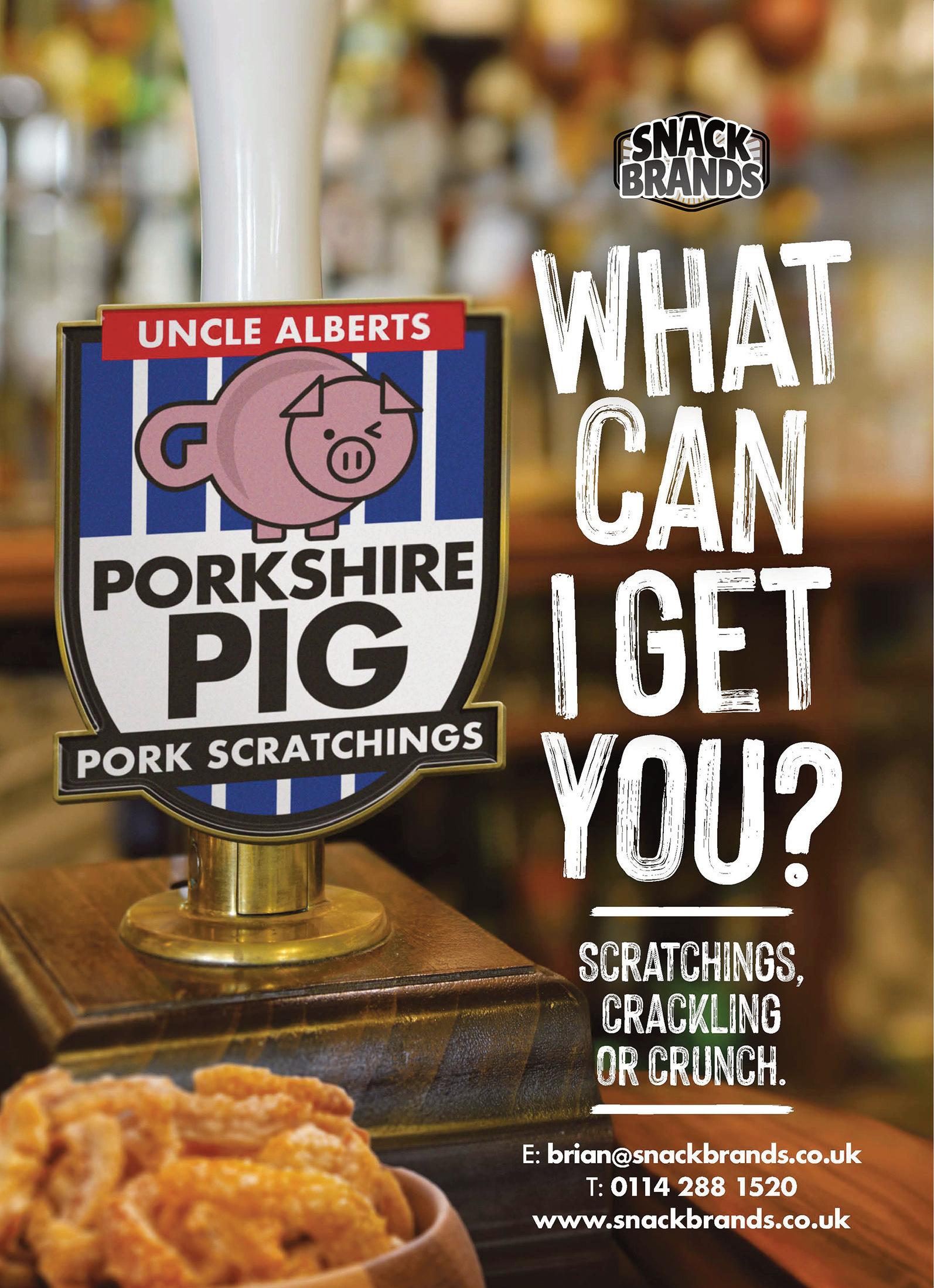



and

(CONTINUED FROM FRONT COVER)
DEVASTATING CHAPTER
Michael Kill, CEO of the NTIA, said: “This past year has been a devastating chapter for the night time economy. Labour entered government on the strength of clear promises to reinvigorate our high streets, uplift cultural and grassroots venues, and protect the jobs and livelihoods of those in nightlife, hospitality, and entertainment. Yet those pledges have not just fallen short, they’ve been cast aside. Instead of delivering tangible action and a decisive strategy to stabilise and grow the sector, we’ve been met with indecision and distant, long-term proposals that fail to address the immediate crisis facing our industry.”
British Institute of Innkeeping (BII) CEO Steve Alton noted that despite the Prime Minister's expressed support for the nation's pubs and their role as community centres, the Government's current policies appear to be undermining these establishments rather than supporting them.
“At a time when pubs were already struggling to make a sustainable profit through unfair energy prices, embedded high inflation in food and drink costs, paying back covid related debt and escalating costs of employment, they were hammered with additional taxes.”
“The cost of employment has risen significantly, and business rates bills have doubled leaving only one in four making any profit.
“This has resulted in reduced trading hours, lost jobs, cancelled investment and has stifled vital growth.”
“With fair taxes pubs can provide local skilled employment for people from all backgrounds, can underpin local regeneration, provide vital support for local suppliers and brewers, continue to provide an essential community hub open to all and provide vital economic growth,” said Alton, calling for the Government to take a different approach to the sector moving forward.
“As it enters its second year in office this Government can take action to get behind our nations pubs, unlock employment opportunities and growth while also preventing unnecessary failure of long-standing pub businesses that are a unique part of our national heritage and day to day life,” he added.
The government does point toward some positive changes to the sector, Labour's commitment to business rates reform has been cautiously welcomed, though operators remain sceptical about timelines and the scope of proposed changes. The government's promise to tackle anti-social behaviour through increased policing investment addresses a genuine concern for many venue operators, particularly those in urban centres.
However, the most tangible positive development has been the government's pledge to reduce regulatory red tape, with licensing law reforms showing early promise.
A landmark pilot programme in London has granted the Mayor new powers to facilitate alfresco dining and extended opening hours, potentially serving as a template for wider reform.
The modest beer duty cut, while welcome, was seen by many as a token gesture that barely dented the overall cost increases facing the sector.
NTI CEO Kill described the past year as a litany of missed opportunities. Since July 2024, the NTIA has made repeated attempts to work collaboratively with government ministers and local authorities to address the needs of nightlife businesses, yet time and again, critical interventions have either been delayed, diluted, or quietly discarded.
“Labour had the opportunity to reset a decade of neglect. Instead, we’ve seen repeated failures to deliver comprehensively on business rates reform, no targeted support for venues facing skyrocketing energy and operational costs, the introduction of additional regulatory pressures through the forthcoming employment rights bill and a glaring lack of recognition for the role our sector plays in local economic regeneration and national cultural life.”
To make matters worse, the Government’s tax hikes introduced on 1st April 2025 pushed many already fragile businesses over the line. The sharp and ill-timed increase in costs compounded an already unsustainable operating environment, with many venues now either barely breaking even or actively losing money, with many independent businesses burdened with trying to find between £30-£80k in additional operating cost. The NTIA warns that this financial tipping point will accelerate closures in the second half of the year.
“The swift movement of the dial from 1st April, with tax increases and rising employer contributions, was a devastating blow. For many, it was the final straw. These weren’t marginal businesses clinging on, these were viable, well-run venues that simply couldn’t absorb another wave of pressure.”
A central criticism from the NTIA is that although the government offers long-term solutions the problems are much more are urgent and immediate. Businesses facing closure this quarter cannot wait years for incremental licensing reform or regeneration initiatives that may never reach nightlife zones.
“We’re not being offered lifelines, we’re being handed policy wishlists with 2030 timeframes while businesses are closing today. This is a crisis, and it’s being met with complacency or worse, negligence.”
One of the most alarming trends over the past year has been the decline of grassroots and independent businesses. The NTIA has recorded a 15.8% contraction in the independent night time economy sector, a devastating figure that reflects the collapse of vital community institutions. Independent operators, who once formed the creative and cultural backbone of the UK’s nightlife, are being pushed out at scale, unable to cope with rising fixed costs, post-pandemic debt, and zero access to meaningful financial support.
“The journey for grassroots and independent businesses over the past year has been defined by uncertainty and isolation. These are the venues and people who took all the risks, who brought creativity and community to our cities, and they’ve been left to fend for themselves with no strategic backing from the Government.”

The recent announcement of government funding for the creative industries, alongside the DCMS Creative Industries Sector Vision as part of the wider industrial strategy, lacks clarity in its transactional intent.
“In today’s economic climate, any funding is welcome, but the Arts Everywhere Fund promotes a narrow, classically-focused narrative, with little relevance to contemporary music or the night time economy. Likewise, the £30 million Music Growth Fund, while positive, is a drop in the ocean. To meet the scale of need across the UK’s creative sectors, far greater ambition, investment, and clarity of purpose are urgently required.”
STRUCTURAL AND REGULATORY FAILINGS
In addition to financial pressure, the late-night economy is being suffocated by structural and regulatory failings. Operators continue to suffer from a lack of basic supporting infrastructure, late-night public transport is inconsistent or absent, street-level sanitation and lighting are insufficient, and venue owners are left dealing with rising anti-social behaviour without adequate policing support. This is further compounded by licensing regimes that Kill describes as “outdated, inconsistent and punitive.”
“We are navigating a licensing framework that is restrictive at best, hostile at worst. Local authorities and Police are risk-averse, over-cautious, and lacking any joined-up thinking when it comes to nightlife. Add to that the absence of police visibility on our streets and failing night-time infrastructure, and you have a sector being set up to fail. Crucially, the political will for true change in terms of licensing reform is yet to be seen, without bold, coordinated action at the highest levels of government, the barriers facing the sector will only deepen.”
Following last night’s chaotic developments surrounding the Welfare Bill, and with the cost base for businesses continuing to rise without a clear, sustainable plan, the NTIA is urgently calling on the Government to rule out further tax increases. Any additional fiscal burden would have devastating consequences for an already fragile industry.
The sector is demanding a firm commitment from the Chancellor: no new or increased taxes, no further policy or legislative pressures, and an environment where businesses can recover, contribute, and collaborate, not merely serve as a convenient source of government revenue.
“Looking ahead to the second half of 2025, we urge the Government to re-engage meaningfully with our industry. This requires not just promises, but direct action in the Autumn Budget, by committing to creating financial headroom for the sector, strategic and targeted relief for the most vulnerable of businesses, and licensing reform which is enabling and permissive, allowing us to trade. The long term strategy is important, but please recognise that if the immediate issues are not dealt with many businesses will not see the benefit of these long term reforms.”
“We are approaching a serious cliff edge. This is no longer just an economic debate, it’s about preserving our identity, our communities, and our culture. If the Government fails to act swiftly, the consequences will be irreversible. We risk dismantling one of the UK’s most vibrant, inclusive, and globally celebrated industries.”
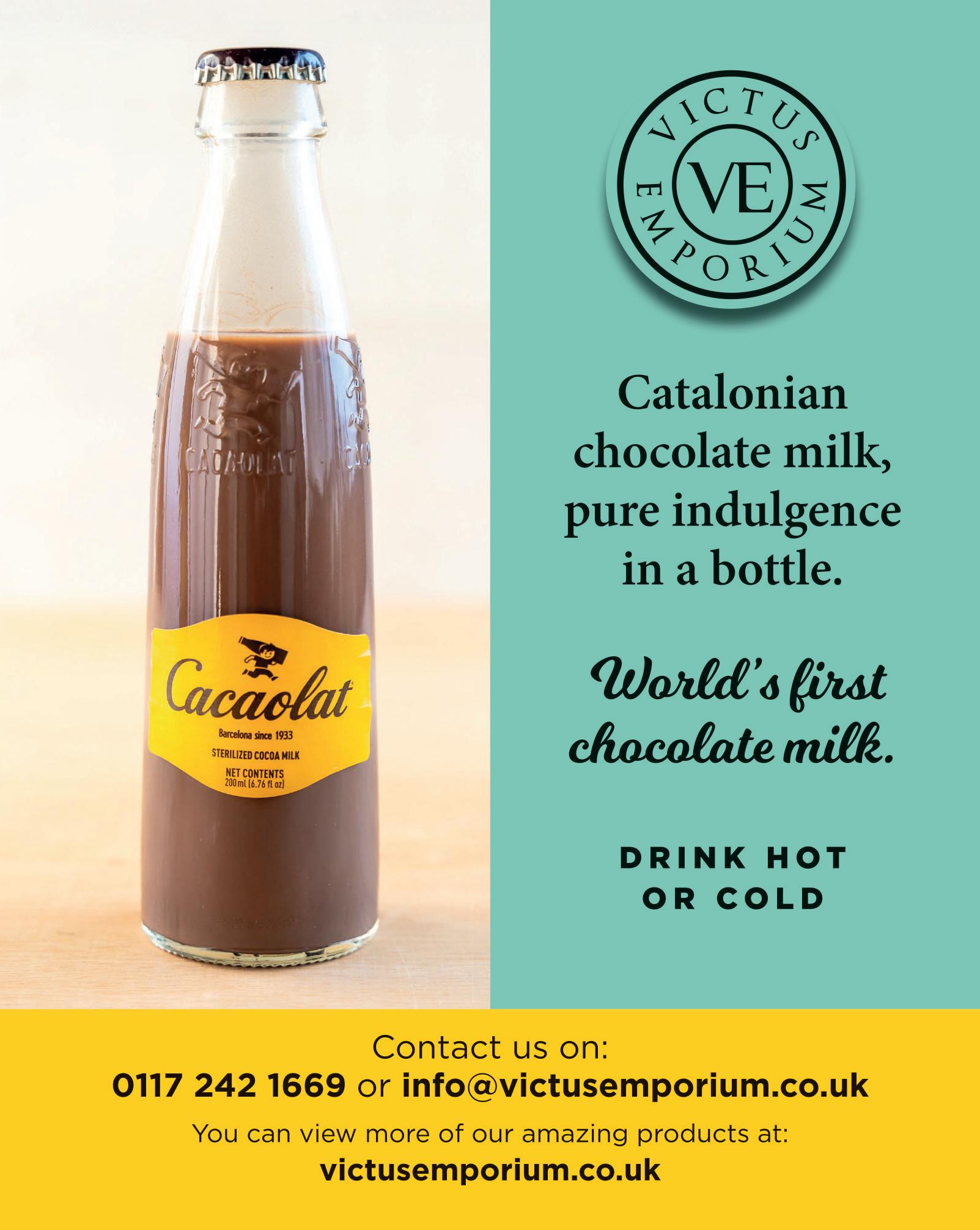
By Joseph Fletcher-Hunt & Mark Turner, Partners at Aaron & Partners

Jeremy Clarkson returned to our screens with Clarkson’s Farm – and in this series he’s not just pig wrangling or arguing with the council. He’s also been dealing with one of the quirkiest pub planning conditions you may ever hear of: a clause requiring the pub garden to remain a public “picnic area” –complete with toilets.
It makes for great television. But for pub owners, restaurateurs and hotel operators, it highlights a far more serious point: rural properties can come with complex and unusual legal obligations that aren’t just inconvenient – they can stop a business trading.
Many licensees dream of opening a country pub or diversifying an existing hospitality business with new ventures like farm shops, taprooms or boutique stays. But beneath the surface of those idyllic settings can lie a tangle of legal restrictions that derail even the best-laid plans.
In rural areas, properties often come with layers of historic deeds, ancient rights and inherited obligations. These can include:
• Restrictive covenants: Forbidding commercial activity or limiting specific uses (like alcohol sales or alterations).
• Planning conditions or Section 106 agreements: That can tie you to unusual obligations (hello, picnic zones).
• Rights of way: Public or private access across your car park, beer garden or kitchen yard.
• Maintenance liabilities: Covering access roads, walls, drains or even historic wells.
• Easements: That grant utility companies (or neighbours) the right to dig, maintain or cross your land.
• Overage clauses: That require you to pay a previous owner a slice of the pie if you secure planning permission. These aren’t just legal curiosities. They’re everyday problems we see in practice – and they can delay openings, add unexpected costs, or sink a deal altogether.
Let’s say you’ve found a picture-perfect village inn. The price is right, and the location is ideal for your brand. But only later do you discover a clause that prohibits commercial development or limits your opening hours, or that there is a public footpath through your land.
By this point, you’ve likely spent money on surveys, legal checks, branding, supplier negotiations and maybe even staffing. The emotional and financial commitment is real – and unravelling it can be costly. Add to that the issue of bank funding: lenders won’t tolerate ambiguity and could pull out if they believe legal issues threaten your business model.
The biggest misconception is that legal checks start after an offer is accepted. By that time, you're already locked in – especially in fast-moving markets. We always advise clients to seek guidance before making an offer, and to ask the vendor upfront about any known restrictions.
A good legal team is worth its weight in gold. They can:
• Review deeds (if available) to spot risks
• Translate legal jargon
• Assess planning risks – including whether consent for change of use is required and likely to be granted
• Liaise with local authorities to get clarity on any constraints
It’s also vital to protect any offer by building in contractual conditions that give you an exit route if a problem arises later. This is especially important when negotiating premiums and rents for a lease. The more you know about the site, the more leverage you have.
Clarkson’s unexpected “picnic clause” may have drawn laughs, but it’s a textbook example of how strange obligations can be inherited. As rural pubs evolve – adding glamping pods, brewery extensions or new customer experiences – there’s an increasing risk of legal tripwires, with ventures often straddling multiple areas of law.
But we have to remember these businesses are also vital to the rural economy. Pubs and restaurants bring jobs, tourism, food education and community cohesion. It’s in everyone’s interest to help them succeed – and the best way to do that is with the right due diligence and going in with eyes wide open from the start.
UKHospitality has warned of further red tape and costs stifling the sector if blunt measures are enforced.
The warning follows the Department of Health and Social Care’s announcement of its 10-year health plan for England, outlining how it plans to get the NHS back on its feet and fit for the future.
Rightly, a focus for the Government is combating obesity and improving the nation’s health, but there is no blanket approach to achieving that goal and not all food businesses can be painted with the same brush.
Hospitality is playing a key role in supporting the Government’s ambition, with significant investments and changes having been instigated and implemented by the sector, including menu development and reformulation, and an increase in healthy food choices being available.
Hospitality businesses are committed to ensuring their customers have a wide variety of menu options and nutritional information available, to allow them to make informed food choices.
UKHospitality is calling for the Government to collaborate and co-develop measures that can make a positive, genuine difference to the country’s health, in a way that’s viable for hospitality businesses.
Kate Nicholls, Chair of UKHospitality, said: “We are calling for clarity and detail from Government on the new measures outlined in its 10-year health plan, such as what mandatory reporting is set to look like, and
which businesses are eligible.
“Collaboration with the sector will be key as enforcing blunt and ill-suited measures upon business will not deliver genuine change but will instead add further red tape and cost. That cost will be passed onto the consumer, with hospitality businesses unable to absorb any further cost.
“The hospitality sector is up for the challenge of developing a healthier nation, and it’s undeniable we’re already doing a huge amount of work to do just that.”
“It’s also important to remember that hospitality is a place for special occasion, and where many people gather for a treat. Whether it’s a trip to the local pub, dining out at a restaurant getting a takeaway, these are occasions that really matter to people and what they look forward. These instances aren’t a daily occurrence and likely to be a treat every few weeks or months.”
“We need to ensure the sector isn’t pushed into new rules that end up tainting these experiences. Therefore, working in tandem with Government across a holistic approach that spans across consumers, food businesses, the supply chain and education, is the best way to deliver the food revolution it craves. Not only will this keep the doors hospitality businesses open, but it also protects a staple of British culture.”
chain Ping Pong has permanently closed its doors after two decades in the London restaurant scene. The brand announced the closure of its remaining four sites through social media, bringing an end to what was once a thriving independent hospitality business.
In a farewell message posted on Instagram, the company reflected on its journey: “After 20 unforgettable years, all Ping Pong locations are now permanently closed. We’re incredibly proud of what we built, an independent hospitality brand full of creativity, flavour and soul.”
The closure affects the chain’s final trading locations in Soho, Southbank, Bow Bells House, and St Christopher’s Place, all situated across London. Ping Pong was established in 2005 by restaurateur Kurt Zdesar with financial backing from Igor Sagiryan. The concept proved successful, with the business expanding rapidly to operate 13 restaurants within just four years of launch.
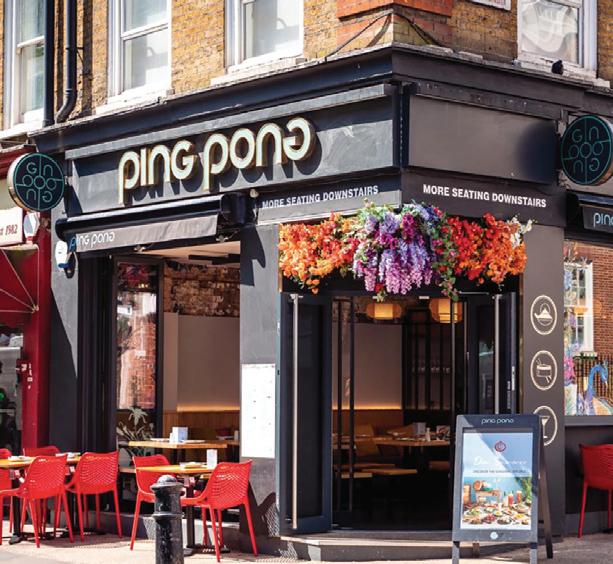
The brand built its reputation on an extensive dim sum offering, featuring more than 40 different varieties
including steamed, fried, and baked options with meat, seafood, and vegetarian alternatives. However, the business faced significant changes when founder Zdesar departed in 2007. Following his exit, Ping Pong began rationalising its estate by closing underperforming locations.
Recent years proved particularly challenging for the business, with the company struggling under the weight of Covid-related debt and rental obligations. Financial records reveal substantial losses during the pandemic period, with the business reporting a £1.4 million loss in the year ending March 2020, followed by an even larger £1.86 million loss over the subsequent 12 months.
The company did achieve a brief recovery, posting a profit of £334,000 in the year to March 2022, but this proved insufficient to secure long-term viability.

The Kingswinford and South Staffordshire's MP has raised serious concerns about the battle for survival facing businesses following cuts in support for the hospitality sector.
Conservative MP Mike Wood spoke in a Westminster Hall Debate in Parliament on Tuesday (July 1) to call for extra support for hospitality businesses following Government changes to fiscal policy implemented in recent months
Opening the Government Support for the Hospitality Sector debate, he told how businesses have been hit hard by the slashing of Business Rates Relief, the increase of the national living wage and the rate of National Insurance (NI) paid by employers.
Outlining the stark challenges facing hospitality businesses, Mr Wood said the changes are forecast to cost the sector £3.4 billion, according to UK Hospitality.
He added: "The Office of National Statistics confirmed since the budget in October the hospitality sector had already shed 69,000 jobs even before the latest figures from HMRCthat's 3.2 per cent of all hospitality jobs, the overall economy had lost 1.2 per cent of jobs in the same period. Hospitality's job losses were 266 per cent higher relative to the national average."
In an effort to hear directly from local entrepreneurs, Mr Wood said he had visited a range of hospitality businesses across his Kingswinford and South Staffordshire constituency to speak to business owners about the challenges they face.
The MP said: “From pubs and restaurants to hotels and leisure centres, hospitality is more than just a convenience, it's the beating heart of our communities.
"The cut in business rate relief from 75 per cent to 40 per cent has driven otherwise viable businesses into the red, hitting pubs such as the Green Man in my constituency, which has seen its business rates bills rise from about £140 a month to nearly £350 a month - before a single customer has been served or a single pint pulled. A third of hospitality businesses now operate at a loss. That is not sustainable, and it is not fair."
He said the rise in employer NI contributions and the increase in the National Living Wage, arriving at the same time in April, had heaped more pressure on small businesses as he outlined how venues, such as the hugely popular Ashwood Nurseries in Kingswinford, "already operate on tight margins".
He went on: "A third of hospitality businesses report they are operating at a loss with jobs lost, hours cut,
investment cancelled and sadly many businesses closing."
But he stressed: "Hospitality is not asking for handouts, it is asking for a level playing field. The sector is resilient. After the 2008 crash and during Covid it helped to revive communities and to restore confidence and within the right framework it can do so again, with the potential to grow, create half a million jobs by 2030 and to breathe life into areas across the country. To do that the brakes must be taken off."
He said "there are simple steps the Government can take now" - as he called for a raft of measures to help the sector.
The MP said "hospitality is being taxed out of existence" and called for urgent changes in policy including proper reform of business rates introduced quickly, the scrapping of the proposed additional levy on larger hospitality businesses, the creation of a new lower rate of NI contributions for those earning between £5,000 and £9,100 to make it easier to hire again, charging lower duty on draught beer in casks and kegs than bottles and cans and to reschedule the terms of Covid loans.
Gareth Thomas, Parliamentary Under-Secretary of State for Business and Trade, said in response: "I fully understand the significant challenges the sector faces, many of which are a hangover from the pandemic lockdown restrictions and the cost of living crisis. Depleted cash reserves and increased debt levels have hampered the ability of many hospitality businesses to invest and grow. These challenges are sometimes not helped by a regulatory landscape that does not always function as effectively as it could, holding back growth from many hospitality operators, which simply want to grow and invest in their local communities.
"Let us not forget that this Government inherited a very challenging fiscal situation, which meant the Chancellor had to take difficult decisions in relation to tax and spending.
"I know that many hospitality businesses have been impacted by those tough choices, but they are important for delivering the long-term stability and growth that our country needs and that our hospitality businesses, as well as the rest of the economy, will benefit from in the long run."
He said the Chancellor has committed to reforming business rates from 2026-27, with a permanently lower multiplier for retail, leisure and hospitality businesses and added: "We all know hospitality businesses are fundamental. They are crucial to our economy, crucial to our communities and fundamental to our high streets. And they matter to all of us individually, to our friends and to our families. The Government recognises the role of hospitality in creating places that people want to live, to work and to invest in, and we will continue to work in partnership with the industry to deliver growth and to break down barriers to opportunity."
There were 174,000 hospitality businesses in the UK in March 2024 - 6.4 per cent of all businesses in the UK.


Achieving resilience through a difficult economy and growing out of it on the other side is not an easy feat. Sure, some restaurants and pubs strike it lucky. They seem to have that holy-grail location and solid customer base; a great menu, venue and service; and, better yet, repeat business, resulting in revenue and growth. But, that’s not the case for many businesses. Despite their food and beverage proposition, excellent ambience and service, they just aren’t pulling in customers. What is the problem? Patrick Clover, Founder, Stampede (https://stampede.ai) explains how restaurants, pubs and hospitality businesses can promote themselves more strategically to drive customer acquisition, loyalty and revenue. Despite the tough challenges that the economy presents, the promise of consumer spending is on the horizon.
According to Heinekin UK’s eazle tools, 90% of hospitality businesses cite rising costs as a common concern. The evidence of this is seen across the economy: hikes in National Insurance Contributions and mini-
mum wages – all causing concern for many. Further, the UK’s Office for National Statistics (ONS) reports UK inflation held its own at 3.4% –saying, too, that food prices have jumped. This impacts many pubs, bars and restaurants’ ability to survive and grow. For instance, the accounting firm Price Bailey says that 67 pubs closed during April, and that 20% of pubs are technically insolvent.
Despite these challenges, many British people are spending more disposable income than a year ago. Research from Bauer Media Outdoor says 38% of consumers have increased non-essential spending. So, while there is hardship in the economy, there is still promise. And, perhaps, ‘right now’ is the perfect the time for restaurants, pubs and hospitality businesses to reassess how they can acquire new customers and build lasting relationships with existing customers, leading to repeat business.
An unfortunate truth, though, is that many pubs and restaurants don’t have a solid, strategic customer acquisition and guest engagement strategy. They might have spent time developing a wonderful food and drink offering, and a fantastic atmosphere within their establishment – all of which are necessary contributing factors for success. However, many businesses pin long-term growth on a combination of haphazard, unfocused, wasteful customer outreach tactics that include leafletting; basic or meaningless social media postings on the likes of Instagram, Facebook and TikTok; and traditional ‘word-of-mouth’ marketing. This is no longer good enough today. Without a well-thought-out and current customer acquisition and engagement strategy, that supports today’s modern customer and their needs, sadly, many businesses will fail.
The industry analysts IDC announced recently that worldwide smartphone shipments are forecast to grow 0.6 percent year-over-year (YoY) to 1.24billion units. While the Institute of Practitioners in Advertising (IPA) says that, for the first time, people in the UK are spending more time using their mobile phones instead of watching TV. ‘Traditional’ ecommerce marketers appreciate the potential to reach new and exist-
ing customers through digital marketing channels with sophisticated customer acquisition and retention strategies. Similar synergies can apply to hospitality businesses. Perhaps it’s time for restaurants and pubs to reevaluate how they can access growth in the same way?
This is where a sophisticated approach towards customer acquisition and retention, along with the use of appropriate guest engagement technologies, helps. While many hospitality businesses use email, text and social media to generate guest reservations, many of these systems operate independently with disparate data sets. This makes managing data complicated for business owners. It is possible to improve this situation and re-engineer marketing to take a more strategic approach, with a system that unifies customer information.
This enables restaurant, pub and bar operators to access customer data more effectively, in order to engage with them more profitably. Alongside this, it’s important for brands to consider whether their entire customer journey is branded when communicating with customers. Creating a memorable, branded, customer journey that includes all the major digital points like guest Wi-Fi, social media, and targeted email as a minimum, supports growth. Further, putting these steps in place sets hospitality businesses up to deliver personalised marketing more effectively. The results of which could lead directly to more revenue and positive reviews online – all made possible by guest data and a strategic approach.
While traditional ‘word of mouth’ and some kinds of social media posts continue to have their place, is this really enough in today’s dataled, digitally focused landscape? Although there are mixed reviews about consumer confidence and spend, there is enormous untapped opportunity to connect strategically with customers through mobile devices and digital channels to drive revenue, loyalty, lifetime value and, ultimately, business resilience.
Pub operator JD Wetherspoon is to open its new pub in Fulham, on Tuesday, 8 July, 2025 with the creation of 90 new jobs.
The company has spent £3 million developing the pub in Fulham Road, close to Chelsea’s Stamford Bridge stadium.
The new pub, which will be called Walham Green, will be managed by Ryan Way, previously the pub manager at The Watchman (New Malden).
This distinctive property comprises the grade II listed former entrance building and ticket hall of Fulham Broadway tube station.
Designed by the railway company architect Harry W Ford, the Edwardian baroque-style entrance was built in 1910 on the site of the original station entrance, which first opened on 1 March 1880.
The station was called Walham Green, after the village which occupied what
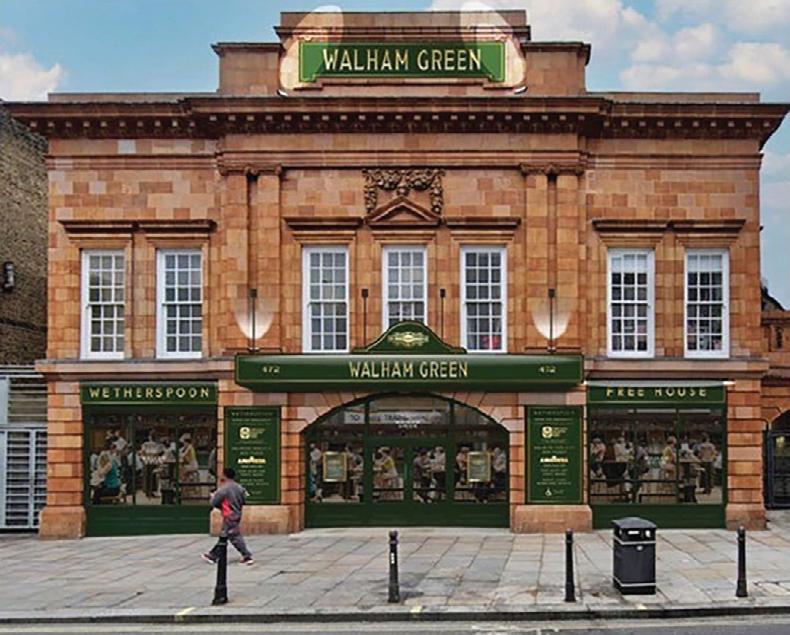
is now Fulham Broadway. Over 70 years later (in 1952), the name was changed to Fulham Broadway.
The new pub, which is on two floors (ground floor and first floor), also features an outside
Historical photos and details of local history, as well as artwork and images of local scenes and characters of the area, are also displayed in the pub, together with artwork commissioned by local artists.
Retro train station signage, on display inside and outside of the pub, recalls the buildings previous life as a station.
Pub manager Ryan Way said: “Myself and my team are looking forward to welcoming customers into Walham Green and we are confident that the pub will be a great addition to Fulham’s social scene.”
Three in four Scotch Whisky companies will defer UK investment, or invest elsewhere, due to the high tax burden, according to research undertaken by the Scotch Whisky Association (SWA).
The research, undertaken between February and June 2025, reveals the extent of concern companies face about the current levels of alcohol duty in the UK – with over two thirds of the average-priced bottle of Scotch Whisky collected in tax.
Following a 10.1% rise in duty in March 2023, and a 3.65% rise announced in October’s Budget, 87% of respondents to SWA’s members’ survey expressed concern that the rate of excise duty will rise once again in this Autumn’s Budget.
Any further rise in duty will have an impact not only on investment, but also recruitment, according to the companies – at a time where the whole industry employs or supports 66,000 jobs across the whole UK. A quarter of companies now expect their overall headcount to decrease given the current levels of alcohol duty.

As well as direct job impacts, there is increasing risk of knock-on job losses across the extended supply chain as distillers reduce production in the face of global tariffs impacting exports.
This research comes as the industry faces significant strain. At the start of the year, over half of those sur-
veyed expected operational costs from Government policies – for example, EPR fees, NIC increases, and tariffs – to increase by 10%; with 40% now expecting that figure to be over 20%.
Despite the increased duty levels, HMRC data shows that Treasury spirits duty receipts have not increased and failed to deliver the forecasted revenue growth.
Commenting on the latest research, Mark Kent, Chief Executive of the Scotch Whisky Association, said: “The Scotch whisky industry has a long track record of investment and growth that has benefitted communities across Scotland and the supply chain across the UK. It is also an optimistic and confident sector that believes in creating future growth.
“However, the positivity of the industry is being severely tested by the relentless impact of domestic policies and global circumstances.
“The industry is facing the significant challenge of US tariffs and increasing domestic pressures at a time it would otherwise be looking to support the Prime Minister’s growth mission. This high tax burden is not delivering the expected additional revenue for the Government, but it is costing jobs and investment.
“At a time when the country needs economic growth, we cannot fail to back one of the UK’s longstanding successes.”
The upcoming Women’s European Championship is poised to deliver a significant windfall for Britain’s pub and hospitality sector, with industry analysts predicting substantial increases in beer sales and venue footfall throughout the tournament.
The tournament which kicks off in Switzerland on 2 July, with England’s Lionesses and Wales playing their opening fixtures on 5 July could see an estimated 2.6 million extra pints drunk, potentially boosting the economy by £13 million, new British Beer and Pub Association statistics reveal.
The tournament’s economic impact is expected to be particularly pronounced if home nations progress to the latter stages, with extended licensing hours already confirmed by government officials for semi-final and final matches involving England or Wales.
However, industry leaders are using the tournament’s commercial potential to highlight ongoing concerns about the UK’s tax burden on alcohol, which they claim puts British venues at a competitive disadvantage compared to European counterparts.

Recent analysis reveals that UK consumers face significantly higher beer duty rates than fans in competing European nations, with British pub-goers paying substantially more in tax per pint than their German, Spanish, or Portuguese equivalents.
The disparity is particularly stark when compared to major
among the highest globally and creating what trade bodies describe as an “unlevel playing field” for British hospitality businesses.
Industry representatives argue that these elevated tax rates not only burden consumers but also restrict the sector’s growth potential during major sporting events that traditionally drive increased trade.
Emma McClarkin, chief executive of the BBPA, said: “The pub has forever been regarded as a home away from home, especially for sports fans, so it’s no surprise that fans will be flocking to the pub to cheer on our brilliant teams.”
However, Ms McClarkin renewed calls for the Government to “level the playing field and reduce beer duty”, with England and Wales paying the fourth-highest tax rate compared with other nations competing in the tournament, she said.
The government’s decision to allow pubs extended opening hours during key matches has been welcomed by operators, who view the move as recognition of the sector’s role in major sporting celebrations.
Licensed premises will be permitted to remain open later than usual if England or Wales reach the semifinals or final, providing additional trading opportunities during what are expected to be peak demand periods. This flexibility mirrors arrangements made for previous major tournaments and reflects the established pattern of increased pub attendance during significant football matches.
Operators and suppliers are experiencing an up-and-down June for drinks sales, with growth returning after a challenging start to the month.
CGA by NIQ’s latest Daily Drinks Tracker shows average sales in managed venues in the week to Saturday 7 June were 7% behind the same period in 2024. Rain and low temperatures damaged footfall in many parts of the country, and trading was negative on six of the seven days of the week. Nation’s League football matches did little to bring people into pubs and bars.
However, brighter weather made for a much better following week, and sales in the seven days to Saturday 14 June were up by 4% year-on-year. With temperatures topping 20 degrees in places, there was growth of between 2% and 10% on every day from Tuesday 10 to Saturday 14 June.

June’s mixed picture follows a generally soft May of trading that was dampened by poor weather. The increase in the second week of June was the Tracker’s best performance since the last week of April. Operators and suppliers will be hop-

ing it marks a return to sustained growth, following a buoyant Spring, when trading was up year-on-year in ten of 11 weeks between February and late April.
The Daily Drinks Tracker’s breakdown of categories shows a continuation of a pattern of better sales for Long Alcoholic Drinks (LAD) categories than for others like wine and spirits. In the week to 14 June, beer and cider sales rose by 7% and 20% respectively, as consumers sought refreshment on warmer days. By contrast, wine and spirits slipped by 1% and 10% respectively.
Rachel Weller, CGA by NIQ’s commercial lead, UK & Ireland, said: “The uncertainty of Britain’s weather in May and June is making for a temperamental period of trading, with temperatures and sales both fluctuating widely from day to day. It’s also creating some turbulence in consumers’ category choices, though beer and cider are consistently faring better at the moment. Operators and suppliers will be hoping that after a tough few weeks, above-inflation growth in the second week of June is a reliable sign of what’s to come for the rest of the Summer season.”
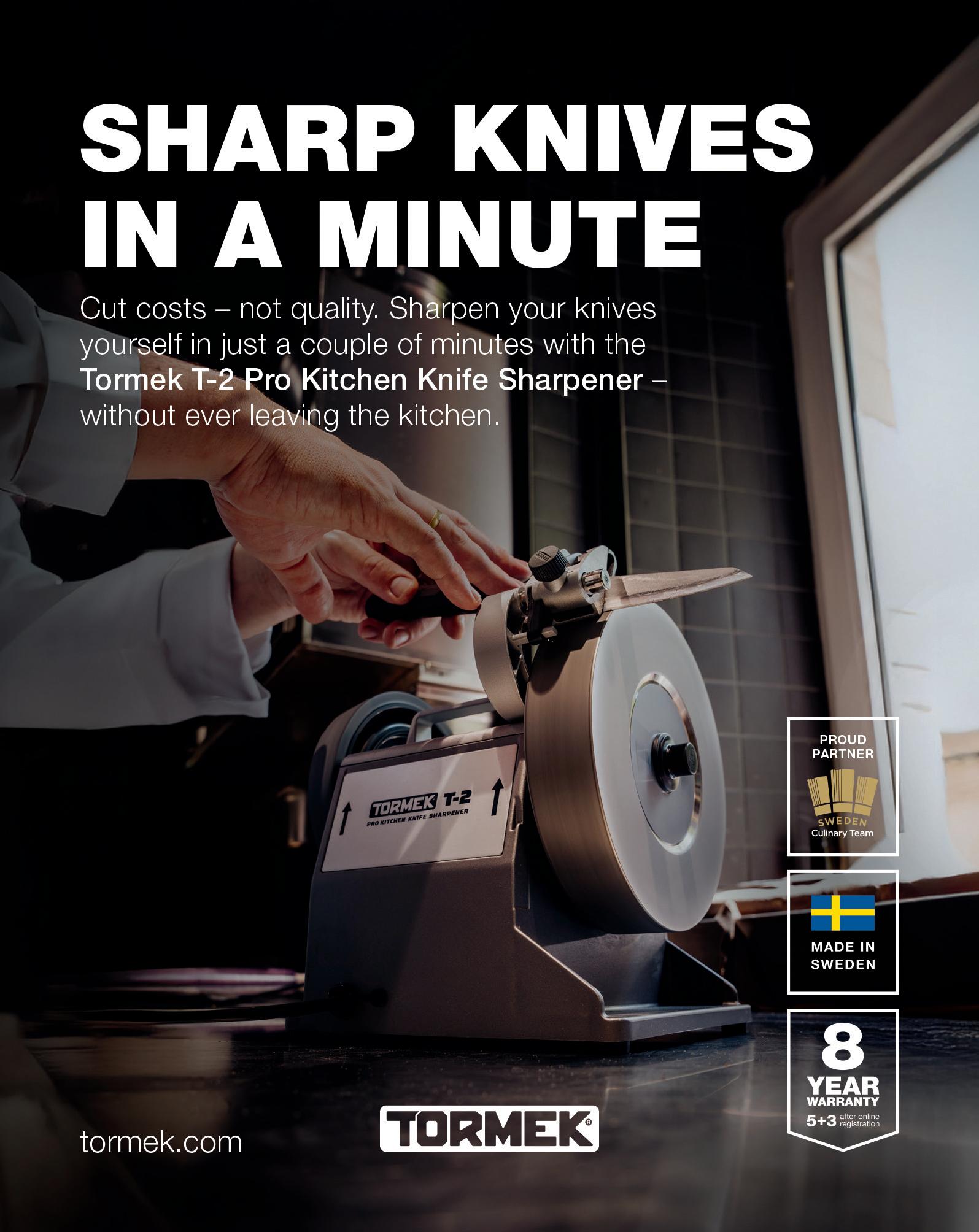

On 12 May 2025, the UK Government published a White Paper on restoring control over the immigration system.
The White Paper proposes significant changes to the UK immigration system with the aim of reducing migration and boosting domestic talent. The first major step towards implementing the White Paper came with the Statement of Changes to the Immigration Rules published on 1 July 2025, making significant changes effective from 22 July 2025.
Recently, as I stood in a queue for 40 minutes at a Lake District hotel, I started thinking about the impact of the proposed immigration changes on the already stretched hospitality sector and what steps employers can take to prepare. It is also important to assess the impact of the White Paper against the wider picture of:
Brexit: the UK’s withdrawal from the European Union on 31 December 2020 ended free movement meaning that visas are now required for European nationals. This has had a significant impact on the hospitality sector causing staff shortages.
Pandemic: when the world went into lockdown in March 2020, the hospitality sector was heavily hit with many establishments closed for significant periods of time. As a result, large numbers of international talent left the UK and have not returned.
Higher employment costs: businesses are facing higher costs including increases to National Insurance contributions and minimum wage.
Frequent changes to Immigration Rules: costs have already recently been increased for businesses that sponsor employees.
FIVE IMPACTS OF THE WHITE PAPER
Higher skills threshold: only degree level roles and above will be eligible for a working visa sponsored by an employer effective from 22
By Corrine Bentham, Principal Associate at Eversheds Sutherland
July 2025. This has removed over 100 roles which were previously capable of sponsorship.
A large number of jobs in the hospitality sector, whilst fundamental and essential to operations, do not require a degree level qualification and focus more on experience and practical skills gained over time. This is likely to expose the sector to further talent shortages, with the potential for an unintended consequence of increased costs to customers.
One example of this is the role of a chef, which is critical to many hospitality establishments. Currently, chefs can obtain a working visa sponsored by their employer. However, under the changes due to take effect on 22 July 2025, the role of a chef would no longer be eligible for sponsorship as the Government deems the skill level to be below graduate level.
There is a proposed Temporary Shortage List (TSL) for roles which are below degree level and require sponsorship. However, the role of a chef is not included on the proposed TSL published on 1 July 2025.
Future versions of the TSL could offer a lifeline for the hospitality sector with strategic input from the sector at consultation stages. However, the Government has been clear that sponsoring a role on the TSL would be a temporary and conditional. The Government has stated that employers utilising the TSL will be expected to comply with sector-wide workforce plans. Those sponsored in TSL roles are not permitted accompanying dependants and as a result may make this route less attractive to prospective candidates further exacerbating labour shortages.
Increased salary threshold: the minimum salary threshold for Skilled Worker sponsorship is due to increase from £38,700 to £41,700 on 22 July 2025. The minimum salary thresholds for some of the occupation codes are also increasing.
Increased sponsorship costs: a 32% increase to the Immigration Skills Charge (ISC) paid by employers when sponsoring working visas.
Further increases to sponsorship costs and salary thresholds will squeeze any existing budgets with already tight margins. Employers in the hospitality sector will need to carefully review all recruitment and salary budgets.
Temporary worker visa changes: Proposed changes to the Student Visa and Graduate Visa have the potential to impact temporary labour relied on by the sector. International students often support the hospitality sector through peak periods that coincide with holiday periods from UK Universities. With the proposed reduction of the duration
of Graduate visas from two years to 18 months, this may cause difficulties for hospitality employers seeking to hire recent international graduates on their formal graduate schemes without sponsorship.
Changes to eligibility for Indefinite Leave to Remain: the qualifying period will double from five years to 10 years. This is likely to cause further labour shortages in the sector by increasing the time an individual needs to spend on a time-limited visa with working restrictions and potentially making the UK a less attractive option for longterm talent migration.
English Language requirements: stricter English language requirements are proposed across all immigration routes, including for dependants. This has the potential to make the UK less attractive for international talent and their families.
What can employers in the hospitality sector do to prepare for the proposed changes?
Employers who hold sponsor licences should review the roles they frequently sponsor and whether or not they meet the proposed increased skill and salary thresholds.
Assess the population of individuals who currently hold time-limited working permission and may require sponsorship in the future to see if they are likely to meet the proposed new skill and salary levels.
Review budgets for sponsorship given the proposed ISC increases, higher salary thresholds and longer duration of sponsorship to be eligible for settlement.
Consider inputting to consultations on the proposed changes and TSL via sector specific groups.
Review plans to boost domestic talent.
If all of the proposed changes in the White Paper progress, the potential impact on the hospitality sector is likely to be significant and could lead to a number of consequences, including staff shortages. The first stage of the changes will take effect later this month and leaves the sector with a very short timescale to prepare.
Increased costs and labour shortages also often result in a decline in service standards. Whilst I know that I will not stop visiting the Lake District regardless of waiting times and standards of service, that might not be the same for everyone.
Employers in the hospitality sector would be wise to start urgently planning and preparing for the proposed immigration changes now.
Greene King brought together over 130 supplier partners from across the hospitality industry at a prestigious event held at Celtic Manor Resort, to help raise funds for its long-term charity partner, Macmillan Cancer Support. It is anticipated that the event has raised over an estimated £300,000 for the cancer charity.
This event marked the fourth Macmillan Gala Dinner hosted by the pub company and brewer, with the support of headline sponsors Billington Foods, Budweiser Brewing Group, Asahi UK, Maris Seafoods, Fresh Direct, Coca Cola European Partners, GXO Logistics and Pernod Ricard, along with many other contributors from across the industry.
The event featured various activities for guests to enjoy throughout the day, including golf and a cooking master class with Michelin starred chef and winner of the Great British Menu, Adam Handing MBE. The day’s events culminated in the highly anticipated Gala Dinner, where 570 guests gathered for a night of fine dining, entertainment, and fundraising.

TV presenter Mark Durden Smith led the evening’s proceedings for the evening, which included a heartfelt speech from Tricia Timms, Cancer Information Nurse Specialist on Macmillan’s Support Line. Her moving words about the team’s vital support for those living with cancer, and the services they can provide to ensure no one has to face cancer alone, earned her a standing ovation from the guests. Greene King has been a partner of Macmillan Cancer Support since 2012 and has raised over £23 million for the charity to date, with team members across its pubs, breweries and offices hosting fundraising events
and taking on challenges to raise money. At the beginning of this year the company announced that it would be dedicating the first six-months of fundraising towards Macmillan’s Support Line which is a lifeline for those living with cancer and their loved ones, with trained professionals offering confidential support by telephone, email and webchat.
Greene King CEO, Nick Mackenzie, said: “This brilliant event truly showcased the incredible impact we can achieve when the hospitality industry comes together. With the support and generosity of our sponsors and guests, we’re delighted that we’ve raised a significant amount for Macmillan, a charity that touches the lives of so many. My thanks go out to everyone involved for their hard work in making this possible.”
Gemma Peters, Chief Executive at Macmillan Cancer Support, said: “We couldn’t be more grateful to Greene King’s fantastic colleagues and supplier partners for raising over an estimated £300,000 for Macmillan at their charity golf day & gala dinner at Celtic Manor. Without the remarkable fundraising efforts of incredible partners like Greene King, we simply couldn’t be there for everyone who needs us.”
The Government has unveiled its comprehensive roadmap setting out how it will deliver its new package of workers’ rights through the plan to Make Work Pay.
Landmark changes delivered through the Employment Rights Bill including sick pay for up to 1.3 million of the lowest earners and day one rights to parental and paternity leave will be introduced for the first time from early next year.
It also announces that the new Fair Work Agency will launch from early next year, creating a level-playing field so rogue employers cannot undercut good businesses who comply with the law.
Informed by more than 190 pieces of engagement with businesses and other crucial stakeholders over the last 12 months, a phased approach was taken to give workers clarity and employers time to prepare. Key measures in the Bill will come into effect in 2026 and 2027, whilst further consultations are planned from this year into next.
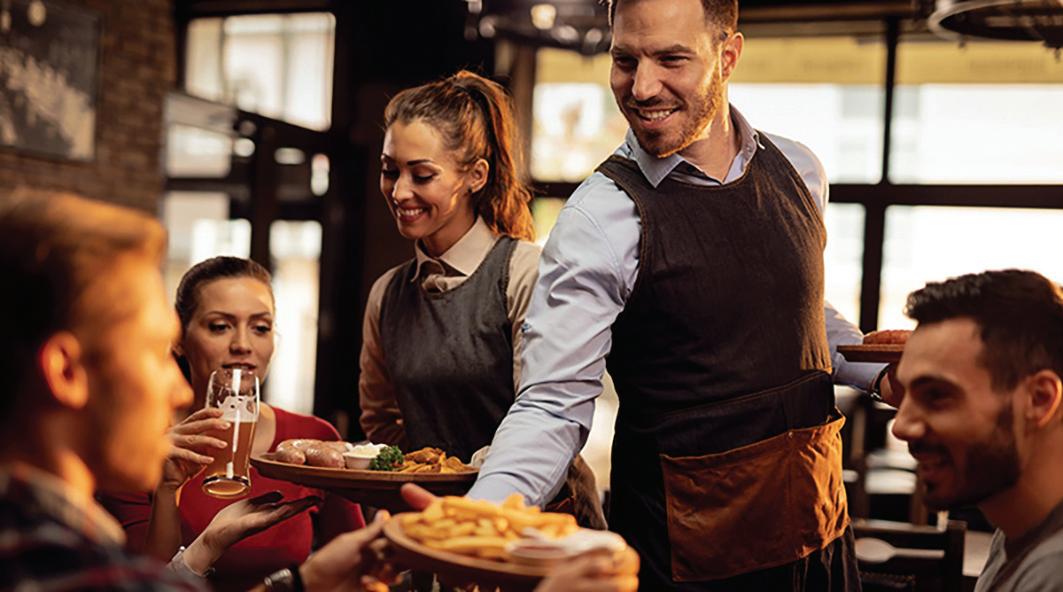
The reforms are a key part of the Government’s Plan for Change – the mission to make the country fit for the future by kick-starting economic growth and boosting productivity.
THE MEASURES, AND WHEN THEY ARE SET TO BE INTRODUCED, INCLUDE:
• April 2026: Changes to statutory sick pay, changes to paternity and parental leave, and trade union recognition
• October 2026: Tipping laws tightened, strengthened employers’ duty to prevent sexual harassment.
• 2027: Introducing rights to guaranteed hours, strengthen existing rights to request flexible working, changes
to an employees’ right to claim unfair dismissal.
UKHospitality emphasised the need to use these timelines to constructively engage with businesses on the policy detail.
Some of the first changes to come into force in April 2026, particularly Statutory Sick Pay, could be a significant cost for businesses. The Government must take into consideration the cumulative cost burden facing the sector during consultation periods, particularly on the back of the £3.4 billion additional annual cost that hit the sector in April.
Kate Nicholls, Chief Executive of UKHospitality, said: “Clear and precise timelines on when aspects of this legislation, and the processes to deliver them, will come into force is essential, and it was important that the Government embark on providing clarity.
“There are substantial and expensive changes for businesses in the Employment Rights Bill and it’s right that the Government is using the appropriate implementation periods for the most complex issues for hospitality, in order to get the details right for both businesses and workers.
“We have been clear with the Government that the changes regarding guaranteed hours and predictability of shifts will be the most complex for hospitality businesses, and therefore necessitates a significant implementation period. I’m important that it has acted on our concerns and it must now use this time to work with businesses on an appropriate policy framework and clear guidance.
“Businesses are understandably wary about the cost and complexity of the more immediate changes in the Employment Rights Bill, particularly alongside increases to NICs, employment costs and business rates.
“Hospitality businesses have absolutely no more capacity to absorb costs and the Government must not increase the sector’s cost burden once again.”
The British Institute of Innkeeping (BII) has announced their new Chair Elect Clive Price of Barons Pub Company.
The position will be formalised at the BII AGM on 9th September, when Clive will officially take over from Mark Robson, who has supported the BII team brilliantly over a highly successful two terms. CEO, Steve Alton commented: “Clive is a hugely experienced operator, having established Barons Pub Company in 2000, and grown the business to 11 sites across Surrey, Berkshire and West Sussex. As an award-winning operator, his breadth of experience in the pub sector provides an excellent grounding for him as he prepares to lead the board of Trustees at the BII and offer support and guidance to the Senior Leadership Team.”
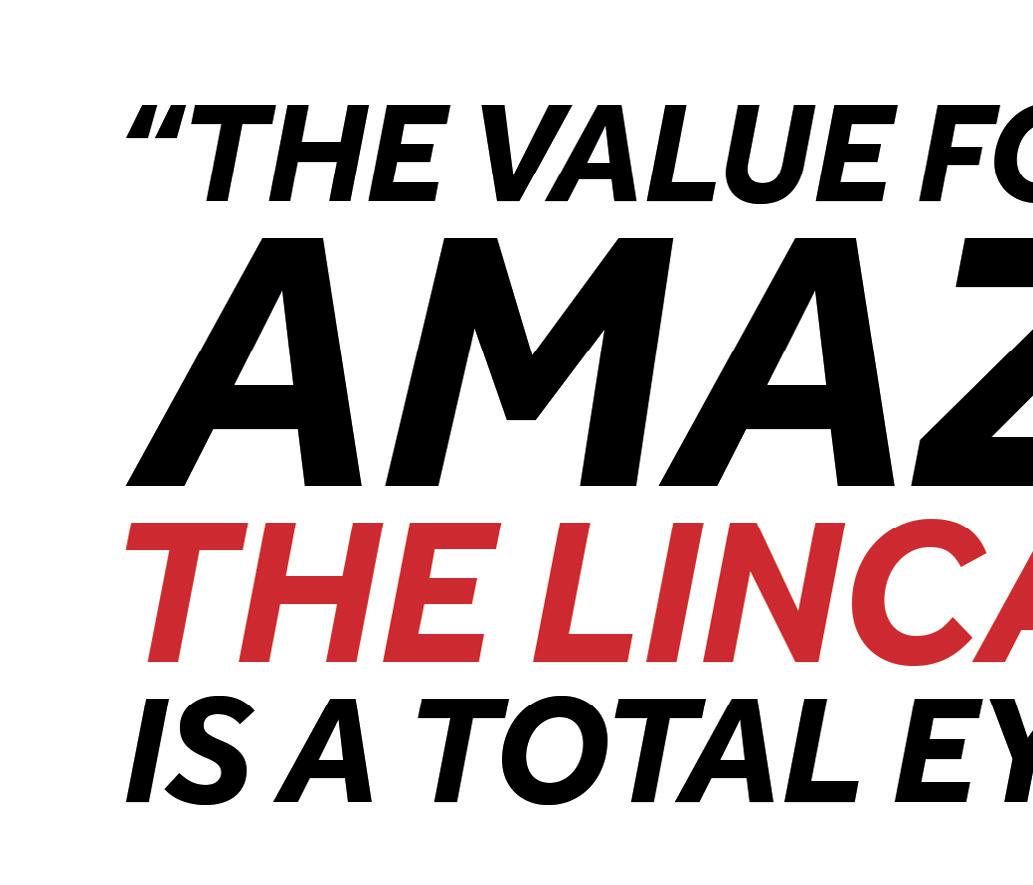





Scan below to see how the Landlord of the King’s Head in Carlisle is using his Lincat CIBO+. Speed up service. Expand your menu. Cut down on waste — all without extra sta昀
what




“I would also like to take this opportunity to say a huge thank you to Mark Robson, who has given me invaluable support since I came on board as CEO. We never underestimate the value of the time and commitment our Chair and our board of Trustees give freely to the us as volunteers, all for the betterment of the BII and the pub sector as a whole.”
Mark Robson, Managing Director of New Dawn Pubs and current BII Chair said: “I have no doubt that Clive will be an excellent Chair, providing Steve and the whole team at the BII with support and vital insight as an experienced multiple operator. It has been a real privilege to be part of the BII over my terms as Chair and I wish Clive all te best as he takes the role on.”

Brands risk losing loyal customers when diversity initiatives feel irrelevant or inauthentic to their customer base, according to new research by Durham University Business School.
The research, by Dr Miriam McGowan, Assistant Professor of Marketing at Durham University Business School, in collaboration with Dr Louise Hassan (Associate Professor of Marketing at Birmingham Business School) and Professor Edward Shiu (Professor in Marketing at Bangor Business School), explores when and how diversity campaigns unintentionally provoke customer backlash.
Through ten experimental studies, the researchers examined various types of diversity initiatives—differing in duration and target groups—to determine their impact on customer loyalty. They identified that long-term initiatives aimed at groups with whom existing customers dissociate trigger negative reactions such as brand avoidance. These reactions stem from customers perceiving the initiatives as threats to their identity and as betrayals by the brand.
Strategies like using sub-brands, allowing product customisation, or clearly communicating genuine social commitments – rather than jumping on the bandwagon - help brands support diversity while keeping loyal customers engaged.
“As brands respond to calls for greater diversity, they must carefully manage customer perceptions to avoid
alienating their existing customer base,” says Dr McGowan. “Not every awareness day fits every brand—but for companies in sectors like beauty, fashion, or lifestyle supporting Pride Month or International Women’s Day, for instance can reflect customer values and show authentic commitment. It’s not just about showing up, but showing up meaningfully.”
To minimise backlash, the researchers say that brands should tailor diversity strategies to their customer relationship type— whether based on value exchange or emotional connection.
The researchers emphasise that although long-term initiatives have greater potential for meaningful change, they also carry higher risks. Employing strategic measures such as sub-branding or product customisation can help mitigate these risks, especially when customer preferences are unknown or mixed.

The research was published in the Journal of the Academy of Marketing Science.
Hilton has announced the signing of The Derby London City, Curio Collection by Hilton, as part of a franchise agreement with leading real estate developer and operator, Dominus.
Expected to open in early 2026, the hotel is set to be the tenth property to open under the Curio Collection by Hilton brand in the UK, marking another important milestone for the brand, following the recent announcement of Hilton’s 1,000th luxury and lifestyle hotel opening globally. The portfolio of Curio Collection by Hilton hotels, each with its own one-of-a-kind story, includes Lost Property St Paul’s London; The Trafalgar St. James London; The Caledonian Edinburgh, and The Fellows House Cambridge.
Nick Smart, vice president, development, UK, Ireland and the Nordics, Hilton, said: “Curio Collection by Hilton’s continued expansion in the UK is a testament to the popularity and commercial success of our forward-thinking lifestyle brand. We’re delighted to partner with Dominus on another exciting hotel project, which will undoubtedly become a popular addition to our portfolio, offering guests an elegant but unexpected retreat that encapsulates London’s heritage, while reflecting the vibrancy of a city which was recognised as the world’s top destination for 2025.”

The hotel, owned by Dominus and managed under its Dominus Hospitality platform, will breathe new life into a former office building on Great Tower Street in the heart of London’s main financial district, known as the Square Mile, proving highly convenient for business travellers. With the Tower of London and St Paul’s Cathedral within easy walking
distance, and eight key London underground stations in close proximity, the hotel will also serve as a perfect base for those looking to explore popular London landmarks within the City and beyond.
Preet Ahluwalia, chief executive officer, Dominus, said: “As owners and operators of Lost Property St Paul’s we knew we could leverage our expertise, in partnership with Hilton, to deliver another Curio Collection hotel in a prime location. Since we acquired the site on Great Tower Street in 2023, we’ve taken a sustainable design approach to refurbishing and upgrading the existing building, to create a hotel that pays tribute to the past and offers an exceptional guest experience in the heart of London. The Derby is an excellent addition to our growing hotel portfolio, and we look forward to welcoming guests in early 2026.”
The new hotel will also support the Destination City programme, which is the City of London Corporation’s growth strategy to position the Square Mile as a world-leading business and leisure location.
Chairman of the City of London Corporation Planning and Transportation Committee, Tom Sleigh, said: “The City of London’s new hotel stock will play a major role in realising the ‘Destination City’ growth strategy, by helping to accommodate the rapidly rising numbers of visitors and workers coming to the Square Mile, every day. I’d like to issue a warm welcome to Dominus’ and Hilton’s ‘The Derby London City Hotel’ which I’m confident will make a fantastic contribution to the City’s business, leisure and cultural appeal, for everyone.”
It’s once again time to find the country’s best kitchen porter, as Winterhalter launches the eleventh edition of the Kitchen Porter of the Year competition, which aims to honour the amazing work done by these too often unsung heroes of the foodservice and catering industries.
Since launching in 2013 the competition has become one of the largest and most prestigious awards in the industry. It has garnered widespread praise for its focus on the essential role KPs play in commercial kitchens. In many businesses, KPs go above and beyond their standard duties every day in order to help their colleagues and keep things running smoothly. Many of the biggest names in the industry got started as KPs, and vouch that it was a great foundation for their future careers.
Nearly 800 nominations have been made over the years since the first competition, representing all sectors of foodservice including some of the UK’s best hotels and restaurants, pubs, bars, clubs and a huge range of institutional and contract caterers, demonstrating the vital importance of KPs throughout the sector.
“KP of the Year is hugely important to us at Winterhalter,” says Stephen Kinkead, managing director of Winterhalter UK. “Every year the standard of entries gets more impressive, and it’s always a delight to discover the stories of not just these dedicated KPs but also the entire
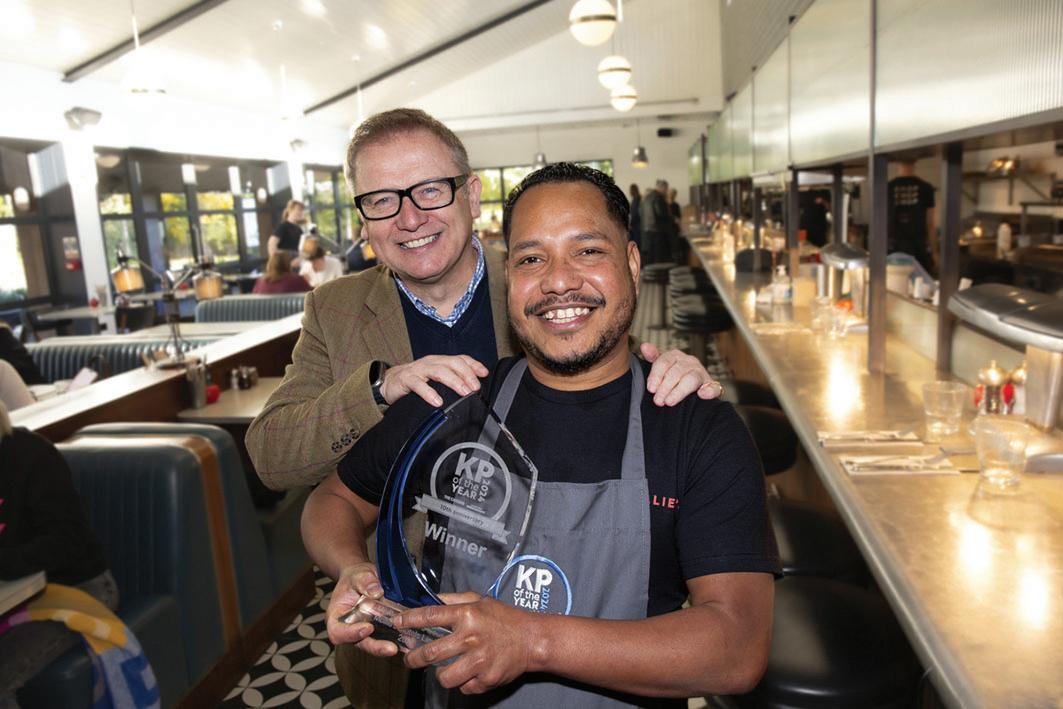
kitchen teams they work with.”
Nominations for this year’s award are now open, with 29th August 2025 the final date for entries. A shortlist of ten will be selected, before a panel of judges made up of industry experts choose the winner. 2025’s KP of the Year will be awarded the coveted KP of the Year tro-
phy, £1,000 in vouchers and a celebratory meal for family and friends in a casual dining restaurant of their choice. Furthermore, the winning KP’s employer will get a Winterhalter dishwasher worth up to £10,000. As well as this, two highly commended KPs will receive a certificate and vouchers for hospitality experiences, and every KP nominated will receive a bespoke KP of the Year Oliver Hardy apron.
“We’re looking forward to learning about more of the UK’s most dedicated KPs,” says Stephen. “If you’ve got someone in your kitchen who you want to celebrate, the time to do it is now!”
Links to the nomination form, as well as more information about the competition and previous winners, can be found at www.kpoftheyear.com.
Winterhalter provides a total solution for dishwashing and glasswashing, from pre-sales advice to after-sales service, training and maintenance, with sustainability fitted as standard.
Alongside its market-leading dish washers and glass washers, the company’s range includes utensil washers, advanced water treatment machines, and cleaning detergents and rinse aids. For further details, call Winterhalter on 01908 359000, visit www.winterhalter.com/uk-en/ or email info@winterhalter.co.uk.
Increased staff costs continue to hit the bottom line for hotels, with investment in AI expected to rise as hoteliers look to create efficiencies, according to the RSM Hotels Tracker.
The data, which is compiled and produced by Hotstats and analysed by RSM UK, shows average daily rates (ADR) of occupied rooms in London dropped from £218.34 to £206.99 in May year-on-year, and from £152.93 to £149.08 in the UK.
Occupancy of London hotels was also down slightly from 82.5% to 82.2% in May year-on-year, and from 79.8% to 79.4% in the UK. This meant gross operating profits suffered a hit, falling from 43.3% to 39.9% in London and from 39.1% to 37% in the UK.
Chris Tate, partner and head of hotels at RSM UK, comments: “Hotels have been able to compensate for flatlining room rates with strong occupancy levels, but May’s figures suggest demand has peaked. Accommodation services inflation continued its downward trend, falling for the third consecutive month to1.0% in May. With consumer confidence still extremely fragile, it’s proving particularly difficult to pass on increased costs to consumers. As a result, these costs are starting to bite with the bottom line taking a hit, so hoteliers need to starting thinking outside the box to mitigate the higher costs. Hotels appear to be increasing spend on IT systems, with total expenditure having grown by 27% in London and 21% in the UK, when compared to 3 years ago.

tomer experience. Instead, they need to work smarter, which could involve making greater use of AI and automation in certain tasks to increase productivity.
“With government initiatives in its Industrial Strategy including investment in high streets and creative industries which should bring more tourists to the UK, along with a tourism strategy which is due to be published by the end of the year, the sector should reap the benefits in the long-term. But with increased strain on room rates and profits, it’s clear that some hoteliers are in need of more immediate support.”
Thomas Pugh, economist at RSM UK, said: “While a burden for the industry, slowing hotel inflation will be good news for the Bank of England as it is another sign of easing inflationary pressures. However, combined with a sharp fall in retail sales and a slowdown in consumer borrowing, this suggests that the economy did little more than stagnate in Q2.
“Looking ahead, the outlook for consumer spending growth is less rosy than it has been in the first half of the year. Inflation is now back at 3.4% and will rise further over the summer, mainly driven by tax rises, higher utility bills and now more expensive petrol. That will eat into consumers’ disposable incomes. At the same time, the labour market is clearly cooling, which will weigh on wage growth and employment over the rest of the year.
Chris Tate added: “It is clear hotels have increased investment in technology, and we only expect that to rise as they look for ways to improve efficiencies and customer experience. Many hoteliers have come to terms with the higher employment costs and can’t easily cut these as their staff are essential to provide the best cus-
“However, the outlook is far from dismal. Despite rising inflation and slower wage growth, real incomes will still rise at a reasonable pace this year. Household balance sheets are considerably stronger than they have been previously, and lower interest rates will continue to help. What’s more, there are good signs that the worst of the labour market pain and tariff uncertainty is already behind us.”
Food Equipment Association is calling on young people in the foodservice equipment industry to join together to make themselves heard. The Association has ambitious plans to help young professionals by supporting their careers, and to encourage more to join the industry. Key to this is the NextGen council – and FEA is asking young people to join it to create their own voice and help guide the industry’s future.
The NextGen plans are initially being put together by Greg Archer MBE, chair of FEA’s education and training committee, and the association’s CE John Cunningham. “Greg has recently been awarded the MBE for his services to young people – he’s the perfect person to drive the NextGen initiative,” says John.
FEA is working on developing clear, tangible pathways into the sector for young people, with support for their career in terms of professional development and upskilling, plus the development of social and networking opportunities for them. “Of course, for these initiatives to work we really need young people already in the industry to be involved and to take the lead,” says Greg.

“We want NextGen to be a champion for young people, to mobilise and inspire them, to use FEA’s resources to ensure they have a voice – and to ensure that voice is heard,” he adds.
“The FEA NextGen are the perfect people to represent our sector to schools and colleges, to advocate
for the sector, evangelise even, about the great opportunities and careers that our sector has to offer”, says John. Alongside the plans for advocacy and showcasing careers in the commercial kitchen equipment sector, the FEA is developing support around career pathways, training options and finding jobs so that there’s practical help for young people to build their careers in the sector.
The FEA’s Board is fully supporting the NextGen proposals – the next steps include finalising the funding, putting resources in place to deliver the plan and reaching out to young people who would like to be involved.
“By amplifying young voices and encouraging collaboration, we are striving to shape a vibrant, sustainable, and forward-thinking future for our industry,” says John.
The FEA team is developing plans behind the scenes now and members can expect to hear more during the coming months, ahead of full details at the FEA Conference on 12th-13th November 2025. Greg and John agree, “Watch this space.”
Anyone interested in getting involved and finding out more about the NextGen plans should contact John at the FEA, john.cunningham@fea.org.uk.
VisitEngland has published its 2024 Annual Survey of Visits to Visitor Attractions showing that visits to attractions across England saw a small rise in 2024 compared to 2023, and remained significantly down on pre-pandemic levels.
Overall, visits to attractions in England were up just 1.4 per cent in 2024 compared to 2023. When comparing to 2019, pre-pandemic, numbers were down 27% (see slide 7 of the full trends report).
VisitEngland Director Andrew Stokes said: “With growth to our visitor attractions slowing it’s now more important than ever that we show our support for this important sector that contributes not only to local economies but to communities across England.
“As these survey results so clearly demonstrate, there remain challenges in getting our sector back to pre-pandemic levels and the costof-living impacts continue to bite.

“England’s first-class attractions, from our world-renowned museums, art galleries and historic houses to our places-of-worship, our parks and gardens, remain vitally important to our tourism offer to both international and domestic visitors.
“With summer on the doorstep and the school holidays fast approaching, make this the year you discover England’s fine attractions. Not only will you be giving our great attractions a much-needed boost, I know you will enjoy a fantastic day out with family and friends creating memories of a lifetime.”
Chief Executive of Historic England Duncan Wilson said: “Heritage is so important to us all. It brings communities together, creating a sense of belonging and pride, and is a major contributor to our economy through domestic and international tourism.
“These survey results highlight the need to continue championing and supporting our shared local heritage. This year, we hope people discover new historic places on their doorsteps and continue to enjoy our valued heritage sites.”
The survey, which gathered information from 1,373 English attractions, shows that the growth seen was fuelled by overseas visitors. International visits to England’s attractions overall were up 6% last year compared to 2023. Domestic visits to attractions in 2024 meanwhile were down 1%.
Growth varied across the regions. Most regions saw a small increase in admissions. London’s attractions led with growth of 5%, largely driven by international visitors. Despite the increase the volume of attraction visits in London remains well below 2019 levels, down 18% overall. Three regions meanwhile saw small declines in admissions with one region on par.
Tourism is one of England’s largest and most valuable industries, generating about £76 billion annually for the economy in 2024 in domestic visitor spending.
The government is implementing major immigration reforms that will impact the hospitality sector, specifically affecting chefs and other roles seeking to enter the country on a Skilled Worker visa.
These changes prioritize graduate-level or above positions and will remove several roles, including chefs, from the eligible list
The rules to be laid in Parliament see skills and salary thresholds rise, overseas recruitment for care workers end, and more than 100 occupations no longer granted access to the immigration system.
These changes, the first to be rolled out from the Immigration White Paper, represent a fundamental shift in the UK’s approach to immigration and restore order to the points-based system, focusing on higher skills, lower numbers and tighter controls. They are an important step in ending the UK’s reliance on overseas, lower skilled recruitment.
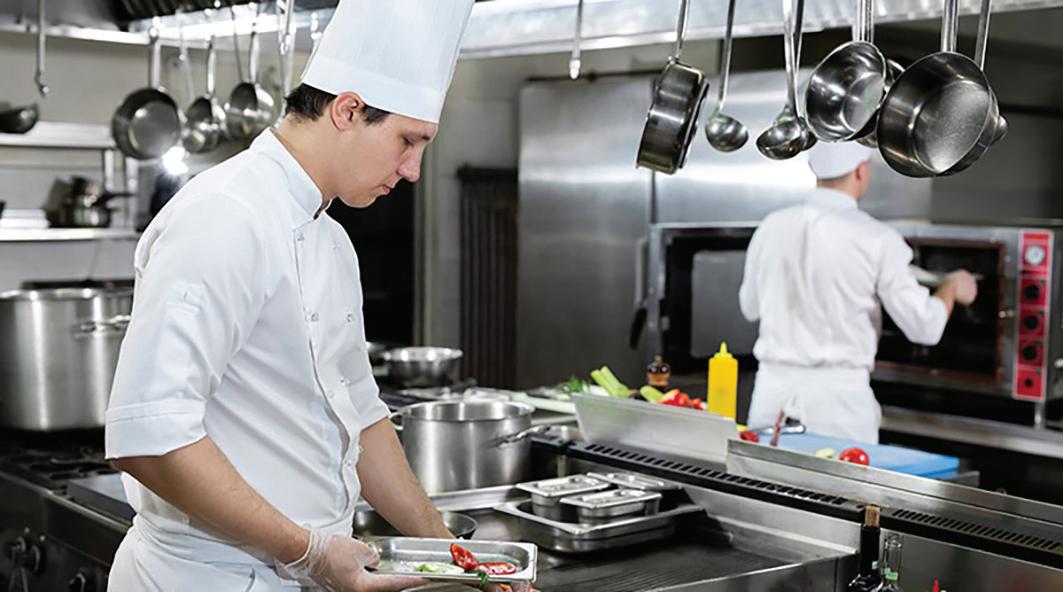
The introduction of an interim, time-limited and conditional temporary shortage list will make sure the immigration system works better for the UK, with international recruitment only providing support where occupations are key to the industrial strategy or building crucial infrastructure.
Each sector must have a workforce strategy in place to train UK workers, or it will lose access to the immigration system.
Home Secretary Yvette Cooper said: “We are delivering a complete reset of our immigration system to restore proper control and order, after the previous government allowed net migration to quadruple in four years. These new rules mean stronger controls to bring migration down, to restore order to the immigration system and to ensure we focus on investing in skills and training here in the UK.”
As part of the Plan for Change, we can build an immigration system that serves the needs of the British
economy and people – one that values skills, tackles exploitation, and ensures those who come to the UK make a genuine contribution.
THE PACKAGE OF MEASURES INCLUDES:
• raising the skills threshold for Skilled Worker visas, removing 111 eligible occupations
• closing the social care worker visa route to overseas recruitment in response to widespread abuse and exploitation
• only allowing time-limited access below degree level through a targeted immigration salary list and temporary shortage list, for critical roles only, with strict requirements for sectors to grow domestic skills
• commissioning the Migration Advisory Committee (MAC) to conduct a review of the temporary shortage list including occupations, salaries and benefits
Workers in occupations on the temporary shortage list will no longer be able to bring dependants and will not be permitted salary and visa fee discounts. The occupations included on the List are time-limited until the end of 2026 and will only remain beyond that date if the independent Migration Advisory Committee recommend it.
In the interim, the government will not hesitate to restrict immigration access further, should there be clear signs of abuse and exploitation in sectors. In time, we will also abolish the previous government’s immigration salary list.
Subject to parliamentary approval, the changes will come into effect from 22 July, and transitional arrangements have also today been set out for overseas care workers already in the UK.
Glebe Farm Foods is celebrating a hat-trick of wins at the 2025 Free From Food Awards, taking home two Golds and a prestigious Special Award for sustainability –a testament to the quality, innovation and integrity behind its PureOaty range.
The family-run brand’s PureOaty Porridge Oats secured a Gold Award in the highly competitive Breakfast & Morning Goods category, with judges praising the product as “jumbo oats with great flavour that don’t go mushy.” Meanwhile, the newly launched Tea-rrific Oat Drink earned a Gold Award in the Milk Alternatives category, impressing judges as “finally, an oat drink made for tea – and it really works!”. The winning streak didn’t stop there – Glebe Farm Foods also received the Sustainability Award, a Special Award recognising outstanding commitment to environmental responsibility. The judges commended the brand’s fully integrated field-topack model, where 100% British gluten free oats are grown, milled and packaged on-site at the family farm in Cambridgeshire, keeping food miles low and transparency high.

The Free From Food Awards are the UK’s leading recognition of excellence in the free from category, spotlighting brands that deliver on taste, innovation, inclusivity and sustainability.
Philip Rayner, Managing Director and Founder of Glebe Farm Foods, said: “Winning two Golds and the Sustainability Award is a fantastic result and a huge credit to the team. These accolades reflect our focus on quality, our passion for creating inclusive food and drink, and our commitment to doing things the right way – for both people and the planet.”
With full control of its production process and a clear sustainability ethos, Glebe Farm Foods continues to lead the way in gluten free and free from food and drink.
For more information about Glebe Farm Foods and its award-winning PureOaty range, visit www.glebefarmfoods.co.uk
See the advert on the facing page for more information.



The hospitality and licensed trade sectors are bracing for significant changes following the government’s announcement of new healthy food standards that will impact how businesses promote and sell food and beverages.
Under the forthcoming regulations, large food retailers – including those supplying the hospitality sector – will be required to meet new standards designed to make healthier food choices more accessible to consumers. The initiative forms part of the government’s broader 10 Year Health Plan aimed at tackling the UK’s obesity crisis. Businesses will have considerable flexibility in how they meet these new requirements. Options include reformulating existing products, adjusting store and venue layouts, offering promotional pricing on healthier alternatives, or modifying loyalty programmes to incentivise better food choices.
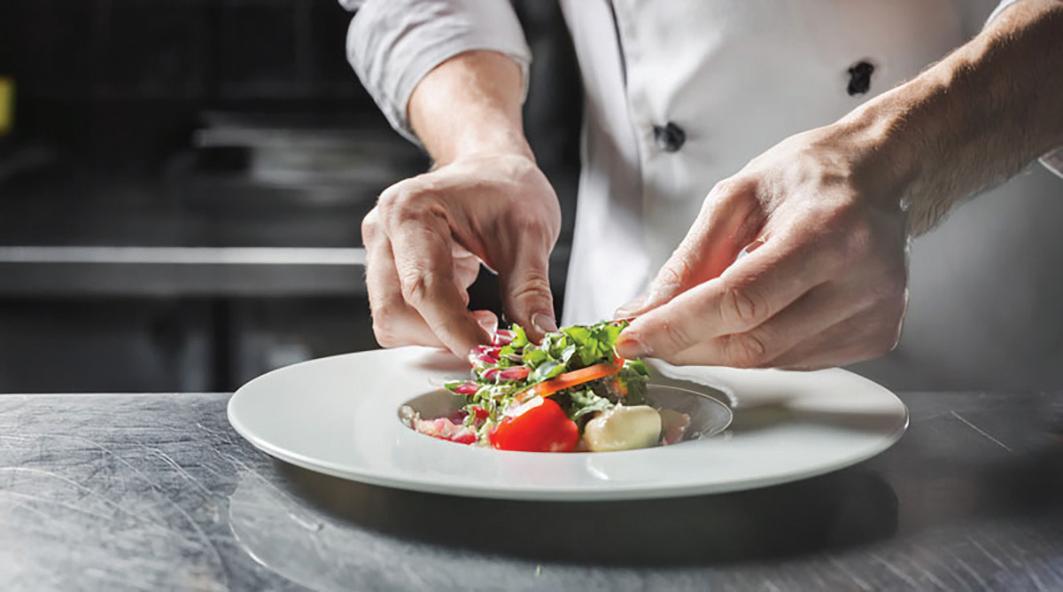
For hospitality operators, this could mean reconsidering menu compositions, promotional strategies, and supplier relationships. Pubs, restaurants, and other licensed premises may need to evaluate their current offerings against the new standards.
The regulations address a pressing public health challenge. Current data shows that reducing daily calorie intake by just 50 calories could help lift hundreds of thousands of children and millions of adults out of obesity categories. More dramatically, a reduction of approximately 200 calories per day – equivalent to one fizzy drink – could halve obesity rates among those currently overweight.
The UK currently holds the unwelcome distinction of having Europe’s third-highest adult obesity rate, with
associated healthcare costs reaching £11.4 billion annually – three times the NHS ambulance service budget.
The hospitality sector’s response to these changes will likely vary significantly. While some operators may view the requirements as an additional regulatory burden, others may see opportunities to differentiate their offerings and appeal to increasingly health-conscious consumers.
Major investment firms have already indicated strong interest in backing healthier food products, provided they receive appropriate market prominence. This suggests potential investment opportunities for hospitality businesses that adapt quickly to the new landscape.
The standardised approach aims to create a level playing field across the industry. Many retailers have previously expressed willingness to promote healthier options but were concerned about competitive disadvantages if they acted alone. The new regulations should address these concerns by ensuring all major players operate under similar requirements.
The detailed implementation timeline and specific requirements are expected to be outlined in the government’s 10 Year Health Plan, due for publication shortly. Hospitality operators should begin considering how these changes might affect their operations, from menu planning and supplier negotiations to staff training and customer communication.
The shift represents part of a broader government strategy to transform the NHS from a treatment-focused service to one emphasising prevention.
The Burnt Chef Project – a global non-profit social enterprise committed to eradicating mental health stigma in the hospitality industry, has announced the relaunch of its upgraded Employee Assistance Programme (EAP), available worldwide from May 2025.
This new service has been developed in direct response to the increasing demand for accessible, high-quality mental health support within hospitality. It is designed specifically for those who work in this fast-paced, high-pressure industry — many of whom face barriers when it comes to accessing help.
WHAT’S INCLUDED:
• Toll-free access in major countries where hospitality professionals need it most

• Multilingual delivery, providing support in over 30 languages to reflect the diversity of the sector
• Available 24/7/365, including weekends and public holidays
• Multiple access routes – available via toll-free number, WhatsApp, web browser, or app, ensuring support is available no matter your preferred method of communication
• Free to use for individuals without access to employer-provided support – fully funded by The Burnt Chef Project
• Confidential and independent from any employer, ensuring safety and trust
• Up to six counselling sessions per issue, per year
• A broad range of support topics, including managing stress and anxiety, improving relationships, navigating grief and loss, career pressures, self-confidence, and parenting challenges
• Mindfulness and life coaching, supporting personal growth alongside therapeutic care
• Country-specific legal, debt, and managerial advice, offering tailored support depending on location and needs
• Available to immediate family members, recognising that mental health doesn’t end at the shift — and supporting families also supports the individual
Kris Hall, Founder of The Burnt Chef Project, said: “This is the only service of its kind built exclusively for the hospitality industry, and it exists to make sure that no one feels alone in their struggle.
Whether you’re a KP or a GM, working front or back of house — we’ve built a multilingual, toll-free global service that meets you where you are. It’s confidential, accessible, and ready when you need it.”
“This service is available to individuals who do not already have access to a workplace mental health support scheme, thanks to the ongoing fundraising efforts and generosity of The Burnt Chef Project’s global community.”
To learn more, access the service, or support its continuation through fundraising, visit: www.theburntchefproject.com
2025 is turning out to be a memorable year for talented Welsh chef Gabi Wilson who is looking forward to representing the UK in Denmark.
The 20-year-old chef from Chapters, a Green Michelin star restaurant in Hay-on-Wye, has been selected by Team UK to compete at EuroSkills Herning 2025 in September, following her success in national skills competitions.
She also hopes to compete for a place in Team UK for WorldSkills Shanghai 2026.
Marking a significant milestone on her career journey, Gabbi recently graduated with an Apprenticeship in Professional Cookery at work-based learning provider Cambrian Training Company’s bi-annual Apprenticeship Graduation Ceremony.
More than 100 apprentices from across Wales attended the ceremony at the Royal Welsh Showground, Llanelwedd last week.
Gabi, who lives in Rhayader, moved to Chapters after Chartists 1770 at The Trewythen, Llanidloes closed last year. She was the first winner of the Green Chef Challenge at the Welsh International Culinary Championships in 2024.
Gabi is also in the process of completing a City & Guilds Level 3 Patisserie qualification

at NPTC Group of Colleges in Newtown.
“The apprenticeship helped me a lot because working in a professional kitchen is much different to being a college student,” she said.
“My advice to anyone wishing to become a chef is to opt for an apprenticeship at a place where there are skilled professionals because you will always learn from the best. It’s a recipe for success.
“Graduating was a proud moment for me because my mum and dad attended the ceremony and Cambrian Training staff were praising me.”
Gabi started work at Chapters in February and is enjoying working with her fellow chefs, led by head chef Mark McHugo, who co-owns the restaurant with his wife, Charmaine.
“It’s going really well and I am learning a lot,” she added. “We have just finished Hay Festival which was super-busy for 10 days.
“I want to learn a wide range of skills before possibly specialising in patisserie. In the future, I would also like to do stages at different restaurants to learn from other chefs.”

Despite improved weather conditions, UK consumers are demonstrating caution in their dining habits, opting for fewer but more meaningful eating-out occasions.
According to the latest data from Lumina Intelligence’s Eating and Drinking Out Panel, eating-out penetration slightly declined to 58.3% (-0.3 percentage points), with average frequency also down by 0.7%. However, spend per visit increased by 6.4%, reflecting both inflationary pressures and a growing appetite for quality experiences.
Quick-service restaurants (QSRs) have emerged as the primary beneficiaries of this shift, recording the most significant gain in market share at +2.3 percentage points. Their appeal lies in offering convenient and affordable dining options that resonate with consumers seeking value without compromising on quality.

Coffee shops and restaurants also experienced growth (+1.2 percentage points), as diners gravitated towards premium experiences. In contrast, pubs and bars saw a decline of 2.3 percentage points, missing the typical seasonal uplift associated with sunny days and sporting events.
From a menu perspective, pizza led dish growth with a 1.2 percentage point increase, attributed to its versatility and shareability. Dinner and brunch occasions gained popularity, while lunch saw the sharpest drop (-2.2 percentage points), indicating a shift towards more social and intentional dining moments.
These insights underscore the importance for foodservice operators to adapt to evolving consumer preferences, focusing on value, convenience, and quality to capture market share in a cautious economic climate.
The City of Quebec – London’s oldest LGBTQIA+ pub, owned by pub company and brewer Greene King has reopened its doors to the public following a six-figure investment.
Situated on Old Quebec Street in the heart of Marylebone, the City of Quebec is an iconic social hub in central London, having been a cornerstone of the LGBTQIA+ community since its establishment in 1946. The pub was originally frequented by RAF pilots following the venue’s opening after World War II.
The investment has completely transformed the City of Quebec’s interior to enhance the pub’s reputation as a leading late-night entertainment venue. On the ground floor, the stage has been upgraded with the installation of a projector screen, effects lighting and a new DJ booth to elevate customer experiences with the return of the pub’s weekly live music and cabaret events.
The venue’s club area in the basement has been fully redecorated with the introduction of artwork that evokes the pub’s rich history, whilst an improved furniture layout and sleek lighting ensure an inviting atmosphere for guests. The toilet facilities have also been improved to provide a more modern look and feel.
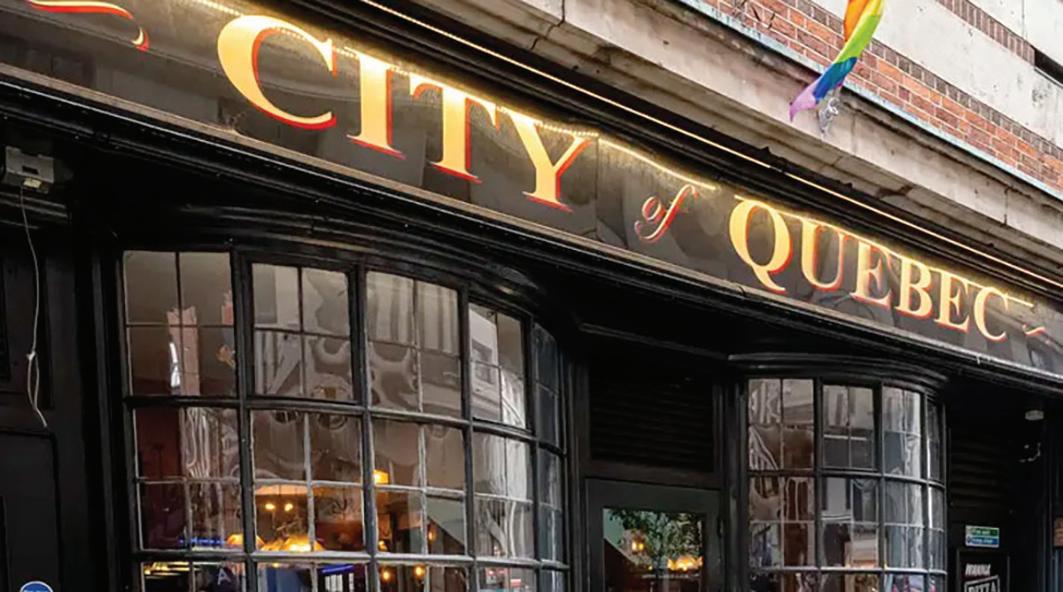
The City of Quebec’s investment is a marker of Greene King’s longstanding commitment to champion diversity and inclusivity across the board, by providing safe spaces for everyone to enjoy throughout the year. The pub’s reopening is also the latest of Greene King’s historic London sites to receive significant investment, following the relaunch of the Sherlock Holmes, the Crown and the Garrick Arms earlier this year.
Darren Dunn, general manager at the City of Quebec, said: “Pubs are the hubs of local communities, and they play a central role in providing safe and welcoming spaces for people of all backgrounds.
The City of Quebec has long been established as a vibrant hotspot for the LGBTQIA+ community in the heart of London, and we’re thrilled to showcase a new and improved look from 26 June.
“As one of Greene King’s Heritage pubs, the City of Quebec’s investment looks to honour the pub’s rich history, whilst bringing a modern twist to the pub’s original Art Deco design. We are celebrating the pub’s relaunch in style with a wide range of exciting promotions and events throughout the summer, kicking off with cabaret hosted by Dolly Diamond and karaoke with Tania LeCoq on our opening day. We look forward to welcoming guests back very soon to enjoy all we have to offer.”
The Wine and Spirit Trade Association (WSTA) has dubbed long overdue confirmation of the fees for the Government’s waste packaging tax scheme (EPR) as a blow to the drinks trade.
DEFRA had previously announced a provisional EPR fee for glass of £240 a tonne, the final figure has dropped to a £192 per tonne, further undermining business planning.
The WSTA argues that the revised fees are still extortionately high for glass, which the industry says is likely to encourage producers to switch from highly recyclable glass to more environmentally damaging forms of packaging, as non-glass containers are not subject to any EPR fees. We are urgently calling on the Government to delay EPR and review the methodology for fee calculation.
Miles Beale, Chief Executive of the Wine and Spirit Trade Association, said: “Wine and spirit businesses have been waiting a long time for confirmation of glass price fees and while the final EPR prices announced today provides financial certainty for accounting purposes, the scale of the glass fees confirms industry fears.

These hefty EPR fees are still significantly more per unit compared with charges across Europe, 8 times more than in Germany, and 3 times more than in Croatia or Finland.
Modulated fees have been confirmed for year 2 of the scheme (2026). Packaging classified as red, will increase incrementally 1.2x in 2026, 1.6x in 2027 and 2x (double the base fee) in 2028. There is no time to avoid these fees for produce sold this year. This is especially impactful on SMEs and importers who need time
to make changes and may not have revenues to cover these unknown costs.
This news is another blow to the sector, which is already reeling from consecutive duty hikes and whose margins are already tight. Having to pay the highest EPR fee for glass will force businesses to pass the costs onto consumers, pushing up inflation while – perversely – encouraging the use of cheaper and less sustainable packaging alternatives.”
Drinks producers and retailers across the UK are frustrated that DEFRA refused to delay introducing the scheme in April, even though it has acknowledged there are still major issues with the scheme, and even admitted earlier this year that it won’t improve recycling.
The OBR’s forecast accompanying the Spring Statement revealed: “the policy is unlikely to have a material impact on rates of recycling or packaging waste volumes in the next five years.” Prices are likely to continue to grow as EPR income, paid to Local Authorities, is not ringfenced. This means the money can be spent on other costs, breaking the circular economy and ‘polluter pays’ principles.
This gap between rhetoric and reality is proving familiar. The promise to exclude hospitality waste, which is disposed of via private waste collections, from EPR has not been delivered either. Unless the Government intervenes, most hospitality waste will be unfairly charged EPR.
DEFRA expects 85% of businesses to raise prices because of EPR, but the WSTA believes that the number of wine and spirit producers forced to put up their prices will be greater.
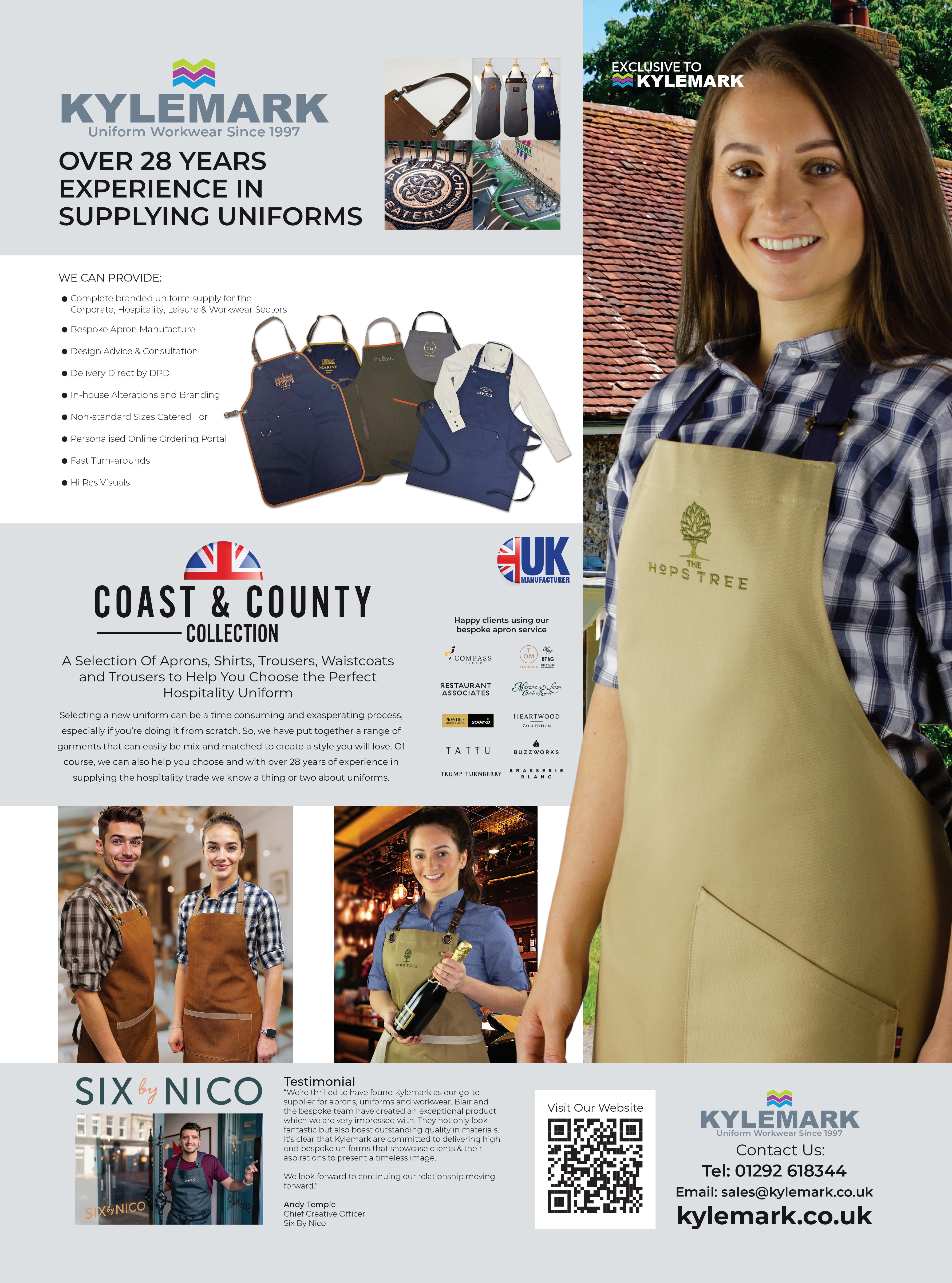
The number of full-service restaurants is set to decline 1% in 2025 as limited disposable incomes continues to impact visitor numbers. According to the latest insights from IGD’s new Away From Home (AFH) service, premium dining is likely to fare better than casual restaurants, as wealthier consumers continue to spend. Meanwhile, insights show that independents will struggle to shoulder rising costs, making way for more group operators.
Indies that effectively communicate their unique offerings and engage with changing consumer trends will likely perform better against a tough backdrop.
IGD also outlined opportunities for all operators, who should look to promote special occasions as well as drive efficiencies. At the same time, suppliers should seek ways to build stronger relationships with customers to drive loyalty.
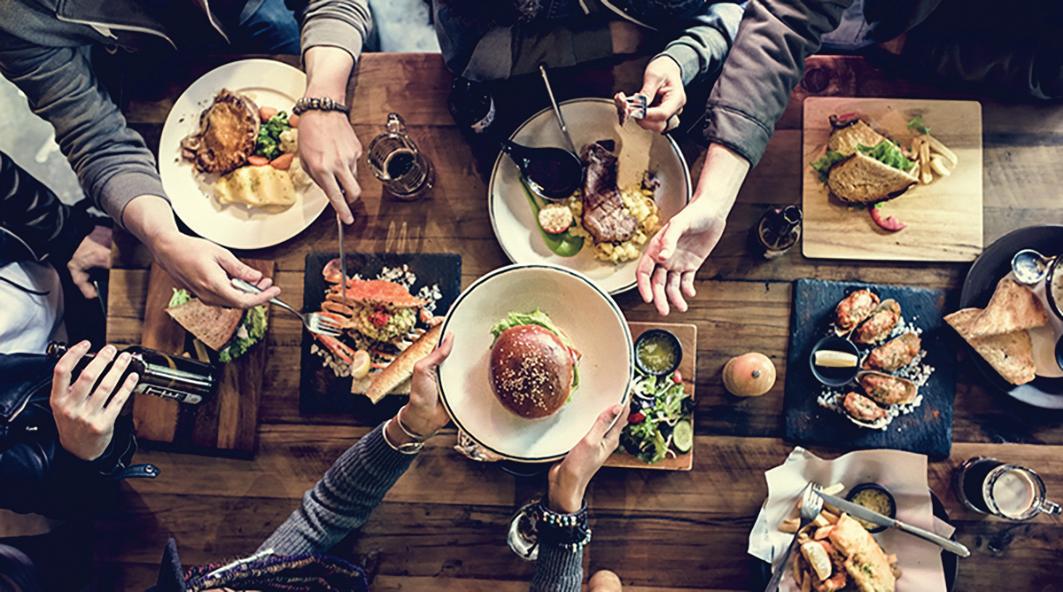
These insights are part of IGD’s new AFH proposition, which kicks off with the launch of the AFH five-year market forecast for 2025-2030. The new service has been developed in recognition of the need for a whole-market viewpoint of the AFH sector and marks a significant milestone for IGD as its first new insight product for 15 years.
AFH accounts for over a third of the total UK food & drink market, up 2.5% in the year to April, worth £102.3bn.
The IGD forecast projects a CAGR of 4.8% from 2025 to 2030 to reach £123.3bn, driven primarily by inflation and steady population growth. However, in real terms, market value is not expected to recover to pre-pandemic levels within the forecast period, highlighting the continued economic pressures facing both consumers and operators.
Nicola Knight, Head of Away From Home at IGD, said: “We listened to what the industry needed and built a flexible, client-centric solution that does the heavy lifting of insight and reflects the full AFH market. Our AFH data models have been developed over time to fill the gaps left by the absence of consolidated industry data, offering a credible and consistent view of market size.”
Nicola continues: “This service is built around offering strategic foresight. We don’t just report on the market, we help you see what’s next. With five-year market forecasts, global research, and analysts who visit over 40 countries annually, we bring future trends to life. Our insights support long-term planning, innovation, and a clearer vision for growth in the ever-evolving AFH channel.”
Kate Nicholls, Chief Executive of UKHospitality, said: “The new Away From Home market forecasts from IGD provides a comprehensive overview of the dynamic hospitality market and consumer behaviour, both now and into the future. These valuable insights are crucial for informing our work across hospitality, helping operators to plan effectively for the future and supporting our work with Government on behalf of the sector.”
Award-winning drinks journalists and comedy duo Tom Sandham and Ben McFarland are pedalling their way into hospitality history with an ambitious 1,000-mile tandem bike ride designed to spotlight the crisis facing British pubs.
The pair, known professionally as the Thinking Drinkers, set off from Land’s End on Friday, June 20th, embarking on a two-week journey to John O’Groats with one crucial rule: they will only eat, drink, sleep, and stop at British pubs throughout their entire odyssey.
The Great British Pub Ride represents more than just an endurance challenge – it’s a direct response to the alarming statistics that have galvanized the hospitality industry. Over the past four decades, the UK has lost a quarter of its pubs, with six establishments closing their doors permanently every single week. The duo’s mission is to demonstrate the vital role pubs play in British communities while highlighting the mounting pressures threatening their survival.

“If we don’t use pubs, we’ll lose them,” explained Sandham. “That’s exactly what we’re doing – relying entirely on lovely ‘locals’ during our two-week ride.”
The journey will see the comedians visit over 60 pubs across the length of Britain, documenting their progress on the Thinking Drinkers YouTube channel in partnership with Blind Tiger Films. Each day brings four pub stops, creating a comprehensive showcase of the diversity and resilience of British pub culture. INDUSTRY CRISIS DRIVES ACTION
The campaign comes at a critical time for the hospitality sector. Pubs are currently battling a perfect storm of challenges: soaring energy costs, the lingering effects of COVID-19, increased National Insurance contributions, and what the industry describes as disproportionate taxation. The stark reality is that even busy establishments are struggling to maintain profitability, with the average publican earning just 12 pence profit from a £5 pint.
“No other business sector in the economy is taxed so heavily and so unjustly,” the duo emphasizes. “The costs of simply doing business are far too high.”
The Thinking Drinkers are working in partnership with the British Beer & Pub Association (BBPA) and the “Long Live the Local” campaign to amplify their message. Their goal extends beyond awareness-raising to practical advocacy, encouraging pub-goers to engage with local MPs and influence policy changes that could provide much-needed relief to the sector.
The campaign emphasizes that modern pubs serve functions far beyond traditional drinking establishments. They operate as community centres, hosting coffee mornings for new parents and pensioners, live music events, comedy nights, children’s parties, fitness classes, and providing co-working spaces. These venues serve as crucial social infrastructure, offering proven benefits for mental wellbeing and community cohesion.
“Pubs are unique, historical national institutions, the cornerstones of our communities, the heartbeat of our high streets and proven antidotes to loneliness,” the pair argues. “They provide crucial social respite to the people who live around them.”
The duo’s research suggests that without intervention, pubs could soon be outnumbered by coffee chains and fast-food outlets – a transformation they link to rising anxiety levels and the loss of traditional social spaces.
The Thinking Drinkers are encouraging industry professionals and pub enthusiasts to join their campaign through multiple channels:
• Subscribe to their YouTube channel for daily updates and behind-the-scenes content
• Sign up to the “Long Live the Local” campaign to engage with political advocacy
• Visit participating pubs along their route to show direct support
• Share their message across social media platforms
The campaign has already garnered significant attention within the hospitality industry, with support from pub companies, brewers, drinks firms, and “Stay In A Pub” – an online platform promoting pub accommodation across Britain.
ROUTE AND ENGAGEMENT
The provisional route, complete with scheduled pub stops, is being publicized through the Thinking Drinkers’ social media channels and YouTube platform. The duo is actively encouraging supporters to meet them at various stops along the way, creating opportunities for industry networking and community engagement.
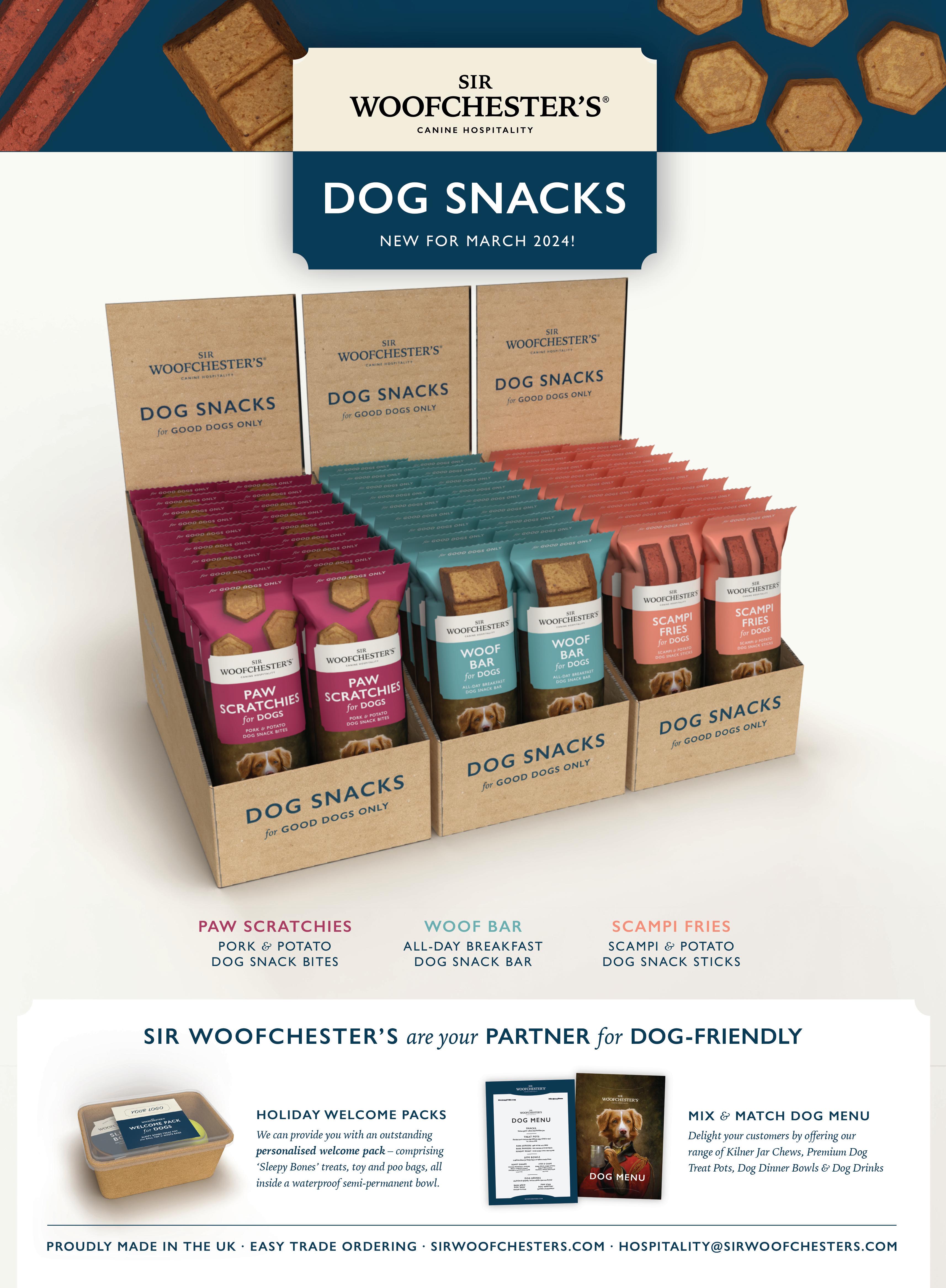
Social drinks-led occasions are on the rise, as consumers head out for drinks and small snacks, according to the latest insights from IGD’s new Away From Home (AFH) service. While this may mean reduced spend per visit, wet-led pubs can use the opportunity to attract customers away from food-led venues. Insights also show that younger consumers continue to drink less, alternating between alcohol and soft drinks.
Meanwhile, tenanted pubs are expected to continue to decline in number, as the landscape shifts towards managed venues with larger capacities and a wider variety of options.
IGD’s insights suggest key opportunities for operators include creating experiences that consumers can’t have at home, as well as capitalising on trends towards relaxed socialising. Suppliers should look to help pubs make the most of different day parts as well as pair food and drinks.

These insights are part of IGD’s new AFH proposition, which kicks off with the launch of the AFH five-year market forecast for 2025-2030. The new service has been developed in recognition of the need for a wholemarket viewpoint of the AFH sector and marks a significant milestone for IGD as its first new insight product for 15 years.
AFH accounts for over a third of the total UK food & drink market, up 2.5% in the year to April, worth £102.3bn.
(CAGR) of 4.8% from
to
to reach £123.3bn, driven primarily by inflation and steady population growth. However, in real terms, market value is not expected to recover to pre-pandemic levels within the forecast period, highlighting the continued economic pressures facing both consumers and operators.
Nicola Knight, Head of Away From Home at IGD, said: “We listened to what the industry needed and built a flexible, client-centric solution that does the heavy lifting of insight and reflects the full AFH market. Our AFH data models have been developed over time to fill the gaps left by the absence of consolidated industry data, offering a credible and consistent view of market size.”
Nicola continues: “This service is built around offering strategic foresight. We don’t just report on the market, we help you see what’s next. With five-year market forecasts, global research, and analysts who visit over 40 countries annually, we bring future trends to life. Our insights support long-term planning, innovation, and a clearer vision for growth in the ever-evolving AFH channel.”
Kate Nicholls, Chief Executive of UKHospitality, said: “The new Away From Home market forecasts from IGD provides a comprehensive overview of the dynamic hospitality market and consumer behaviour, both now and into the future. These valuable insights are crucial for informing our work across hospitality, helping operators to plan effectively for the future and supporting our work with Government on behalf of the sector.”
The names of 40 semi-finalists battling it out for the coveted National Chef of the Year title have been released.
Widely regarded as the leading culinary competition in the UK, this event celebrates the very best in professional cooking and reaching the semi-final stage is a testament to each chef’s exceptional skill, creativity, and dedication to their craft.
Over recent weeks, a panel of culinary experts have reviewed every single entry they received from competitors across the UK who work in a variety of sectors and establishments. Industry leaders involved in the blind-judging included Matt Abé, David Mulcahy, Sarah Frankland, Hrishikesh Desai, Gary Jones, Chris Galvin, Sarah Hartnett, Steve Groves, George Blogg, Dominic Owen, Paul Askew, James Sommerin and Willie Pike.
ACHIEVING TOP 40 SPOTS IN THE COMPETITION THIS YEAR ARE:
• Asen Ibrov, Potato Junction
• Barry Gamble, Aramark UK @ Aegon Edinburgh
• Callum Leslie, The Black Swan at Oldstead
• Cameron Reynolds, HIDE
• Carl Cleghorn, Tyme by Carl Cleghorn
• Chris Loye, Flavour
• Christopher Beavis, RAF Benson
• Cleverson Cordeiro, Frog by Adam Handling
• Craig Edgell, Buoy and Oyster
• Danny Young, The Torridon
• David Millar, Carlowrie Castle
• David Neilson, Dakota Hotel
• Elliot Mullins, Restaurant Concorde
• George Boarer, Etch by Steven Edwards
• George Fisher, BaxterStorey at UBS
• Grahame Wickham, Claridge’s
• Iain Gourlay, Dalhousie Castle Hotel

• Ian Wilson, Royal Navy, Catering Training Wing, Worthy Down
• Jaden Dunn, Northwick Estate – Upton Wold
• Jethro Lawrence, Apetito
• Josh Hughes, Hide & Fox
• Joshua Morris, Tyddyn Llan
• Kacper Walor, Bubblefood
• Katie Morgan, Le Manoir aux Quat’Saisons
• Luciano Lucioli, Lucioli Catering Services
• Marcus Ashton-Simpson, DN1
• Matthew Blowing, Purslane Restaurant
• MD Shisir, Cornus Restaurant
• Neil Yule, Sodexo, Astra Zeneca Discovery Centre
• Robert Donnelly, Royal Air Force
• Russell Plowman, Restaurant Andrew Fairlie
• Ruth Hansom-Rigby, Hansom Restaurant
• Sam Rust, Parc le Breos
• Sean Parkes, Station Road Restaurant @ The Lovat Hotel
• Sergio Cinotti, Gem42
• Shaurya Kapur, Rosewood
• Stephen Andrews, Fish and Forest
• Thomas James, Tesco
• Tom Bennetts, Driftwood Spars
• Yann Florio, Haute Cuisine Ltd
For the next stage of the competition, chefs are challenged with making a showstopping hot or cold pre-dessert. Ten chefs will then go head-to-head at the grand final at the University of West London on Tuesday, 7th October before the winner is revealed at a VIP awards evening at The Hippodrome Casino in Leicester Square.
Matt Abé, chef patron at Restaurant Gordon Ramsay said: “Personally, I was delighted to see a real mix of new entrants giving the title a go and former competitors coming back even stronger than in previous years. During the deliberation, every judge praised the high standard of entries this year with a particular focus around innovation and incredible culinary skills.
Those who made the top forty have really delved into the detail of the brief and carefully considered every element from seasonality to skill and flavour to food waste. This has resulted in a high number of dishes that I truly hope to be able to taste in the final.”
David Mulcahy, competition director and vice-president of the Craft Guild of Chefs added: “The Craft Guild of Chefs Instagram account has been flooded with photos from proud semi-finalists and rightly so as this is a huge achievement. The competitors haven’t made it easy for us once again and we really appreciate the huge amount of work that goes into every single entry.
Our rigorous judging process allows us to analyse each dish as well as the overall balance of each menu. We have individual teams blind judging starters, main courses and desserts, with Matt and myself scoring every single dish. It’s only once all the scores have been added together and verified that names are revealed.
For those who don’t make it through, ask for feedback, learn from the experience, and know that the standard in this competition is incredibly high. Every single competitor held their own.”
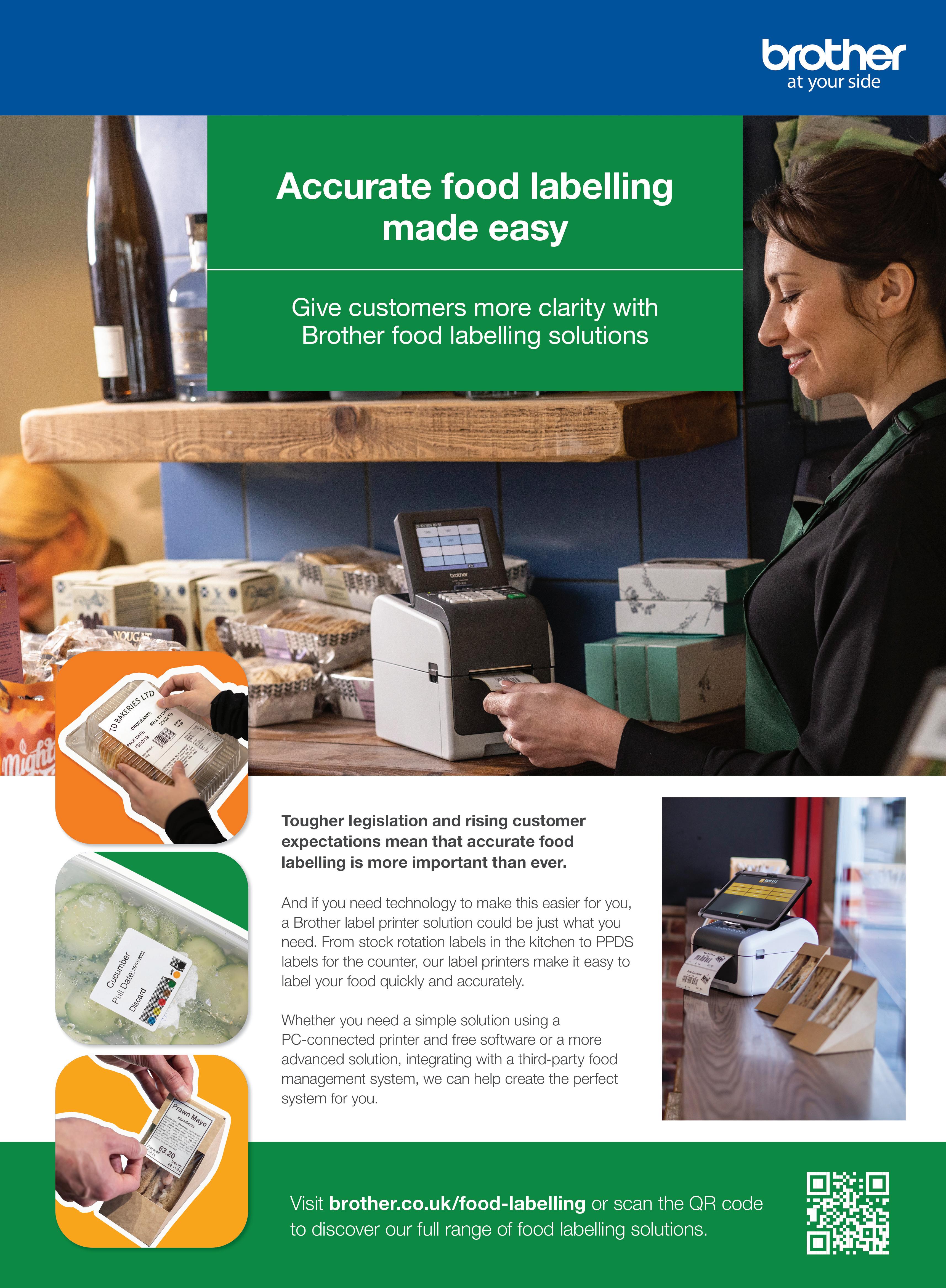
Food outlets and catering providers understand the serious risks of food labelling errors – both to customers’ safety and a business’s reputation. To help prevent future hazards, there have been significant improvements to labelling standards in the industry.
Natasha’s Law, introduced in October 2021, has revolutionised the way food allergens are labelled on Pre-packaged for Direct Sale (PPDS) foods. While it has brought about positive changes, it also presents new challenges for industry workers as they strive to ensure ‘best practices’ are met and legal requirements are followed effectively.
Food outlets offering consumers PPDS food that is made on-site and packaged by the business, such as grab-and-go sandwiches or meals, must comply with Natasha’s Law by clearly displaying the food name, a full list of ingredients, and highlighting any allergens – which could be bolded or in another colour.
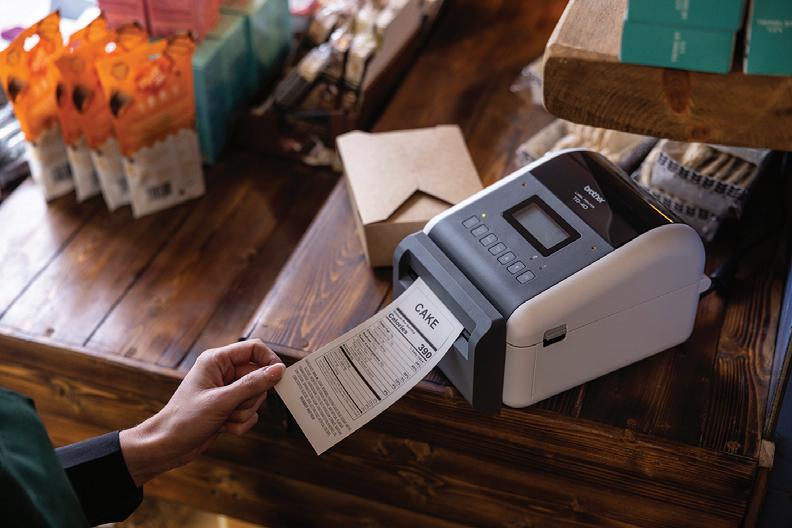
Failure to follow such rules could result in substantial fines or even criminal charges. To avoid penalties and maintain customer safety, businesses should implement effective and accurate labelling solutions. Brother’s labelling solutions for PPDS foods allow food outlets and providers to produce high resolution
labels. to help businesses meet regulations, streamline labelling process and give customers more confidence in their choices.
Café Common Ground is one such business benefitting from from Brother’s labelling solutions, after it started offering takeaway PPDS food for the first time.
Brother’s TD-4520DN professional network desktop printer and free P-touch Editor software was the perfect solution for printing bespoke labels for ingredients and potential allergens as required by Natasha’s Law. The solution delivered fast, professional, and compliant labels that were easy to use.
Additionally, Brother’s stock rotation solution offers complete flexibility and can be integrated into existing digital services or used as a standalone solution with additional battery packs and touchscreen display units available.
As food labelling requirements continue to evolve, businesses should adopt flexible technology that can produce accurate, legible and cost-effective labels, to keep both customers and businesses safe.
Visit https://brother.co.uk/food-labelling to discover our full range of food labelling solutions.
See the advert on the previous page for details.
With over 28 years of experience supplying branded uniforms to businesses across the UK, Kylemark has built a reputation for quality, reliability, and exceptional service. From hospitality and corporate sectors to industrial and leisurewear, Kylemark delivers more than just clothing — we provide confidence, consistency, and style to every member of your team.
At the heart of our operation is our commitment to in-house branding. Unlike many suppliers, Kylemark controls the full decoration process — embroidery, print, and alterations — from our own factory. This means better quality control, faster turnaround times, and a more responsive service tailored to each client’s needs.
One of our proudest achievements is the creation of the Coast & County apron range, manufactured right here in the UK. Designed for the demands of the hospitality sector, these aprons offer a perfect blend of durability, comfort, and visual appeal.

Sir Woofchester’s has the UK’s largest and most specialised product range for dogfriendly hospitality businesses, including several personalised products.
For your BAR OR RESTAURANT
Our Dog Menu features a range of Treat Pots, Dinner Bowls, Dog Drinks and Snacks, displayed with eye-catching point of sale
For your BEDROOMS & ACCOMMODATION
Choose between:
-“All day breakfast” snack bar: a delicious innovative treat for dogs on-the-go!
-“Sleepy Bones” treat pot: relaxing bedtime dog treats.
-“Dog Welcome Pack” PERSONALISED: an nicely presented pack containing poo bags, a ball toy and a pot of Sleepy Bones. (Note: the container also serves as a temporary waterbowl!) YOUR COMPLETE SOLUTION
Water bowls, waste bags, accessories, top tips & everything else you need to be more dog-friendly.
To ensure the highest quality products, we hold a DEFRA registration, a GB Pet Food Manufacturers registration and much of our range is BRC or SALSA certified.
We look forward to working with you.
David & the Sir Woofchester’s team
They’re a favourite among chefs and front-of-house teams, with clients including Tom Kerridge, Brasserie Blanc, Restaurant Associates, and more.
Kylemark doesn’t believe in a one-size-fits-all approach. We work with businesses of all sizes — from independent traders to multi-site national brands — offering bespoke solutions, product consultation, high-resolution visuals, and even personalised ordering portals. Whether you need a full uniform rollout or a single embroidered jacket, our experienced team makes the process smooth and stress-free. We don’t just help your team look the part — we make sure they feel it too.
Tel: 01292 618344
Email: sales@kylemark.co.uk www.kylemark.co.uk
You may also wish to consider the following benefits of working with Sir Woofchester’s, to help elevate your wider business:
• Increased average customer spend
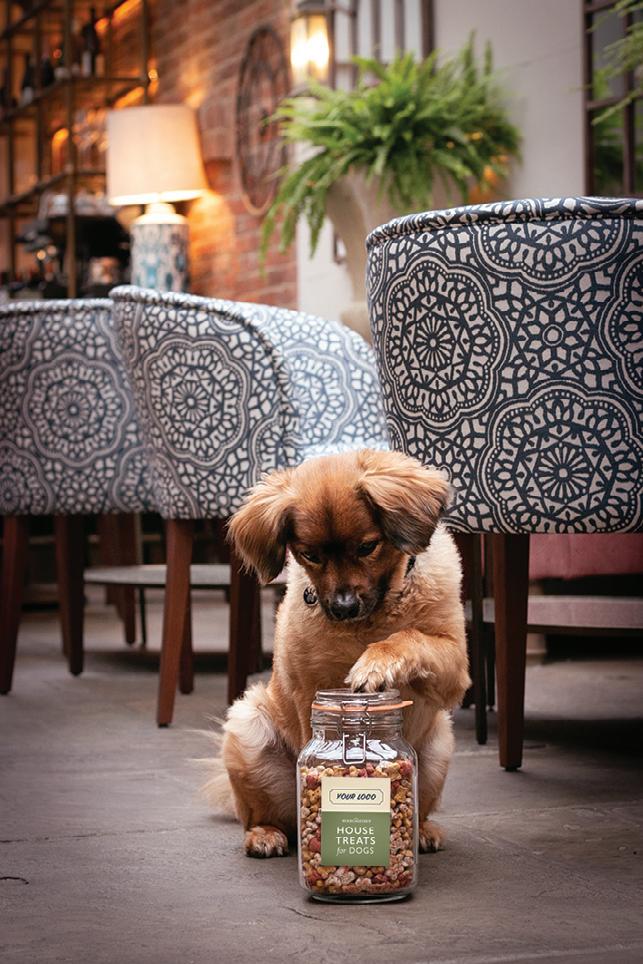
• Increase repeat visits
• Enhances staff engagement & enjoyment
• Link to other initiatives – charityfundraisers, online competitions
• Great social media content & word of mouth marketing
• Contributes towards improved reviews
• Fully compliant with legislation etc WHY DOG-FRIENDLY?
The number of UK dog owners has increased by over 25% since 2020
Many of these are new ‘first time dog owners’ (including pre-family millennials)
Dog owners like to treat their canine like one of the familywhen they visit your establishment
The dogfriendly trend in hotels & tourism etc has been increasing for over a decade!
The pandemic has seen a behaviour change, with more dog owners choosing the UK for their short breaks or annual holidays
The cost of boarding kennels & pet-sitting has risen, so your customers now increasingly want to bring their dog with them!
We see ever-increasing dog-friendly requirements with accommodation providers, food & beverage outlets, as well as tourist attractions.
See the advert on page 19 for details or visit www.sirwoofchesters.com
Having worked with hospitality businesses for over two decades, from hotels to pub chains, sports venues, bars and restaurants, we’re often engaged in the conversation – how do operators best protect themselves from dine and dash?
Technology can be a valuable ally in the fight against such opportunism. CardsSafe is designed to securely store a customer's bank cards while they run a tab. It’s the ideal deterrent for anyone contemplating walking out without paying because their card is safely tucked behind the bar in a CardsSafe unit. The system securely stores bank cards and facilitates easy tab-keeping. Rather than insisting on advance payment, businesses can keep tabs and upsell while doing so.
CardsSafe has been a trusted partner in the hospitality and leisure industries, assisting with bar tabs and significantly boosting profits. Renowned establishments, including Young’s Pubs, Hilton Hotels, and
numerous golf courses, have been reaping the benefits of CardsSafe for years.
Deers Hut pub in Liphook, Hampshire, first came to CardsSafe in 2013 to seek help with a large volume of bar tabs for both indoor and outdoor customers. One of the primary motivations for using CardsSafe was to stay on top of where their customers were located outside. Deborah Steel, the Director, told us, "The CardsSafe system is great for servicing customers who enjoy our outdoor areas."
CardsSafe is affordable, too. Each unit, containing ten card drawers, costs just £9.95 per month. So, just one £120 walkout is the cost of a 10-card CardsSafe unit for an entire year. Additionally, each hire includes customer service troubleshooting and free replacement keys, with the option to add additional units at any time.
The question is, can you afford not to have CardsSafe as a part of
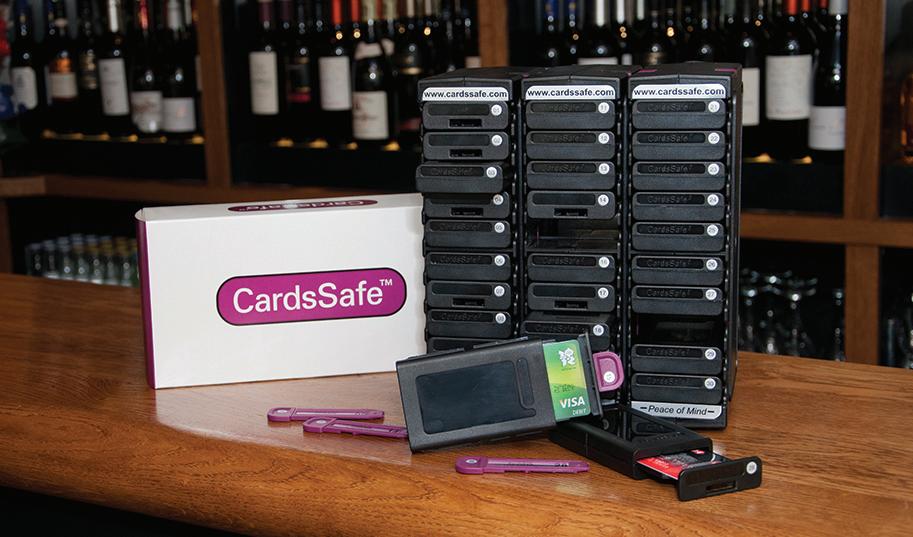

Cacaolat is the legendary Catalan chocolate milk known for its rich, creamy texture and perfectly balanced cocoa flavor. Made with high-quality cocoa and fresh milk, it delivers a smooth, indulgent taste that’s neither too sweet nor too bitter.
It is the worlds oldest recorded chocolate milk producer, and its secret lies in its 1933 recipe, which ensures a velvety consistency and deep chocolatey goodness in every sip. Cacaolat is enjoyed cold for a refreshing treat or warm for a comforting experience. With no artificial additives, it’s a natural, delicious choice for chocolate lovers.
Contact us on:
0117 242 1669 or info@victusemporium.co.uk You can view more of our amazing products at victusemporium.co.uk
See the advert on page 3.
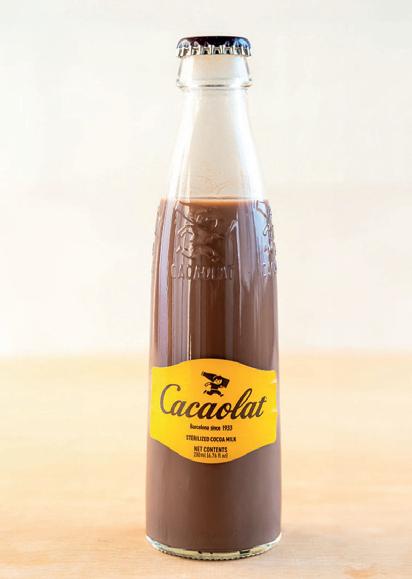
Bringing the next level tech entertainment into your pub/social club/holiday park offering is a sure-fire way to improve your revenue streams
But while that may sound straightforward common sense, it isn’t necessarily that clear cut. The level of revenue generated depends very much on the type of entertainment on offer. As a publican, what options are out there for you when it comes to your entertainment tech!
When it comes to offering entertainment you need a interactive product, that will give you the option to react and interact with your audience and not tie you into a long contract!! So what other things make you truly stand out?
Well, a Pub Quiz Night is a prime opportunity to attract a crowd! Spreading your quiz over multiple rounds keeps participants inside your venue for the long haul. Try to pick a non-football night for maximum draw. And when it comes to quizzing, our pub entertainment system, The Entertainer, does all the hard work for you Music has always been a great way of ‘getting the party started’ whether you use playlists or you’re a budding DJ, we have thousands of tracks at your fingertips, giving you freedom to get the mood right. The Entertainer acts as a de facto KARAOKE fest, providing modern and classic karaoke tracks supplied a

market leader of karaoke!
Race nights? I hear you say! The Entertainer allows you to screen races – be that pub that has horse/pig/afghan/trotting racing. These can provide great pub fund raiser opportunities. Bongo Bingo the craze that is sweeping the nation !!!, why not try our version DISCO BINGO whether you are a new romantic we have Back to the 80s or you want to put the boots and cowboy hat on!!! There is a game for you to be sure. How to maximise revenue , you can even advertise via the Entertainer to promote your various entertainment nights, or you can even involve
The King’s Head in Carlisle is a great example of how modern pubs can adapt and thrive by embracing high-speed cooking technology. Faced with rising staff costs and the need to serve food quickly without compromising on quality, landlord Mike Vose turned to the Lincat CIBO+ oven from the High Speed Oven Company to bring a new level of efficiency to his kitchen. A seasoned operator with decades of experience, Mike understood that traditional kitchen methods were too slow and labour-intensive for the fast-paced service he wanted to provide.
The CIBO+ offered an immediate solution—combining powerful convection cooking with microwave technology to deliver his menu rapidly. Instead of reheating portions of pies in his combi-oven (taking 7-8 minutes) they are now ready in under 2 minutes. The oven has also allowed the pub to bring in an expanded lunch menu of toasties cooking in just 90 seconds.
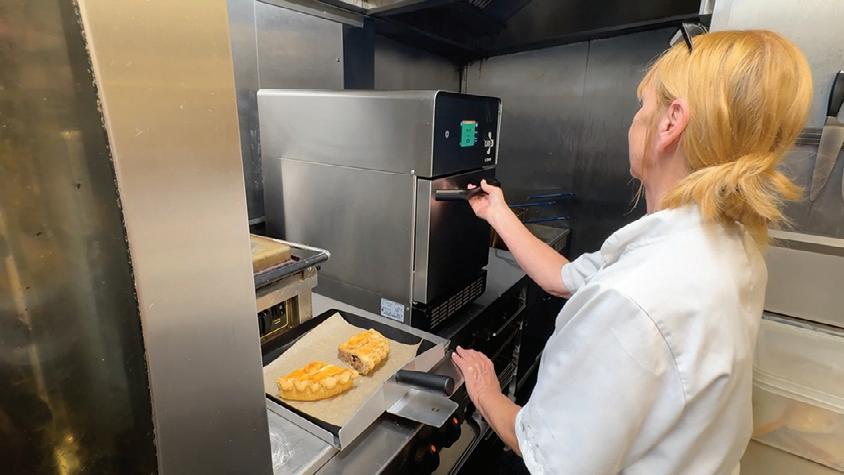
The oven delivers consistent results with minimal training. On site training is provided and Its compact footprint also makes it ideal for kitchens with limited space, something that’s often a challenge in busy pubs and bars.
What’s more, the oven requires no ventilation or extraction, allowing it to be placed virtually anywhere. This opens up new opportunities for food service even in locations that couldn’t previously accommodate hot food equipment. For Mike and The King’s Head, that meant turning more drinkers into diners and offering food throughout the day, not just during peak service.
If you’re looking to improve kitchen speed, cut labour costs, and increase your menu range, the Lincat CIBO+ high-speed oven could be the game-changer your pub needs.
See more here: www.highspeedovens.co.uk/case-studies/the-kings-head-lincat-cibo/
See the advert on page 9 for details.
CLEAN Linen & Workwear are one of the UK's most trusted laundry companies. They supply tailored workwear solutions provided by real people. Their comprehensive laundry network means they can service customers throughout England and Wales, providing chefswear, workwear and linen rental services. Whether you operate from a single-site hotel, pub or restaurant or have multiple locations, CLEAN can tailor a workwear rental solution to suit your business requirements. They offer various uniform options to support the entire kitchen brigade, from Executive Chefs to Kitchen Porters.
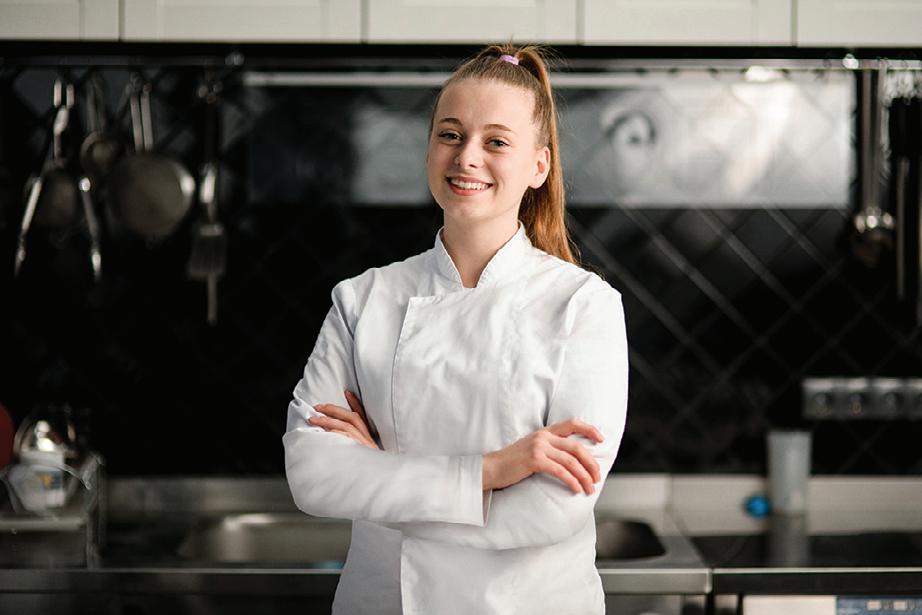
With their workwear rental service, you can say goodbye to the hassle of purchasing, storing, and maintaining chef and kitchen uniforms. Instead, enjoy the convenience of a hassle-free rental system that provides freshly laundered garments whenever your team need them. By renting with CLEAN, you can avoid upfront purchase costs, spread the payments over your contract, and ensure quality and care with every wash. Delivery is free, and there are


From medieval monasteries to modern beer gardens, cider continues to cement its position as a cornerstone of the UK hospitality sector.
Cider's story in Britain stretches back over a thousand years, with historical records showing that medieval monks were perfecting the art of apple fermentation long before beer became the nation's beverage of choice. What began as a necessity when water quality was questionable has evolved into a sophisticated category that's experiencing remarkable growth in today's challenging economic climate.
The numbers speak volumes about cider's importance to the UK hospitality sector. It has been a positive year for the Cider category, making it one of the most popular of all major drinks categories in the On Premise.
Weston Cider report reveals that Apple Cider remains the most popular type of Cider, driving the category in both value and volume. Across all channels, apple Cider drinkers consume more Cider than those who prefer other types, leading to higher sales rates, volumes, and average spending. Approximately 60% of drinkers and consumers choose apple Cider, reinforcing its position as the leading segment. Notably, premium apple crafted products are experiencing the fastest growth within the Cider market in both channels of trade.
According to the latest Heineken Cider Report, cider is worth £2 billion to UK pubs, bars and restaurants, demonstrating its crucial role in driving revenue across the licensed trade.
This impressive valuation reflects a category that has been consistently outperforming expectations. Over the past 12 months alone, an extraordinary 342 million pints of cider and approximately 114 million bottles have been consumed across the on-trade, underlining the sustained appetite for this quintessentially British drink.
The growth trajectory tells a compelling story of premiumisation and value creation. Over the last two years, cider has achieved a remarkable 5% value growth, with draught offerings being a particular bright spot, signifi-
cantly outperforming packaged alternatives. While volume has seen a 3% decline, this apparent contradiction actually highlights how consumers are trading up to premium options, driving greater value into the market.
"Cider remains a crucial part of the Long Alcoholic Drinks category in Britain and the pub sector is highly important for the category," explains Rachel Weller, Commercial Leader at CGA. "'Premium Local' pubs are a key segment for cider, holding a 19.4% share of total cider sales, while free trade pubs remain the largest tenure, closely followed by managed, which is also in growth."

Apple cider continues to dominate the category, representing, as stated above, approximately 60% of all cider consumption across all channels. This traditional foundation remains robust, with premium apple crafted products experiencing the fastest growth within both on-trade and off-trade channels. The enduring popularity of apple cider reflects consumers' desire for authentic, recognisable flavours even as the category expands into new territories.
However, innovation hasn't been forgotten. Premium flavoured ciders are gaining traction, indicating evolving consumer preferences and the need for operators to cater to diverse tastes. In the period between 2025 and 2035, the category will grow on the strength of innovation in hybrid drinks, functional ingredients, and no- and low-alcohol options. Botanicals, adaptogens, and probiotics will be embraced by businesses for wellbeing consumers.
The demographic profile of cider consumers reveals interesting patterns that savvy operators can leverage. The younger population's preference for the beverage accounted for the category's expansion. According to surveys, those aged 18 to 34 years old were the most frequent users of fruit cider in 2018, accounting for over half of total consumption. This younger demographic

alignment positions cider well for future growth as these consumers mature and develop stronger brand loyalties.
Recent consumer research conducted by business insurance broker Premierline reveals that when asked about their favourite pub drinks, 27% of Brits chose cider, while 18% opted for craft lagers, 14% preferred locally distilled vodka, and only 12% selected gin. This preference places cider as the leading choice among British pub-goers, ahead of many other popular categories.
Summer remains cider's golden season, with beer gardens becoming natural showcases for the category. The refreshing nature of cider, combined with its lower alcohol content compared to many spirits, makes it an ideal warm-weather beverage. The outdoor dining trend, accelerated by recent years' changing social patterns, has only strengthened cider's position as the perfect accompaniment to al fresco dining.
In fact, the humble British pub garden has topped the list of best places for a pint, according to research from Thatchers Cider.
Almost half of Brits (41%) chose the classic pub garden as their perfect location when asked to select the best spots for a pint of cider. This beats the beach, festivals, sports events, mountain views and parks.
Eleanor Thatcher, fifth generation cider maker at Thatchers Cider, said: “It’s a testament to our amazing hospitality industry here in the UK that people would rather be in the pub garden enjoying their perfect pint than anywhere else in the world.
“It is the simple pleasures of getting together at your local with family or friends. You don’t need a special occasion to treat yourself to a glorious pint of refreshing cider, particularly on a sunny day.”
One of cider's most compelling characteristics for operators is its exceptional brand loyalty. Over threequarters of cider consumers specify a brand when ordering, which is five percentage points higher than the average consumer across all alcoholic beverages. This brand specificity creates both opportunities and challenges for publicans.
Almost two in five purchasing decisions are influenced by the availability of favourite brands, making brand selection a more significant driver than value and quality considerations. "With loyalty being so crucial, suppliers must ensure the right cider brands are stocked in the right outlets," emphasises Weller.
As consumers navigate ongoing cost-of-living pressures, the importance of quality in cider has never been more pronounced. Historical trends from previous economic downturns show that while alcohol may not be viewed as a necessity, it's often considered a comfort rather than a luxury. In fact, alcohol sales tend to increase during periods of economic hardship.
This creates a unique opportunity for cider, particularly premium draught offerings. Long alcoholic drinks have traditionally performed better during recessions, as consumers perceive them as offering greater value and affordability compared to more expensive options like wine and cocktails. This positioning allows premium draught ciders to capitalise on consumer behaviour shifts, encouraging customers to choose cider over other beverages in price-sensitive environments.
The renaissance of draught cider represents one of the category's most significant developments. Draught cider maintains a majority share of volume sales while packaged cider has experienced declines. This shift reflects changing consumer expectations and the enhanced experience that draught service provides. For operators, draught cider offers multiple advantages: higher margins, better freshness, reduced storage requirements, and the theatre of service that enhances the customer experience. The visual appeal of cider being pulled from taps, particularly when served in traditional glassware, adds to the premium positioning that drives value.
Understanding consumer behaviour patterns reveals that cider drinkers are actively engaged with the onpremise and are drinking out more frequently than they were a year ago. This increased engagement presents significant opportunities for operators willing to invest in the category.
Range Strategy: Implementing a dual strategy that caters to both draught and packaged cider consumers is essential. While draught should form the core offering due to its growth trajectory and margin benefits, maintaining select packaged options ensures broader appeal.
Brand Selection: Given the exceptional brand loyalty in the category, careful brand curation is crucial. Focus on established brands with strong local recognition while incorporating emerging craft options that appeal to the premium segment.
Seasonal Maximisation: Leverage cider's natural summer seasonality by creating dedicated outdoor displays, garden-specific promotions, and food pairing suggestions. Consider extending the season through autumn with warming spiced varieties and harvest-themed presentations.
Quality Focus: With consumers prioritising quality over quantity, ensure proper storage, service temperatures, and glassware selection. Invest in staff training to communicate the provenance and craftsmanship behind premium offerings.
Innovation Balance: While apple cider remains dominant, introducing carefully selected flavoured options can attract new consumers and provide existing customers with variety. Monitor local preferences and seasonal trends to guide selection.
The cider category's resilience and growth potential position it as an essential component of any well-balanced drinks portfolio. With consumers demonstrating increased engagement with on-premise occasions and a willingness to invest in quality experiences, operators who understand and capitalise on cider's unique characteristics will find themselves well-positioned for success.
Consumers who drink cider are not just loyal to brands but increasingly active in their on-premise engagement. This combination of brand loyalty, increased frequency, and premiumisation creates a powerful foundation for sustained growth.
The ancient art of cider making has evolved into a modern success story, proving that tradition and innovation can coexist profitably. For operators willing to embrace the category's potential, cider offers a path to enhanced revenue, customer satisfaction, and competitive differentiation in an increasingly challenging marketplace.
The message is clear: cider isn't just surviving in the modern hospitality landscape – it's thriving. Those who recognise and act on this opportunity will find themselves raising a glass to sustained success.
Customers care deeply about the environment and want to feel empowered and optimistic about their drink choices. With twothirds looking for a cider that’s sustainably made, choosing the right supplier can boost customer confidence and improve sales.
From turning apple waste into green energy, to capturing carbon created during fermentation and using it to add sparkle to the ciders, Thatchers is committed to sustainability. That’s why we spent three years regeneratively farming before planting 13,000 trees this year, and why we make all our ciders using 100% renewable electricity, including power from the 13,500 solar panels on our roof. But the story doesn’t stop at the orchard. After
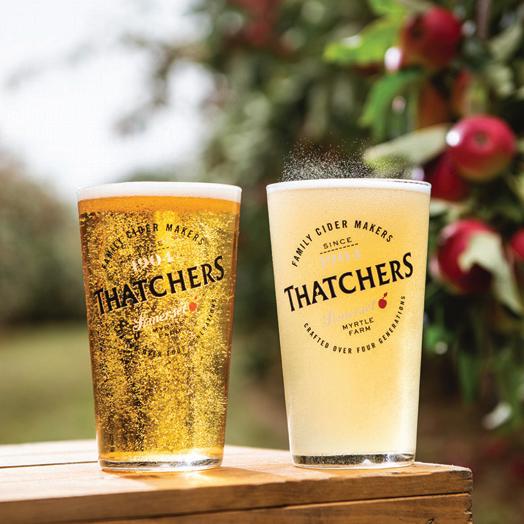
more than 120 years working in partnership with nature, we’ve learnt how to make delicious ciders that are as good for the environment as they taste in the glass. Pairing those ciders with robust flavours such as cheese, meat, fish and spice will enhance menus and offer diners unique experiences. We recommend a quality apple cider like Thatchers Gold - the No.1 brand for apple cider drinkers, alongside Thatcher’s award-winning fruit cider range (Blood Orange, Cloudy Lemon and Apple & Blackcurrant), and the No.1 low/no cider, Thatchers Zero, to ensure you have something to delight everyone.
See the advert on this page for further information.

To mark 145 years of cider making, Westons Cider – the UK’s leading independent cider maker – is running a nationwide summer giveaway aimed at rewarding and recognising its valued on-trade partners.
From 1st May to 31st August 2025, pubs and bars across the UK will have the chance to win a share of over £112,000 in cash prizes, with four lucky winners taking home £10,000 in cash and 145 more each receiving £500 to support their business.
Running throughout the key trading period over spring and summer, the campaign is giving back to the venues that have supported the brand over the decades. With significant cash prizes on offer, it’s a simple way for operators to get rewarded for stocking a trusted cider range that consistently performs behind the bar.
The competition is open to both new and existing Westons stockists, including those purchasing via national, regional wholesalers and pubcos.
“Celebrating 145 years is a huge milestone for us,” says Darryl Hinksman, Head of Business Development at Westons Cider.
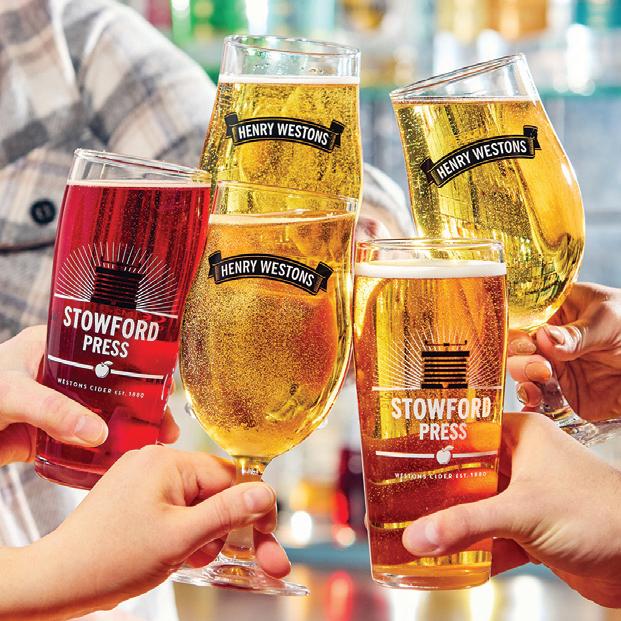
“Pubs and bars have always been at the heart of our story and this campaign is our way of saying thank you, giving our customers an easy way to get even more from the brands they choose to serve. Whether the prize money goes towards a garden revamp, team incentives or new kit behind the bar, we hope it delivers real impact to our trusted partners.”
Sheppy’s Cider, renowned as one of the oldest cidermakers in the world, has been producing premium traditional cider in Somerset for over 200 years.
Established in 1816 by David Sheppy's ancestors, the company expertly blends time-honoured techniques with contemporary technology, all while upholding a steadfast commitment to quality.
AND EXPERTISE
David Sheppy, the Master of Cider, expertly manages the detailed cider-making journey from apple to bottle, guaranteeing exceptional quality through his extensive knowledge. The apples used by Sheppy are cultivated across 90 acres of orchards on their farm, and they employ a natural fermentation process that utilises wild yeasts.
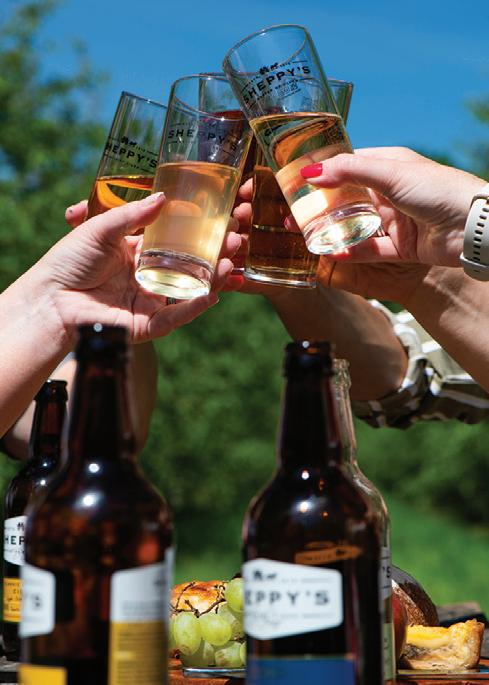
Located at Three Bridges Farm near Taunton, Sheppy’s takes pride in producing pure apple juice products and using natural ingredients to create an exceptional range of ciders for discerning consumers. Furthermore, Sheppy’s is dedicated to environmental protection and sustainability. The company reduces waste in production by directing used water into swales, which foster habitats for diverse wildlife. Additionally, Sheppy’s collaborates with sustainable packaging suppliers to uphold robust environmental practices.
These initiatives reflect Sheppy’s unwavering dedication to sustainability while celebrating its rich heritage.
For further information, see the advert below or visit www.sheppyscider.com

To enter, outlets simply need to purchase three kegs of qualifying Westons draught cider – including Stowford Press Apple, Stowford Press Dark Berry, Henry Westons Vintage and Henry Westons English Berry Draught – and enter through the following webpage: https://westons-cider.co.uk/10000.
Every additional three kegs purchased gives pubs another entry, meaning the more kegs ordered, the better the chances.
There’s also the opportunity to earn bonus entries through Westons’ ‘Refer a Pub’ feature – if a participating pub refers another venue to the competition, and that venue makes a qualifying entry, the referring pub will gain an extra entry.
Renowned for its premium, crafted ciders such as Stowford Press and Henry Westons, Westons is proud to still operate as a fourth-generation, family-run business. Every drop of cider is pressed, fermented, and packed at its mill in Much Marcle, Herefordshire, using traditional cider apples grown and harvested within a 50-mile radius. Westons’ ciders reflect the quality of the local orchards and the expertise built over 145 years of cider making –earning the brand a reputation for quality, consistency and craftsmanship across the trade.
For full details, terms and conditions, and how to enter or refer a fellow publican, head to https://westons-cider.co.uk/10000.
As the mercury rises and cider season kicks into high gear, Magners is making a bold move to reignite consumer passion with its most ambitious campaign in over a decade. Backed by a multi-million-pound investment, the new initiative, aptly named ‘That’s Magnertism’, is set to energise the on-trade and bring a refreshing buzz to bars across the UK.
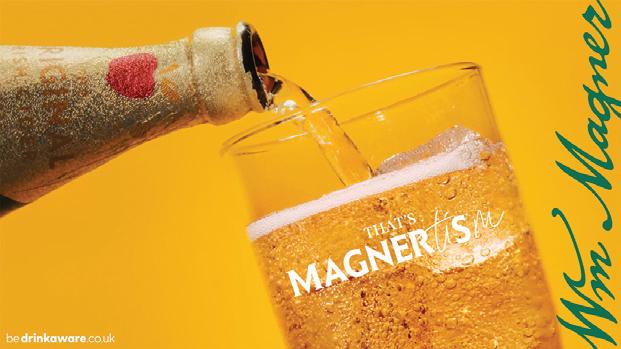
Launching in May, the campaign is a full-force celebration of the unique energy that Magners brings to social moments. At the heart of the campaign is the hero TV spot ‘Fizzy Feet’, a vibrant, foot-level visual capturing the contagious joy of that first sip of Magners over ice. It’s a sensory experience designed to resonate with customers and drive footfall during the crucial summer trading months.
For the on-trade, this campaign is more than just noise - it’s a business opportunity. The 2025 Magners Trade Programme will engage 2,000 venues across England, Scotland, Wales, and Northern Ireland. With a scan-towin mechanic offering prizes including a trip to New York, it’s a compelling reason for customers to choose
Magners at the bar. This initiative not only boosts engagement but also adds value for operators looking to differentiate their cider offering.
Jane Parlon, Director of Brand Marketing (Cider) at C&C Group, describes Magnertism as “the unique and infectious energy that comes from Magners, and the power to draw the best out of people and moments spent together.” It’s a sentiment that aligns perfectly with the ontrade’s role in creating memorable social experiences. Outdoor advertising featuring glistening macro shots of Magners over ice will complement the TV and digital rollout, reinforcing the brand’s refreshment credentials. With cider sales historically peaking in June through August, the timing couldn’t be better.
For publicans and bar managers, this campaign offers a ready-made platform to drive sales, attract new customers, and capitalise on the seasonal uplift. With strong brand heritage, a compelling consumer promotion, and a nationwide media presence, That’s Magnertism is set to be the spark that lights up the cider taps this summer.


Brand new consumer research from premium snack brand Tyrrells shows pubs remain in high demand and at the heart of social culture in the UK, with 49% of people favouring their local pub over other venues and 51% of people going to the pub to catch up with friends and family.
Great food, drink, and service lead as the top three distinguishing factors that create a great pub experience, with sport screenings (24%), live music (41%) and beer gardens also proving to be important features for consumers as they continue to value traditional pub experiences.
The research conducted by leading snacks provider and owner of Tyrrells, KP Snacks, also highlights ways in which the hospitality industry can increase spend and make visits more pleasurable. Feedback shows that 1 in 4 visitors go to pubs to celebrate a special occasion and that 24% of consumers identify premium snacks as a core element of making a visit feel more like a social occasion. Half of customers are also more likely to purchase a bar snack from a premium brand, with 38% of people purchasing a snack at a pub to share with family and friends.
Tyrrells is supporting pubs and bars in driving sales with The League of Tyrrellbly Good Taste by delivering free POS to signpost the availability of snacks and support pubs in driving sales.

There are certain elements of a visit to the local pub that customers take for granted.
Beer, wine and bar snacks are usually a guarantee but in the early months of 2025, normality came under threat by a foot and mouth outbreak amongst animals in Eastern Europe.
This severely impacted the supply of pork rind leading to a shortage of Pork Scratchings across the trade.
Landlords, wholesalers and factory owners were left scratching their heads!
The team at Snack Brands, home of Uncle Alberts Porkshire Pig were suddenly inundated with panicked phone calls from competitors desperately trying to plug holes in their supply.
Alex Morrisey, Head of Sales and Marketing at Snack Brands shares his thoughts on the unique challenges the industry has faced and is optimistic about the resilience of the humble Pork Scratching.
‘’We started the year riding the coat tails of the keto diet phenomenon, our Crunch product was seeing
Robert's Dorset provides an unparalleled snack experience that will elevate your trade and hospitality offerings to your customers.
At Robert's Dorset, we understand the diverse dietary preferences of your patrons, whether they follow a vegan, keto, or allergen-free lifestyle. Rest assured; our selection of snacks caters for all.
As a trusted supplier to independent shops, pubs, and the hospitality industry, we offer a range of sizes in all our products for direct reselling.
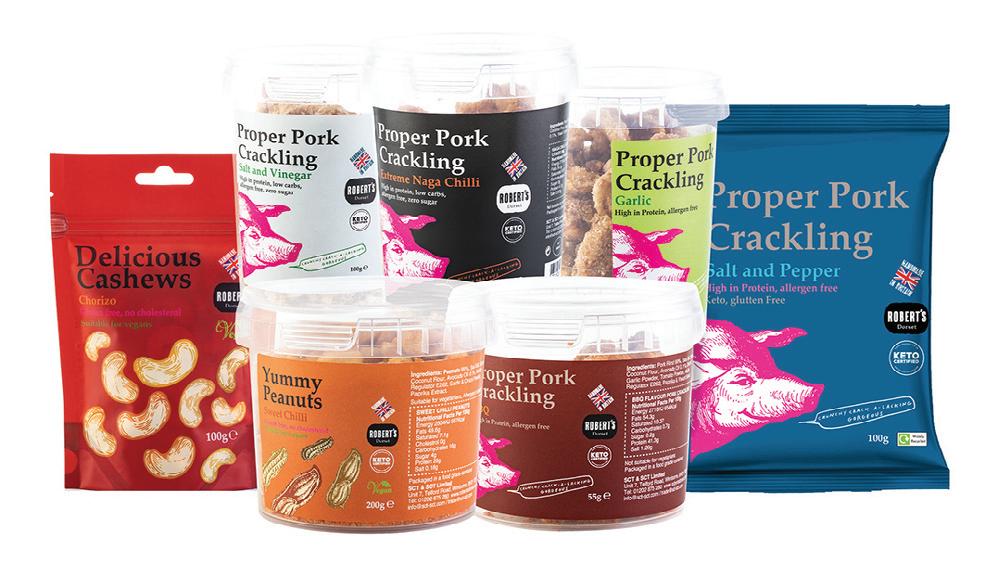
Our vibrant packaging is designed to catch the eye, while the contents are sure to satisfy. From our stackable pots which optimise your shelf space, and fit most cup holders, to our elegant mason jars which add the "wow factor" to any display.
Discover the perfect bar snacks to complement your fine beverages or enhance your guests' welcome baskets with something truly special.
WHY CHOOSE ROBERT'S DORSET?
Established in 2011, we are a family-owned and operated business. At the core of our operations lies a personal touch, ensuring our trade customers enjoy the following advantages:
• Delicious snacks to delight your customers.
• Exceptional customer service, led by a dedicated Account Manager.
• Convenient ordering options, whether online or by phone.
• Handcrafted products made in beautiful Dorset, England.
• Every item is prepared to order, ensuring customers always receive the freshest products
• All our packaging is fully recyclable or reusable and we have a 99.9% waste free production process
• Proudly certified by the Roundtable of Sustainable Palm Oil (RSPO) - palm oil is only used in Fudge
• All our ingredients are of the highest quality. Contact Robert for an online catalogue and more information regarding our perfect snacks. robert@robertsdorset.com | 01202 875280 | www.robertsdorset.com
See the advert on page 5 for further information.
Sam Trabelsi, Out of Home Controller, KP Snacks, says: “We know recent increases in National Insurance Contributions and other rising costs have left many pubs fighting for survival. As a market leader in snacking, we want to do our bit by sharing some valuable insights with owners to support the hospitality industry to drive sales during such a difficult time. Our research shows that Brits continue to support pubs and bars and are actively seeking out a memorable pub experience with a focus on excellent delivery. With evidence showing that premium snacks also enhance pub experiences and make them feel more upmarket, this new data gives valuable insights on how to drive consumer engagement and maximise sales”.
Pubs can register their business to become a “Tyrrellbly Tasteful Establishment” via a bespoke platform to avail of their free POS kit and the chance to win a year’s supply of Tyrrells crisps, worth more than £5,000. To join or find out more, visit here: https://www.tyrrellscrisps.co.uk/league/
With over 90 Great Taste Awards across the range, Tyrrells is a leading premium snacking brand, worth £71.3m and growing ahead of the overall Bagged Snacks category at +9.5%[1]
really strong sales and our scratchings and crackling were flying out too.
April was a difficult month, we were essentially rationed by our suppliers and our sales took a 20% hit on the previous year.
Bumps in the road can also present an opportunity, our Jalapeno and Roast Pork Crackling were readily available and we were able to push these products into some of our larger stockists. The industry has faced 9 years of challenges from Brexit to the energy crisis via a global pandemic but we are optimistic about growing our business in a more stable business environment.
Thankfully the restrictions have recently been lifted by DEFRA, ‘’We are fully stocked and have just launched our brand new website, www.snackbrands.co.uk, trade customers can sign up for exclusive discounts.’’
See the advert on the inside front cover for further details.

DON’T MISS OUT ON REAL HAND COOKED CRISPS’ MASSIVE TRADE EXCLUSIVE COMPETITION… WIN YOUR SHARE OF £25,000 WORTH OF FREE STOCK!
REAL, the foodservice focussed premium hand cooked crisps with bags of character, is running its biggest ever competition, giving away over £25,000 worth of free stock.

Every month from May to September, five lucky winners will each receive £1,000 worth of REAL Hand Cooked Crisps stock. That's five chances every month for five months to win a share of this incredible prize!
Mark Dyer, Tayto Food Service National Account Controller shares, “We’re REAL-ly excited about our biggest ever trade exclusive on-case promotion. With over 20 years of supporting the food service channel, this MASSIVE stock giveaway - alongside our ongoing partnership with the Springboard Charity - underlines our commitment to this vital sector.”
Entering is easy - purchase any case of REAL Hand Cooked Crisps from your delivered wholesaler or C&C and visit realcrisps.com/win
Upload your receipt and be entered into the monthly draw.
With a draw every month you have even more opportunities to win if you buy REAL regularly!
REAL is a Great Taste Producer with a range of 9 ‘in your face’ flavours that are all gluten free, vegetarian and with no added MSG.
With five chances to win every month, there's never been a better time to get your hands on some of best-selling flavours!
This is a REAL-ly big prize that you don't want to miss!
Tayto Group is the largest family-owned, Britishmade snack company, with a stable of well-known British brands:
• Great Taste Award winning pork scratchings
- Midland Snacks, the ultimate and traditional pub snack
• Golden Wonder fully-flavoured crisps – the iconic favourites
• Animal Adventures - the fun, gluten-free, vegan, family-friendly snack
• Marmite Crisps – your customers will LOVE these moreish crisps
With the perfect product for everyone, Tayto has food service snacking sorted…


In a professional kitchen, sharpness isn’t a luxury — it’s a necessity. From the first prep of the day to the final plating at night, chefs count on their knives to deliver precision. That’s where the Tormek T-2 Pro Kitchen Knife Sharpener comes in — a sharpening solution trusted by culinary professionals around the world.
Backed by over 50 years of sharpening expertise, and developed for the intensity of the commercial kitchen, the Tormek T-2 Pro Kitchen Knife Sharpener gives chefs full control over their edge. The machine is gentle on knives — it sharpens, not shortens. Thanks to the slow-rotating diamond grinding wheel and high-precision guide, it only removes minimal steel, preserving the life of your knives while delivering exceptional sharpness. What sets the Tormek T-2 Pro Kitchen Knife Sharpener apart is its blend of sim-
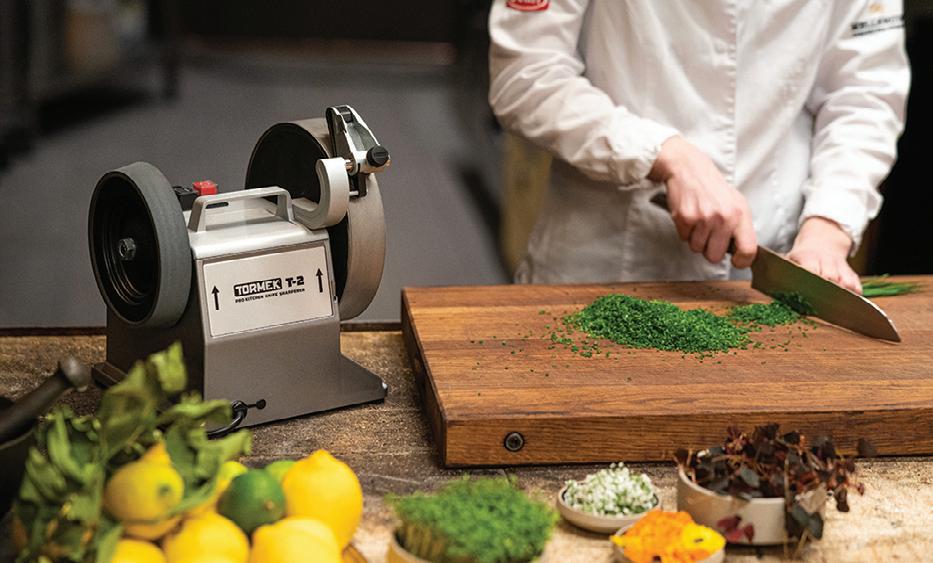
plicity and professional-grade results. No guesswork. No overheating. Just consistent, razor-sharp edges — time after time. With its low-noise operation and compact design, it integrates seamlessly into even the busiest culinary spaces — and is also suitable for sharpening other blades commonly used in food preparation.
The Tormek T-2 Pro Kitchen Knife Sharpener is designed to handle a wide range of kitchen knives — from large chef’s knives to small paring blades — and can also be used to sharpen other common kitchen blades, including mandoline blades and S-blades.
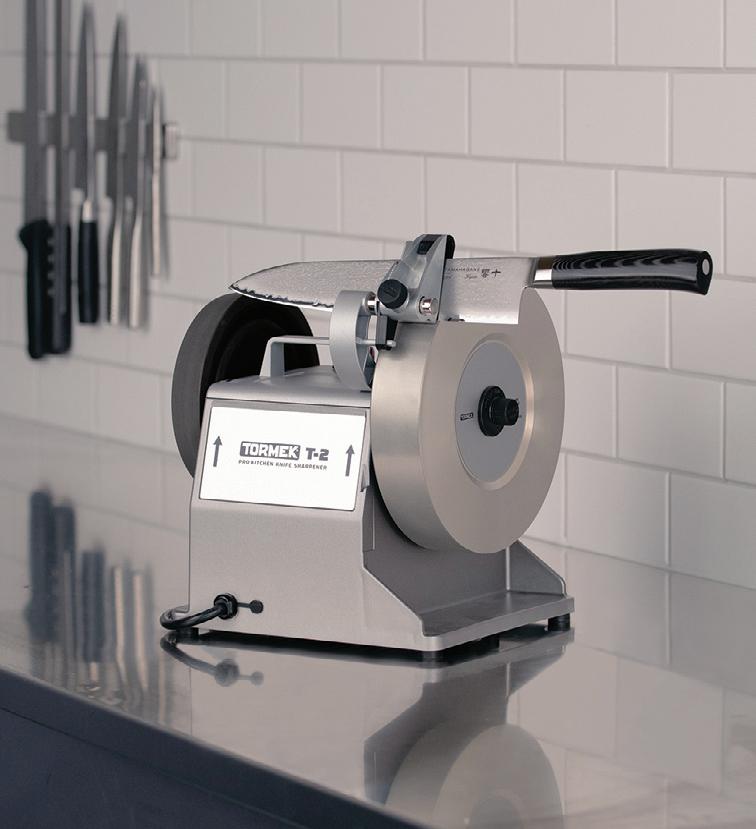
No matter the task, a properly sharpened knife is essential for efficiency and control. The Tormek T-2 doesn’t just sharpen knives — it elevates the entire kitchen workflow.
tormek.com
Phone: +46 581-147 90
Email: info@tormek.se
See the advert on page 7 for details.
Ever since its launch in 2010, LittlePod has been exporting its natural ingredients range to Germany.
So when it came to choosing a venue for a European book launch in May, Berlin proved to be the perfect place.
Written by Janet Sawyer MBE BEM – the company’s Managing Director and founder – Real Vanilla: Nature’s Unsung Hero tells The Rather Large Story of LittlePod.
Having introduced her latest book at an intimate event at Mansfield Park – home of ‘the best vegan cakes in Berlin’ and a long-time LittlePod customer – Janet is preparing for this summer’s UK launch event with a vanilla-themed dinner at Darts Farm’s award-winning restaurant in East Devon.
“LittlePod is a glocal company, doing business both at home and abroad,” said Janet.
“Having long exported our products, we have never lost touch with our friends in Europe and it was a great pleasure to take this book to Berlin. Having launched Real Vanilla: Nature’s Unsung Hero in Germany, we are delighted to be holding our UK
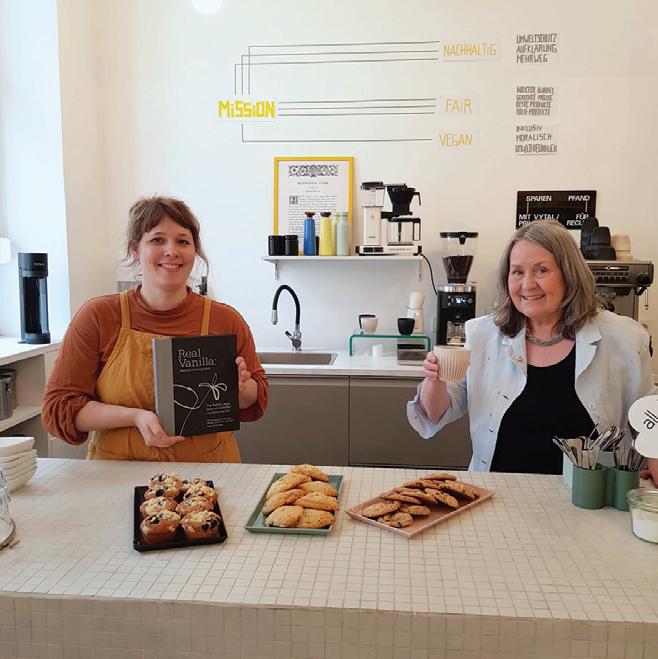
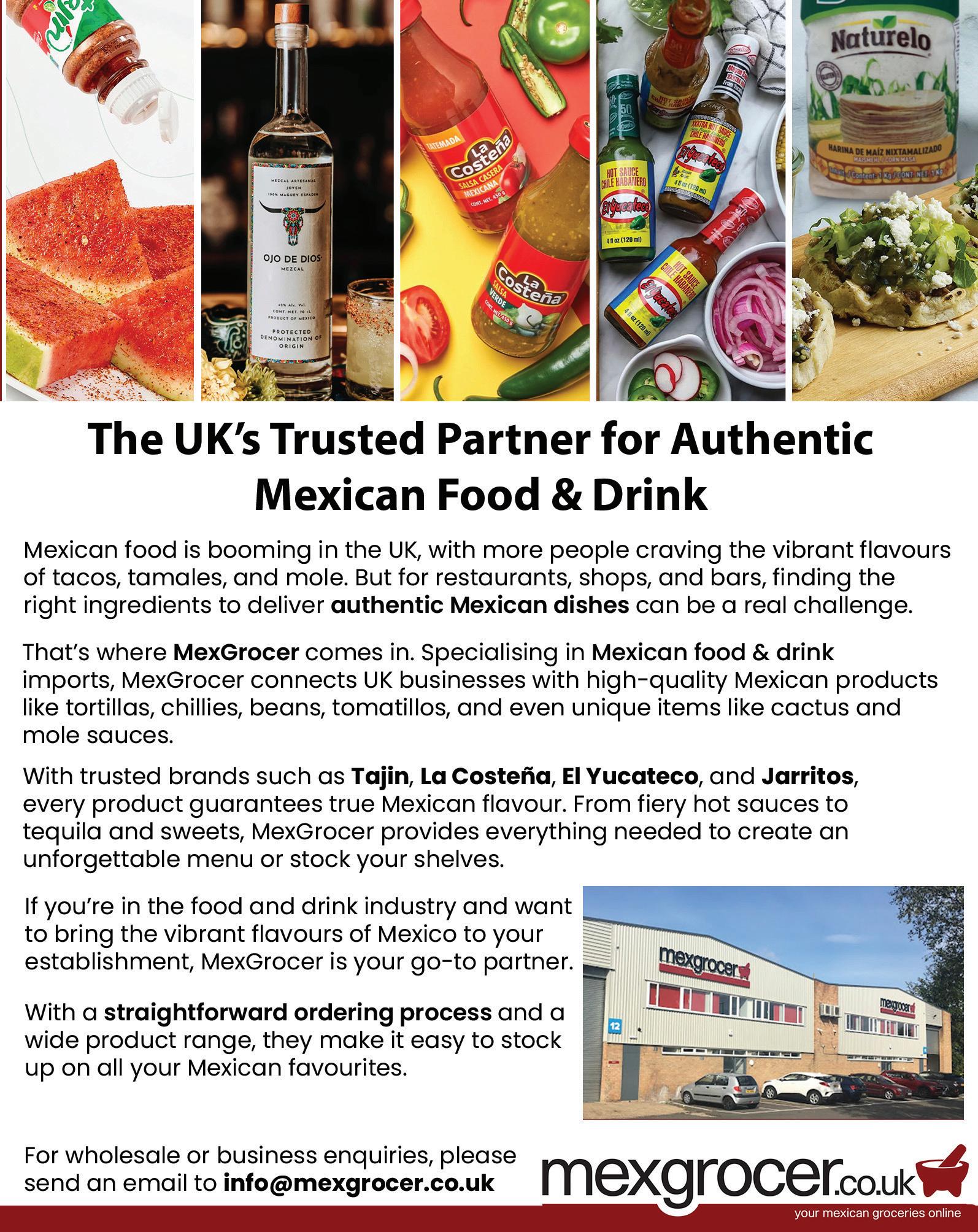
event on our doorstep here in Devon. The team at Darts Farm have always been fantastic advocates for our Campaign for Real Vanilla and this is the perfect place to launch a book telling The Rather Large Story of LittlePod.”
Published fifteen years after LittlePod first launched its innovative natural vanilla paste in a tube, used and loved by professional chefs all over the world, Janet’s second book is available from all good retailers this summer.
Having unveiled Real Vanilla: Nature’s Unsung Hero in Germany, Janet is preparing to launch her book in the UK at The Farm Table – named the Best Farm Restaurant 2025 at the recent Farm Restaurant Awards – on Wednesday, 2nd July. Including a delicious four-course vanilla-themed dinner prepared by head chef Tom Chivers using responsibly-sourced ingredients from the LittlePod range, tickets are on sale now. Limited availability, please visit https://www.dartsfarm.co.uk/events or email sales@littlepod.co.uk to find out more.
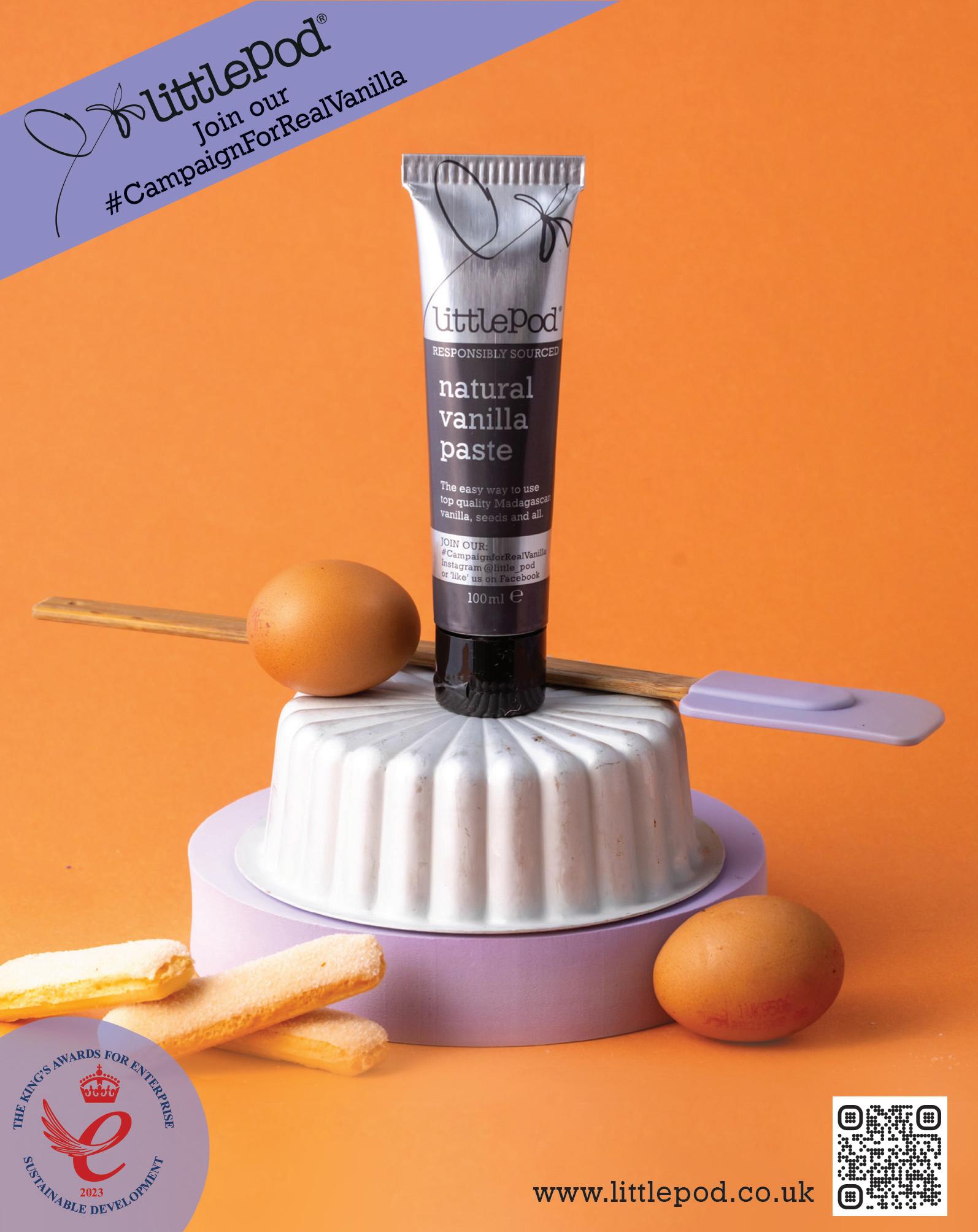
Are you looking for an affordable and yet effective way of increasing visitors into your business? Are you fed up watching the scores of high street shoppers walk past and not come in?
Let’s take a moment and put yourself in the shoes of a passerby. You’re walking down the street, heading home or to meet friends. You pass by a pub that you’ve never really noticed before. Outside the front door, there’s a pavement A-board with a blackboard surface. It reads: “National Fish & Chip Day! Two for £12 – today only.”
Suddenly, you’re hungry…
You didn’t plan to stop, but the message was clear, relevant and inviting! You weren’t thinking about food. But now, you’re interested. That’s the power of a simple blackboard on the pavement. It works in real time, catching the attention of people walking by, right when they’re open to being influenced.
There is still something very powerful about a message written on a chalkboard. It feels personal, immediate and real. Almost 8 in 10 high street consumers said they had entered a store they had never visited before purely based on the signage alone.
A-BOARDS: NO DEGREE NEEDED
The good news? You don’t need a marketing degree to use one effectively. No expensive agency. No fancy design skills. No high-tech equipment.
All you need is a blackboard A-board, a chalkpen and a clear idea of what you want to say.
Think of your A-board as a way of talking directly to your potential cus-
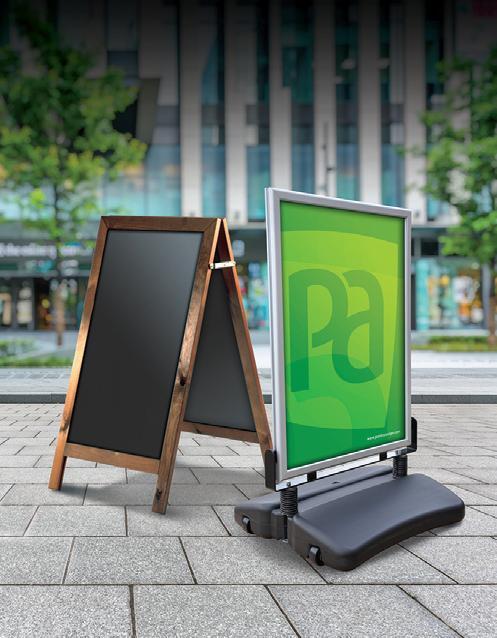
tomers. It sits quietly outside your business, working all day to bring people in. Over time, one A-board could attract hundreds – or even thousands – of people into your venue.
Before you start writing, take a moment to think. What do you want people to know?
Is there a special event happening? A limited time offer? A new dish on the menu? Are you showing live sports this weekend? Use your A-board to promote these occasions and tell people what you are doing.
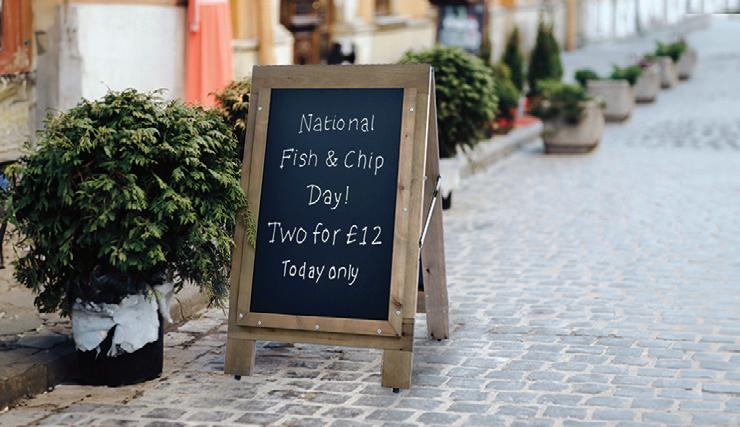
Make your message clear and relevant. Think about what would make someone stop and take a second look. A well-timed message can be just enough to tempt someone inside.
If you’re not sure how to write your message or worry that you’re not very artistic, don’t panic. You don’t need to be an expert. Just keep your design simple, bold, and easy to read.
Use liquid chalk markers instead of traditional chalk. They come in lots of colours and make your writing look clean and professional. These pens use a pump-action mechanism that feeds ink to the tip, giving you much better control.
Here’s a tip: lay your A-board flat on a table or the floor while you write. It’s easier to work with, helps prevent mistakes, and stops the ink from running. If you want to make your message look extra tidy, try using letter stencils. It gives your board a neat and uniform look.
BUILT TO LAST – DESIGNED TO SELL
At Majisign, we’ve designed and built our signature blackboard A-boards with pubs, cafés, and shops in mind.
Each board is made in our UK factory using responsibly sourced timber. We apply a specialist blackboard coating ourselves – one that’s been developed to last in all kinds of weather. It’s highly durable, easy to clean, and designed for regular use.
So, when the sun suddenly disappears and those inevitable British summer showers arrive, you can quickly change your message from “Beer Garden Open” to “Covered Beer Garden – Come In!”
Majisign A-boards are made for the real world. They’re tough, good-looking and made to work hard – every single day.
Compared to digital advertising, printed flyers or other marketing tools, a good-quality blackboard A-board is incredibly cost-effective. Once you’ve got it, there’s nothing more to buy – just update your message when needed and keep it clean.
It’s one of the simplest and smartest investments you can make. Need help choosing the right A-board for your business? Get in touch –we’re happy to advise. At Majisign, we’re here to help you stand out, one message at a time.
Try a Majisign Blackboard A-board and see the difference for yourself. See the advert on this page or www.majisign.co.uk for details.
Summer is finally here, it’s warm outside and the sun is shining, your beer garden looks lush and colourful, and your beer is ice cold. Your pub is the destination everyone needs; an opportunity to quench their thirsts and catch up with friends, meet up with family, or just have a pint with a colleague after a hard day at work.
But even better, you’ve just added a new menu with some great sharing platters and tapas dishes, which will help keep those punters there for a little bit longer and increase your turnover to boot!
Oh…and wait, you have a live band on Saturday night, a really good one, they play all the hits!
Problem is…how do you let people know? Put it on Facebook or Instagram…but are your customers following your socials? And what about new customers? What about the potential
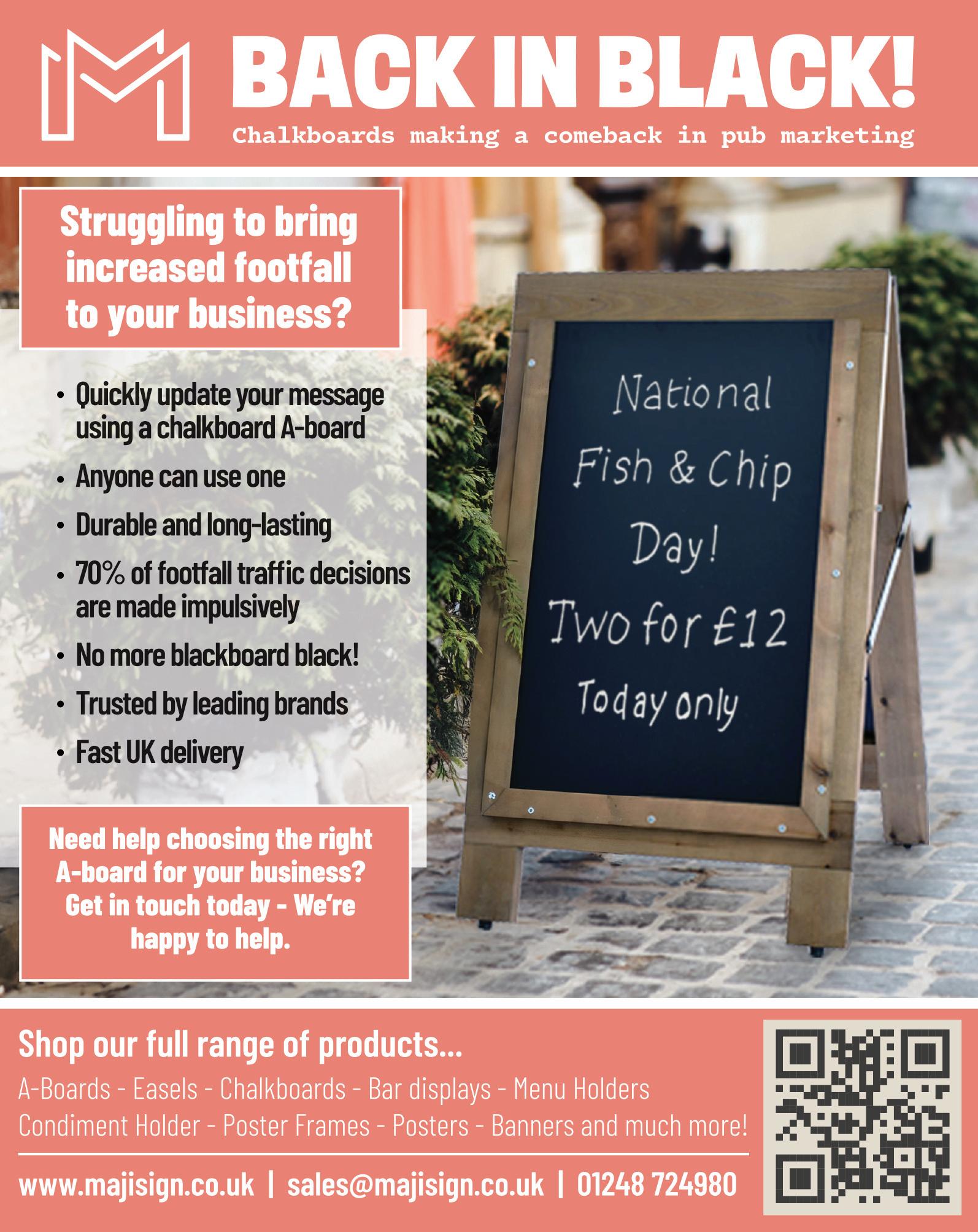
new customers that are right outside your pub now, busy with their shopping, heading home after work, mooching around town on a nice warm Saturday afternoon? How do you let those people know?
For those people - the ‘fancy a pint after work’ crowd, the afternoon retail therapists, the people gasping for a drink on a warm sunny day - you need an A-Board from Peerless-Assigns, specialists in supplying the hospitality industry for over 25 years.
We have a huge selection of A-Boards and Pavement Signs ranging from traditional chalkboard A-Boards to heavy duty Forecourt Signs with sturdy water-fillable bases. For outdoor advertising, Peerless-Assigns has got you covered.
We’re a friendly bunch, so give us a call on 01462 672 000, or check out our website at www.peerlessassigns.com
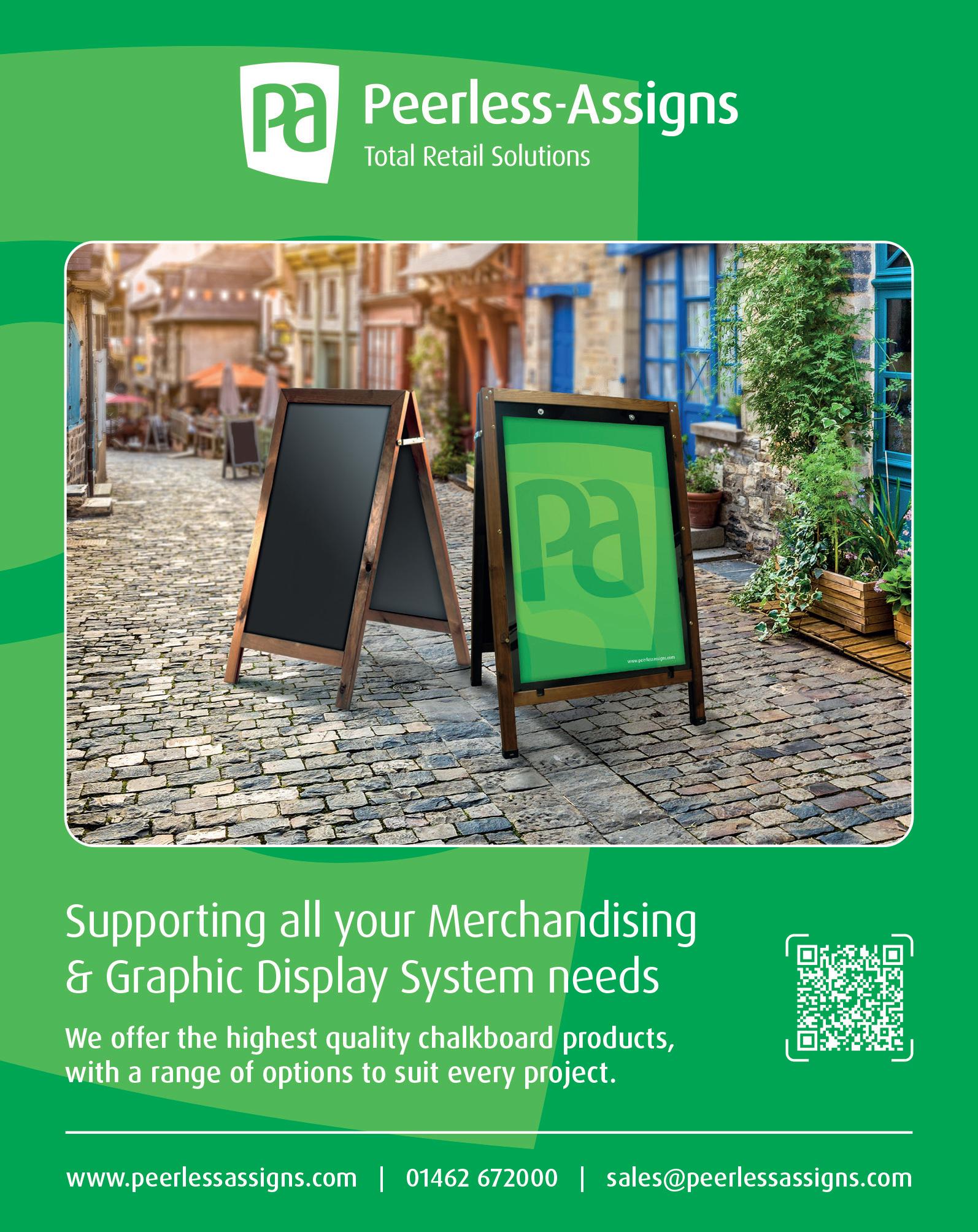
New research from eco-friendly toilet paper brand, Who Gives A Crap, reveals just how damaging a bad bathroom can be to hospitality businesses. More than three quarters (76%) of customers believe that toilet conditions reflect the overall hygiene standards of venues, and 61% would never return or recommend a venue due to bad toilet experiences.
To stop businesses flushing money down the loo, Who Gives A Crap has launched the “Loo-Print” - a practical 10 step guide for bathrooms, to boost businesses’ reputations, retain customers and get their (back-of) house in order. THE LOO PRINT
1. Clean it like you mean it: Regular cleans keep your bathrooms looking and smelling heavenly.
2. Restock regularly: Start a restock schedule for your loo roll, soap and towels.
3. Don’t leave them high and (not) dry: You can’t go wrong with eco-friendly paper towels, reusable cloth towels or energy-efficient dryers.
4. Show your loo some love: Upgrading your loo with modern fixtures, colourful tiles, fun signage or a cheeky mirror adds some ooh to your loo.
5. Room to move: Roomy cubicles and lots of mirrors are an easy way to win over customers.
6. Set the mood: Add low lighting, soft background music, and subtle scents with a diffuser or candle.
7. Treat their cheeks: You can tell a lot about a business by their loo roll. Customers love thick, soft and, of course, eco-conscious toilet paper (hint, hint).
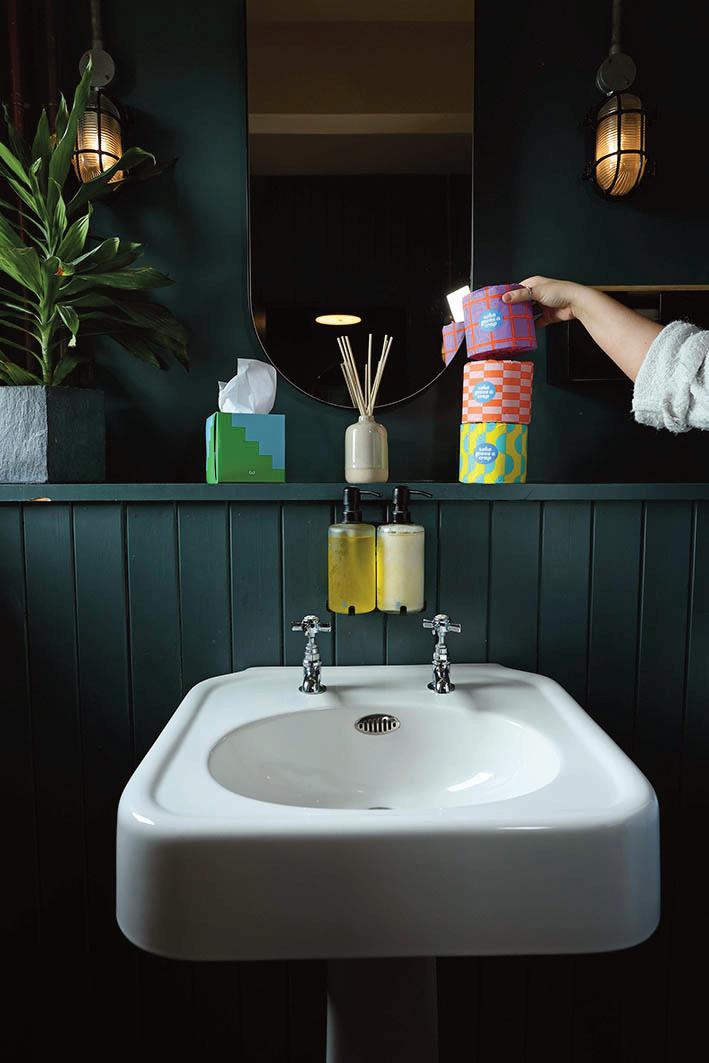
8. Not too hot, not too cold: Add some heating or ventilation to keep the temperature just right all year round.
9. Make accessibility a priority: Thoughtful touches like grab rails and lower sinks show your business values inclusivity and the comfort of every guest.
10. It’s the thought that counts: Consider providing some extras like hair dryers, free period products, emergency deodorant or tissues.
According to the research, when a venue’s bathroom is up to scratch, 71% of customers are more likely to return, with 67% more likely to recommend the place and 50% more inclined to leave a tip. Additionally, 43% of respondents claimed that a positive toilet experience shows the business cares about its customers.
David Titman, Marketing Director at Who Gives A Crap says “Our Loo-Print lays out the must-haves for hospitality spaces to ensure their bathrooms are fit for the best of Britain. Nothing ruins a great meal or drinks like stepping into a neglected bathroom. Businesses are losing bums on seats by overlooking this crucial touchpoint - and there’s a simple way that we can tackle this problem.”
Lovely loo experiences are grounded in Who Gives A Crap’s commitment to water, sanitation and hygiene (WASH). The business donates 50% of all of its profits to WASH causes.
Due to support from customers, over the years, Who Gives A Crap has been able to donate over £9m to WASH causes so far.
To join more than 1,800 other businesses using Who Gives A Crap, and find out how it can help your business, go to: https://uk.wholesale.whogivesacrap.org/

A spa hotel resort on Windermere is benefiting from a major renewable energy project with the addition of 385 photovoltaic solar panels to roofs across its site.
Low Wood Bay Resort & Spa has installed the solar panels on five buildings around its grounds, with each cluster facing south or south westerly to maximise sunshine hours and light exposure.
English Lakes Hotels Resorts & Venues has invested £195,000 in the project which is aligned with its ecotourism and sustainability commitments. The hotel group commissioned Kirkby Lonsdale based firm RJ Solar to instal the PV panels.
The new solar panels are expected to provide annual electricity generation of over 130,000 kwh. As well
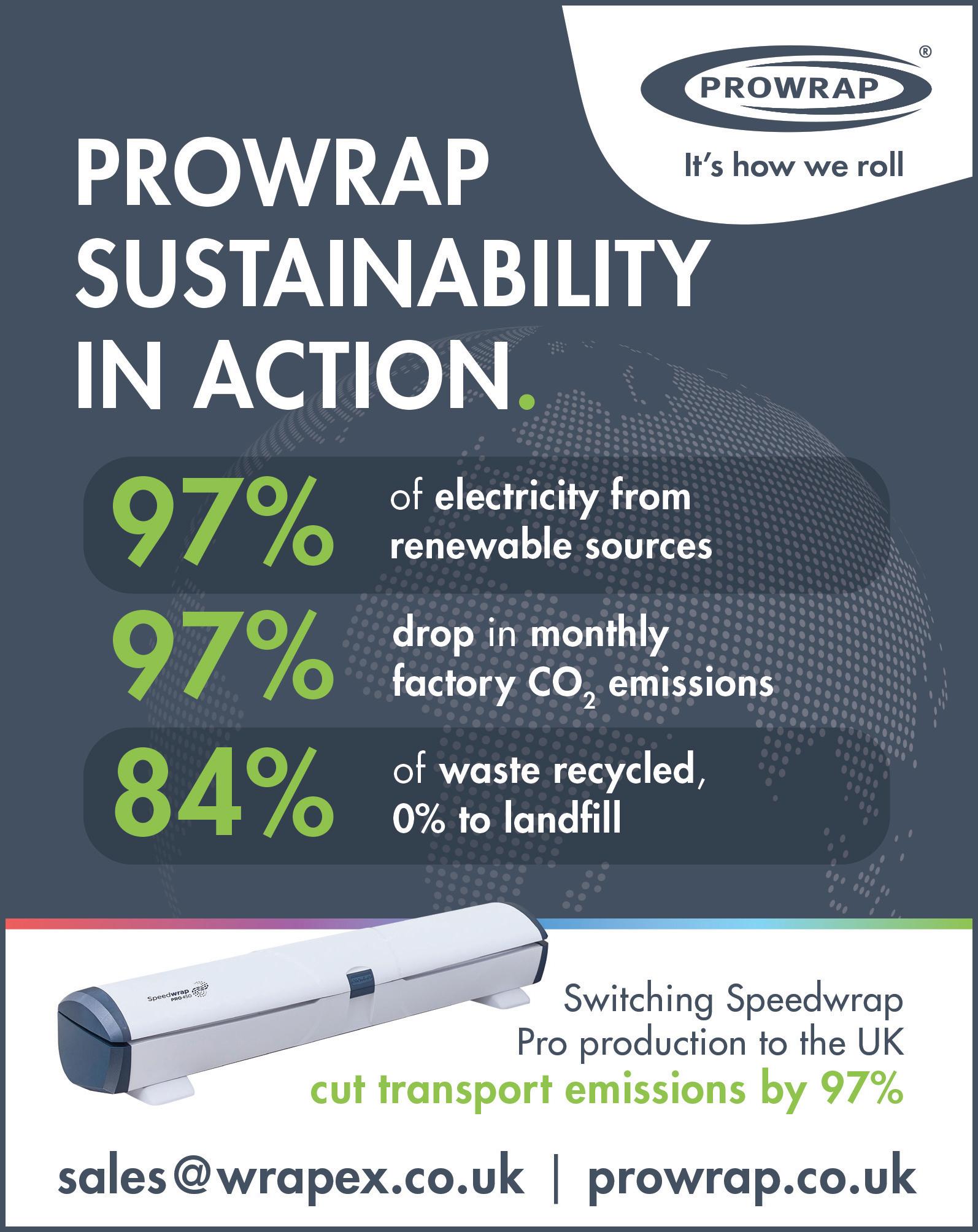
as contributing to environmental targets on carbon reduction, they will save the resort a significant amount of costs in energy consumption.
Low Wood Bay already generates around 12% of its own electricity from its hydropower water turbine fed from a fellside stream. It generated 209,269 kwh of the hotel’s green energy production in 2024, saving around £36,000 in operating costs.
English Lakes Hotels estates director Tim Berry says: “This is another major renewable energy project for the venue and, based on projected annual electricity bill savings, has the potential to have paid for itself within around six years. And the estimates provided indicate savings of over £1.3m over the lifetime of the PV solar panels.

“The environmental benefits are hugely significant too, with around 33 tons of CO2 emissions prevented each year. Over the PV system’s lifetime, that will equate to planting over 6,000 trees – or equivalent to saving on nearly a million kilometres of car journeys or 700 long haul flights.
“Our aim for future years is to be able to run the venue as close to ‘carbon neutral’ as possible, helping to protect the environment as well as significantly reducing our energy and operating costs. A continued drive for innovation will be crucial if we are to succeed, but projects such as these are proof that there is significant return on investment in renewables.”
Low Wood Bay Resort & Spa recently received the nationally recognised Greengage ECOsmart gold award. It is the leading certification system for hotels, hospitality and meeting venues which includes UN sustainable development goals into its benchmarking processes.
‘Kitchen waste’ probably conjures images of spoiled ingredients or leftover meal scraps – but when it comes to sustainability, these are not the only forms of waste that matter. Innovations like the Speedwrap Pro are at the cutting edge of catering sustainability, offering solutions that are smart for the kitchen and smart for the planet.

The Speedwrap Pro is a film, foil and parchment dispenser that uses refill rolls that do not require plastic adapters. These refill rolls are fully recyclable after use, meaning they add up to significant plastic savings over their lifespan. For example, the design can potentially save a large catering business 54kg of plastic over a year – enough to reach a height of 351m if the adapters were stacked on top of each other.
Further environmental benefits are gained through the Speedwrap Pro’s eco-smart construction. Manufactured at our UK facility, which now runs on 97% renewable energy, this innovation delivers high performance with low carbon emissions. Prowrap has partnered with a British injection-moulding company
to optimise production and move dispenser assembly in-house, which has reduced its CO2 emissions by 16,150kg per year – the same as planting 8,000 trees.
What’s more, Prowrap has launched a dispenser recycling scheme to tackle waste far beyond the lifespan of its product. This industry-first scheme sees Prowrap collect old or broken dispensers of any brand, which are recycled and used to create other dispensers and components across the Prowrap Group range. This keeps their materials in use and contributes to the circular economy.
Through the Speedwrap Pro, Prowrap is supporting businesses to think differently about their materials, supply chains and lifecycle impact. With smart design and a greener value chain, this innovation is helping professional kitchens do more with less – creating less waste for a healthier planet.
Visit www.prowrap.co.uk or see the advert on this page for details.


INTRODUCTION
As the UK continues its transition toward greener energy sources, businesses, including hotels, have started to explore renewable energy solutions to drive sustainability and reduce operational costs. Solar photovoltaic (PV) systems have emerged as one of the most effective and accessible options. Harnessing the power of the sun allows businesses to not only reduce their carbon footprint but also gain financial and reputational benefits. This document delves into the advantages of installing solar PV systems for hotels and other businesses operating in the UK.
ENVIRONMENTAL BENEFITS
Reducing Carbon Emissions
One of the most significant advantages of solar PV is its ability to help hotels and businesses reduce their carbon emissions. By generating clean and renewable electricity, solar PV systems replace the need for energy derived from fossil fuels, which are major contributors to greenhouse gases. This transition aligns with the UK government’s netzero emissions target by 2050, offering businesses a chance to contribute actively to the fight against climate change.
Supporting Sustainability Goals
Modern consumers are increasingly demanding environmentally responsible practices from businesses. Hotels, in particular, are under pressure to showcase their commitment to sustainability. Installing solar PV systems demonstrates proactive environmental responsibility, enhancing a business’s green credentials and appealing to ecoconscious customers.
Reducing Energy Costs
Solar PV systems provide a tangible mechanism for reducing energy costs. The electricity generated can significantly offset a business’s reliance on the grid, especially during peak daytime hours when solar generation is at its highest. For hotels, which often operate 24/7, this can lead to substantial savings on utility bills, freeing up capital for other operational needs.
protection against price volatility offers financial predictability, which is invaluable for long-term planning.
Government Incentives and Support
The UK government offers various incentives to businesses installing solar PV systems, such as tax benefits under the Enhanced Capital Allowance (ECA) scheme and opportunities under the Smart Export Guarantee (SEG). With SEG, businesses can earn payments for surplus electricity fed back into the grid, further improving the return on investment.
Energy Independence
For hotels and other businesses, energy independence is critical, especially during periods of grid instability or outages. Solar PV systems ensure a steady and reliable power supply, safeguarding operations and minimising disruptions. Hybrid solutions, when paired with battery storage, make this independence even more robust.
Low Maintenance and Longevity
Solar PV systems are known for their durability and low maintenance requirements. Once installed, they require minimal upkeep, and warranties often cover them for 20-25 years or more. This longevity ensures a consistent return on investment over decades, making them an attractive choice for businesses looking for stable, long-term solutions.

Protection Against Rising Energy Prices
Energy costs in the UK have been rising steadily, creating financial strain for many businesses. Solar PV systems allow businesses to lock in cheaper energy costs by reducing dependence on traditional power sources. This
Attracting Eco-Conscious Customers
In the hospitality sector, customers are increasingly choosing accommodation providers that prioritise sustainability. Hotels with visible solar panels and commitments to green energy practices stand out as environmentally responsible choices. For other businesses, being associated with renewable energy enhances corporate social responsibility (CSR) profiles and fosters customer loyalty.
Enhanced Brand Image
Adopting solar energy sends a powerful message to stakeholders, partners, and consumers. It exemplifies innovation, forward-thinking, and a commitment to environmental stewardship, all of which contribute positively to a business’s brand image. This advantage is


particularly valuable in competitive markets where differentiation is key.
PRACTICAL CONSIDERATIONS
Space Utilisation
Hotels and businesses often have unused rooftop space, which is ideal for solar PV installations. Rooftop solar panels utilise existing infrastructure, maximising energy generation without compromising valuable ground space.

Solar PV systems are highly scalable, making them suitable for businesses of all sizes. For large hotels, extensive solar installations can supply a significant proportion of energy needs. Smaller businesses can start with modest systems and expand them as operations grow.
Mitigation of Seasonal Variations
Though solar generation fluctuates with seasons, pairing solar PV systems with battery storage ensures energy availability even during cloudy days or at night. This makes solar energy a reliable option throughout the year.
For hotels and businesses in the UK, installing solar PV systems offers a wealth of benefits that extend across financial, operational, and environmental realms. From reducing energy costs and achieving sustainability goals to enhancing brand reputation and ensuring energy independence, solar PV is a forward-thinking investment that pays dividends in multiple ways. As the world moves toward greener solutions and consumers grow more ecoconscious, solar PV systems represent an opportunity for businesses to step into the future with confidence.
Whether you're managing a bustling hotel chain or a small local business, the adoption of solar PV systems is a leap toward sustainable growth, operational efficiency, and a greener tomorrow.

As cyber threats rise in hospitality, cyber resilience is now crucial for pubs, hotels and restaurants. Steve Burden, Director of Connectivity & Cyber Security at Wavenet (www.wavenet.co.u), explains why the industry is a growing target and talks through the steps venues can take to protect bookings, payments, guest data and Wi-Fi.
In hospitality venues, the tills can’t stop, the booking systems can’t break and the guest Wi-Fi must always work. Yet, many pubs, hotels and restaurants are now operating under a silent but growing threat: cyber attacks. With high-profile breaches making headlines and ransomware incidents on the rise, cyber resilience has shifted from a ‘nice to have’ to a non-negotiable.
A UK government survey into cyber security breaches found that food and hospitality businesses have traditionally placed less emphasis on cyber risk than other sectors . That’s starting to change. The global industry’s cyber risk score rose sharply from 7.4 in 2023 to a full 10.0 in the first half of 2024 , signalling growing threat levels. As a result, focus is increasing, with 72% of food and hospitality firms now viewing cyber security as a high priority – nearly in line with the UK average of 75% .
However, significant gaps remain. Just 22% of businesses in the sector have a board member responsible for cyber security – one of the lowest rates across all UK industries . With attacks rising and data breaches carrying both reputational and financial consequences, these are red flags the industry can no longer afford to ignore.
Cybercriminals see hospitality as a goldmine. The industry handles large volumes of personal and financial data, including guest names, email address, payment details and loyalty accounts. And it shows: the Hospitality Sector Threat Landscape report revealed that 31% of hospitality businesses globally have experienced a data breach, and 89% were hit more than once in a year. The average cost of a breach? A staggering $3.4 million (or £2.5 million) .
But it’s not just about the money. When IHG was attacked in 2022, operations were paralysed, bookings were lost and brand trust took a hit. The recent Motel One breach saw 24 million files stolen, including sensitive guest information and payment data.
It begs the question: what makes the sector so vulnerable? The hospitality industry is uniquely exposed. Multiple points of entry, such as reservation platforms, payment terminals, third-party vendors and guest Wi-Fi create an attack surface that’s hard to defend.
Phishing and malware delivered by email remain the most persistent and damaging threats to hospitality venues. In just one quarter of 2024, over 932,000 phishing attacks were recorded across the sector, but the tactics are getting more sophisticated. Social engineering, in particular, exploits the natural customer service mindset of hospitality staff, tricking well-meaning employees into clicking links, disclosing credentials or

installing malicious software.
The good news is that an in-house IT department isn’t needed to significantly improve your cyber security posture.
First and foremost, training your staff is one of the most effective defences. Regular sessions help create a culture of awareness and caution, and staff should feel confident to double check when something doesn’t seem right. This lack of preparation has consequences: by 2025, Roiback has found that 99% of hotel breaches are expected to result from basic misconfigurations or end-user error.
Backups are another essential safeguard. It’s not enough to back up your booking data, payment systems and POS configurations, but these backups need to be tested to ensure that they can be restored. Ideally, copies need to be both onsite and in the cloud, with test recoveries every quarter to ensure you're covered when it counts.
With that, device protection is critical too. Every laptop, POS terminal, tablet and smartphone should have endpoint protection installed, and guest Wi-Fi should always be segmented from internal systems to limit the damage if a breach does occur.
Controlling access within your systems can also make a big difference. Each staff member should have their own login credentials – shared passwords absolutely need to be a thing of the past – and access should be granted only to the data and systems they need for their role, with logins deactivated as soon as someone leaves the business.
Even without a round-the-clock IT team, basic monitoring can help detect suspicious behaviour early. Regularly reviewing access logs, setting up alerts and using simple monitoring tools can provide vital visibility.
IT’S ABOUT MORE THAN IT
The hospitality sector thrives on reputation, reliability and guest experience. When systems go down, bookings disappear or guest data is compromised, the impact goes far beyond the IT department; customer trust and business viability is damaged as a result.
With cyber threats showing no signs of slowing, now is the time for hospitality businesses to prioritise resilience. Whether you’re managing one venue or a national chain, Wavenet’s experts can help assess your digital risks, secure your systems and support your compliance journey.
In a year when National Insurance increased, bringing more financial headaches for hospitality businesses, there is finally some good news on the horizon. A new social media platform, Me Attend, intends to turn the fortunes of leisure time businesses around by offering new and innovative ways to connect them with customers looking for a great day or night out.
Me Attend is a business web portal and social media app, and was created over five years by tech entrepreneur Tyrone Reid. What makes Me Attend groundbreaking is that it eliminates the most persistent pain point of socialising - wasted evenings not knowing where to go or when to go there. Me Attend subscribers - your customers - will reclaim both their time and money through use of the app’s intelligence and live time updates.


ing their entire day or night out. And businesses can take back control of their marketing by having a presence on a social media platform designed purely to showcase the best events, venues and foodie destinations for those key leisure moments.
Catering, leisure and hospitality sector businesses can reach this new customer base by signing up to the business web portal on Me Attend, and benefit from Me Attend’s distinctive marketing - only available via the app. Me Attend shows new and potential visitors comments, reviews, pictures, videos and even live streams from your premises – and each business can make a stream of revenue from this, that can grow week on week.
The benefits are simple but revolutionary: app users never have to waste another night out. They make
As Tyrone Reid, Me Attend’s Founder, puts it; “Me Attend is going to be revolutionary for the leisure and hospitality industry. I honestly think we can change the way businesses and customers engage, and do this in a way that will increase business revenue and make everyone involved happier too. A win-win all round.” Me Attend is free to all customers to download and use, though businesses will have to register and subscribe to join the app.

A special introductory rate for CLH readers that sign up before 31 August 2025 is now available. To find out more please email sales@meattend.com or visit www.meattend.com/signup

By Joanne Gilliard, CEO of Jangro
(https://www.jangro.net/)

Hygiene is non-negotiable in hospitality, from protecting guest health to shaping first impressions and maintaining customer trust and loyalty. Joanne Gilliard, CEO of Jangro, the UK and Ireland’s largest network of independent janitorial distributors, shares forward-thinking best practices to help venues lead with hygiene.
It’s often said - half in jest but rooted in truth - that you can judge a place by the cleanliness of its bathrooms. Nowhere is this truer than in hospitality. Hygiene and cleanliness isn’t optional and it isn’t just about how a place appears, it’s a foundational pillar of public health, safety, trust and long-term profitability. CONSISTENCY IS KEY
In hospitality, hygiene depends not just on having the right products but on using them correctly and consistently. Disinfectants must stay on surfaces for the recommended time to be effective, especially on high-touch areas like door handles, lift buttons and payment terminals.
In kitchens, correct cleaner use and frequent handwashing protect food safety. Front-of-house, low-scent, streak-free products keep spaces clean and guest-friendly. In allergen-sensitive spaces, fragrance-free products help ensure guest safety and comfort.
With the right approach, hygiene contributes to a more seamless, professional and trusted environment.
More than ever, hygiene is a key part of sustainability strategy. It can be used to drive progress against ESG goals, reduce waste and build brand credibility. Many operators are now embracing closed-loop cleaning systems to minimise chemical and water usage, switching to recyclable or refillable packaging, and publishing hygiene and sustainability policies. In a sector where guests and clients are increasingly making values-based decisions, this kind of visible leadership sets venues apart.
Beyond cleaning, guest-facing hygiene measures are essential. Installing hand sanitiser stations at entry points, dining areas and communal spaces reinforces a culture of cleanliness, while maintaining well-stocked soap dispensers in all bathrooms and kitchens for staff ensures basic hygiene.
Post-pandemic, guest expectations are higher than ever. Initial Hygiene’s Global Reset Report, conducted after the COVID-19 pandemic, found that 74% of people are now more concerned about how others' poor hand hygiene could impact their health than they were before the pandemic.
The smartest operators are responding by incorporating touch-free technology, like sensor-activated taps and automatic soap dispensers, to help reduce shared surface contact and lower the risk of contamination. These features don’t just reduce risk and help create a safer, more reassuring
The Dose Easy cleaning concept from Zep introduces the Dose Easy cap, delivering a 20ml dose with each tilt of the bottle, controlling chemical usage and helping your team to optimise cleaning results, whilst you start saving immediately. Dose Easy can also be dispensed via traditional wall mounted dosing systems as well. The high-concentrate Dose Easy products from Zep UK require a low dosage, with maximum results, at an extremely low cost per use, be they dispensed manually or through the dosing system.
environment for both guests and staff, they also build trust – and trust drives bookings.
While product use and implementation are important, maintaining high hygiene standards begins with well-informed and engaged staff. Regular training sessions should go beyond basic protocols, explaining the why behind each hygiene measure so staff understand their role in protecting themselves, their colleagues and customers.
Clear staff training is vital - covering dilution ratios, storage and safe use. Misuse can reduce effectiveness and pose health risks. Visual aids, colourcoded zones and clear labelling help ensure the right products are used in the right places.
Interactive workshops and real-time demonstrations also boost retention and encourage compliance. Recognising and rewarding good hygiene practices reinforces their importance. By involving staff in developing and refining procedures, businesses can foster a culture of accountability and pride in maintaining a clean, safe environment.
MAINTAINING HIGH STANDARDS
In hospitality, hygiene isn’t a background task, it’s a core pillar of guest experience, safety and business success. From selecting the right products to training staff and embracing touch-free innovations, every detail counts. By prioritising spotless standards, hospitality venues not only protect health but also build trust and lasting loyalty with guests.
and dishwashing with simple-to-use, differentiated products in distinct pack colours and a clear numbering system.

Dose Easy concentrated cleaning products offer optimum economic usage via compact packaging, thereby reducing transportation and storage; ensuring lower CO2 impact and less waste. The comprehensive range delivers a solution for all your institutional cleaning needs, throughout kitchens, bathrooms, washrooms and other public areas.
The Dose Easy range spans disinfectant, sanitary ware cleaning, floor cleaning, glass, multi-surface, bathroom
The Dose Easy Cap offers smaller sites, a compact range of cleaning consumables that are easily stored, without the need for bulky dispensing equipment. However, for the larger facility, Zep can offer a range of controlled dosing systems which connect simply with your water supply and help manage your consumable usage levels, and so, consistently control your costs, even with larger cleaning teams. The Dose Easy cap and the Dose Easy wall mounted systems are easy to operate for staff, consigning overdosing and method errors with cleaning chemicals to be a thing of the past.
To see the Dose Easy range, follow the link: https://zep.co.uk/product/search.asp?P=dose or send Zep UK an email to info@zep.co.uk or call 0151 422 1000 to speak with a local representative.


As the busy holiday season fast approaches, UK hoteliers, holiday let owners, and B&B operators are being urged to prioritise Legionella risk control as part of their summer readiness plans – following reports that UK cases have reached an all-time high.
Legionnaires’ disease is a potentially fatal lung infection caused by inhaling droplets of water containing Legionella bacteria. It can be found in a range of man-made water systems including taps, showers, air conditioning units, spa pools and hot tubs.
In the most recent government statistics, there were 604 cases of Legionnaires’ disease reported in 2023 across England and Wales – the highest annual figure seen in the UK to date and significantly higher than the 488 reported in 2017.
Legionella, the bacteria that causes Legionnaires’ disease, thrives in stagnant water, particularly in temperatures between 20°C and 45°C – common in unused or little-used water systems. The risk is particularly high in hotels, B&Bs and holiday lets that may have been vacant or experienced intermittent use during off-season. According to statistics, global hotel inoccupancy rates were as high as 32% in May 2024.2
With this, Hydrosense, the UK’s leading authority in rapid Legionella testing technology, is urging the sector to pay due diligence to increasing Legionella risk – especially the effects of dormant water systems – as an absolute safety priority in preparing for peak season.
“As bookings ramp up for the busy summer season, it’s crucial that hoteliers, holiday let owners and the like don’t overlook the importance of ensuring a robust approach to water safety,” said Greg Rankin, CEO at Hydrosense. “Legionella bacteria can build up quickly in

Hygiene should be a top priority for all businesses, especially those that regularly host and feed the public. But in many cases, and particularly for larger hospitality settings, achieving good hygiene efficiently can seem like a struggle. Settings can have many washrooms, and multiple systems can be difficult to maintain. For restaurant owners, it may not be apparent that hygiene maintenance and stocking of hygiene products throughout the facility can often be as complex as food operations, and equally as important to maintain. Without the appropriate protocols in place, catering settings run the risk of reputational damage and fines. It is, therefore, crucial for operators to invest in the most up-to-date systems to maintain and attract customers and boost environmental credentials.
EFFICIENT HYGIENE, FOR BETTER BUSINESS
Clean front-of-house and washroom facilities should be a top priority to encourage repeat visits and maintain guest satisfaction. But in many cases, the number of washrooms in a facility can pose a challenge, so it’s no surprise 71% of cleaners wish their washrooms were easier to restock1
The key here is to reduce the refill frequency. By using solutions such as the Tork Xpress® Multifold Hand Towel System, caterers can free up staff time and improve the guest experience. In fact, the system means you can serve twice the number of guests before needing to refill.2
In a busy catering environment, staff often must perform various roles, such as taking orders, serving food
stagnant or underused systems, especially during warmer months – creating the perfect conditions for bacteria to grow. Taking action now – flushing systems, checking temperatures, carrying out risk assessments to incorporate rapid Legionella testing, can make a big difference in keeping guests safe and properties compliant.”
Under UK health and safety law, all property owners and duty holders are responsible for identifying and controlling the risk of exposure to Legionella including hoteliers, B&Bs, holiday let owners and managers.
Along with regular maintenance, frequent flushing, and risk assessments, Hydrosense asserts there is also a clear case to incorporate regular rapid Legionella testing – which can detect Legionella in just 25 minutes – as part of any water safety regime.“The reality is that Legionella cases in the UK are rising at unprecedented rates. As with most health risks, prevention is far easier – and far less costly – than dealing with an outbreak and becoming another statistic. Incorporating rapid Legionella testing into their peak season preparations empowers hospitality operators to minimise potential exposure, gain peace of mind, and preserve their reputation with every stay."
Unlike conventional culture-based methods which can take days, modern rapid Legionella testing solutions can deliver results within minutes. With real-time data to assess contamination levels, users are able to implement corrective measures quickly should a risk arise, ensure compliance with health and safety regulations and provide peace of mind for the customer - especially in high-turnover environments like hotels, B&Bs, and holiday lets.
For further information please visit: https://hydrosense-legionella.com/
and drinks, and welcoming guests. As a result, cleaning can fall down the priority list for many as staff struggle to juggle tasks and instead, understandably, prioritise customer-facing requests. Ensuring your facility has the efficient cleaning systems in operation allows staff to target their cleaning efforts to areas that matter, freeing up time to do what they do best: provide a welcoming and warm environment to guests.
To help educate restaurateurs on improving cleaning practices, Tork Workflow™ for Restaurants is an expert consultation designed to reduce interruptions, increase efficiency and maintain a hygienic environment across all aspects of a restaurant’s operation. In fact, over three-quarters of kitchen staff would be happier if their workplace were more organised.3 Training staff on the most up-to-date cleaning practices is one of the most important responsibilities for a manager, to ensure everyone takes responsibility for hygiene.
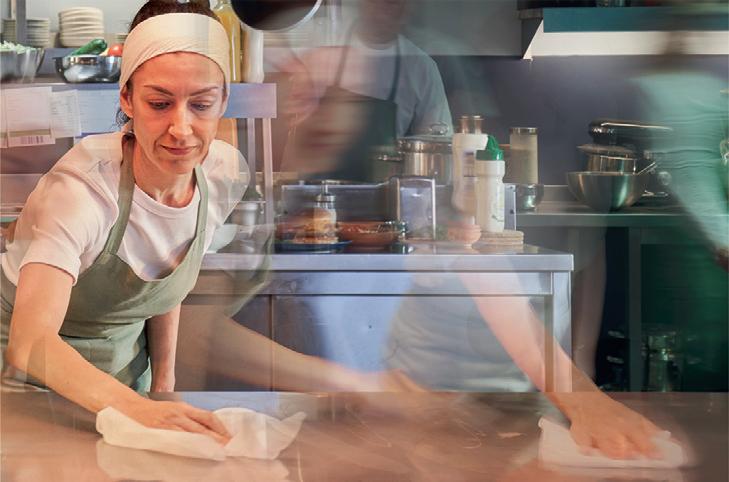
Prioritising hygiene isn't just about cleanliness—it's about protecting your business, your staff, and your customers. By investing in efficient systems and smart workflows, hospitality businesses can create safer, more welcoming environments that keep guests coming back.
torkglobal.com/gb/en/foodservice
1
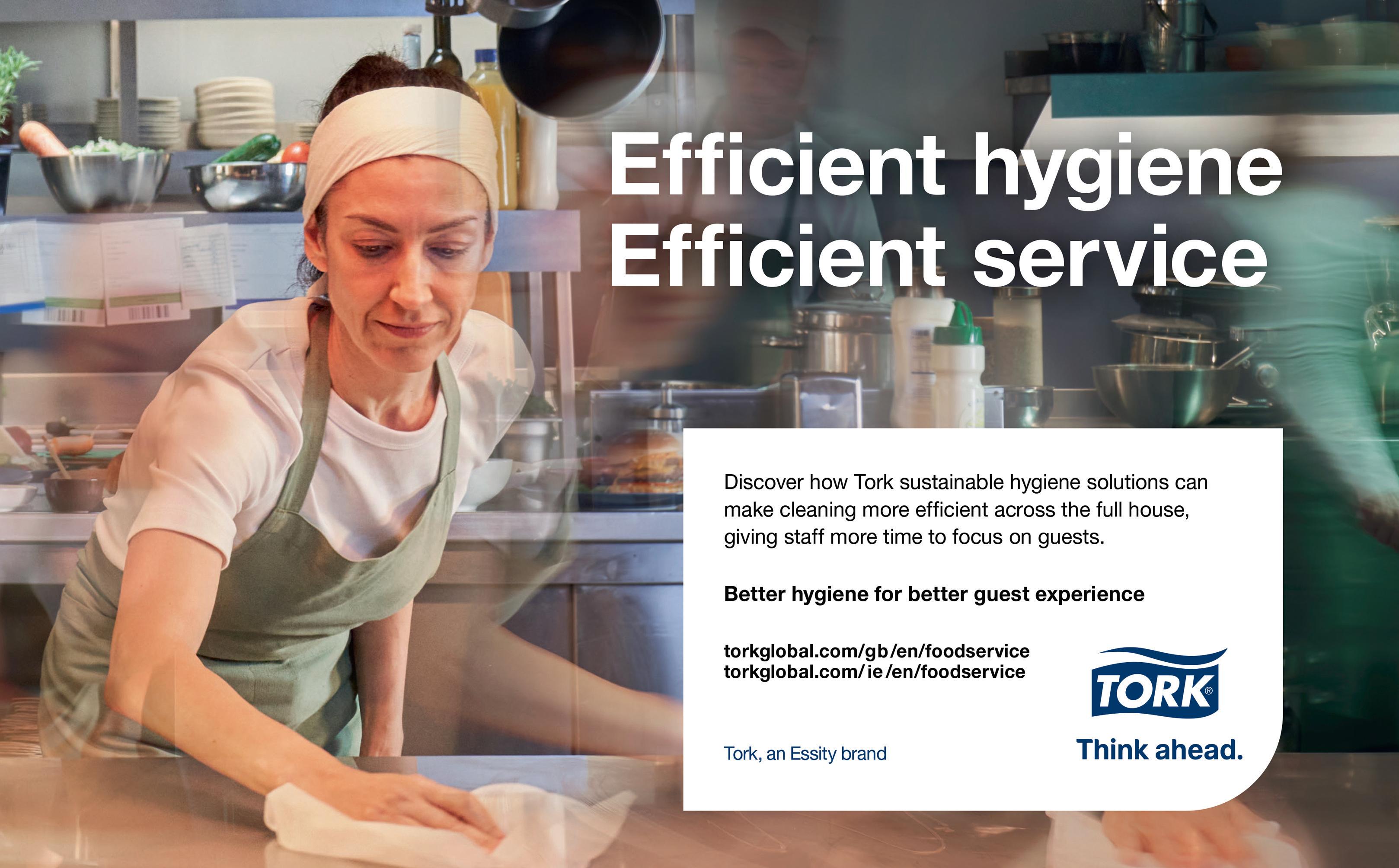
In today’s hospitality landscape, first impressions count. Guests expect visible cleanliness, quick turnarounds, and seamless service. For front-of-house teams, traditional spray-and-cloth methods just can’t keep up. That’s why many are switching to ready-touse sanitising wipes, and not looking back.
Reusable cloths, even when laundered regularly, can harbour bacteria and spread germs. During busy service, it’s easy to lose track of what’s been sanitised. Ready-touse wipes remove that uncertainty. Each one is fresh, pre-dosed with the right amount of solution, and disposed of after use, minimising cross-contamination and boosting hygiene confidence.
They also save time. Whether you're resetting tables, wiping menus, or cleaning card machines, wipes are faster and more convenient. No need to juggle bottles and cloths, just grab, wipe, and go. It’s efficient, consistent, and ideal for high-pressure environments.
Introducing Sani Professional – The No.1 Foodservice Wipe Brand

And when it comes to sustainability, there’s no need to compromise. Innovations like Protect 360° biodegradable sanitising wipes are 100% plastic-free, plant-based, and packaged in recyclable materials, helping venues stay green while staying clean.
“These wipes are thicker, more effective, and even gentle on my
No
no irritation, and perfect for quick cleans during events when time’s
Debbi Scobell, Hospitality & Events Coordinator at Forest Green Rovers, the greenest football club in the world.
In a sector where hygiene and perception go hand in hand, ready-to-use wipes help teams deliver visible, effective cleaning, quickly and responsibly.
Request your FREE samples today!
�� samples@sanipro-intl.com

PDI EMEA Ltd
A: Pywell Road, Willowbrook East Industrial Estate, Corby NN17 5XJ, UK
T: +44 (0) 8081 697 945
�� pdi-intl.com
�� hello@sanipro-intl.com

Rotowash machines are among the most robust and efficient floor cleaners available in the UK. Designed to handle all flooring types, they vastly outperform traditional rotary machines. Their patented brush system reaches deep into uneven surfaces like grouted tiles, studded rubber, matting, and even escalator steps, while also excelling on flat floors such as vinyl, wood, and terrazzo. On carpets, they clean, lift the pile, and leave the surface dry in minutes.
Health and safety is central to our approach. We provide free training to all operators for the machine’s lifetime to ensure safe and effective use, protecting both users and the machine’s longevity. Our SafeContractor SSIP accreditation reflects our commitment to high safety standards.
Rotowash machines are also extremely environmentally conscious, using up to
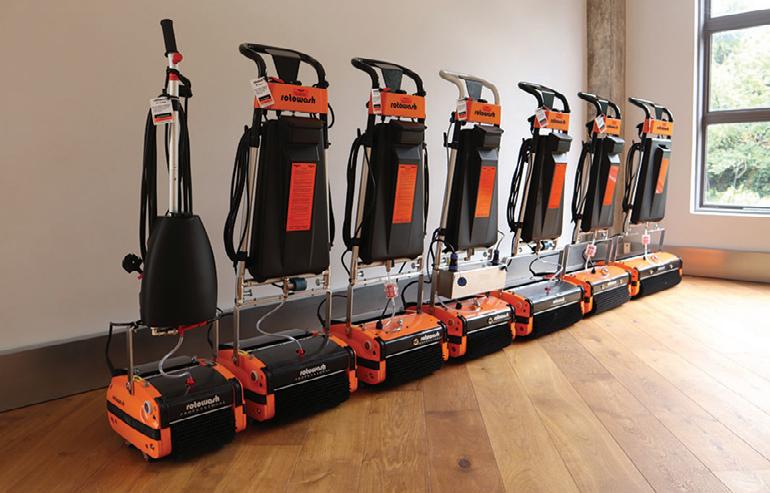
90% less water and chemicals than conventional alternatives making them a sustainable choice for any business.
Our customer relationship doesn’t end at the point of sale. Through our dedicated service department and nationwide team of engineers, we offer a Preventative Maintenance Agreement (PMA) that includes planned service visits every five months and covers callouts and labour for emergency repairs.
Looking ahead, we have undergone a recent digital transformation, adopting online purchasing and smart innovative online tools including an interactive savings calculator to help businesses to make more informed, cost-effective decisions. For further information visit www.rotowash.com or see the advert below.


A badly poured pint can ruin a customer’s experience. It creates unnecessary waste and costs you in revenue. There is a way to avoid it, says Avani Solutions.
Imagine the scene a warm summers day, not a cloud in sight. You’re enjoying a stroll and come across a pictureperfect pub, - a pint beckons!
You arrive at the bar ready for that thirst-quenching mouthful. Except it’s poured a little haphazardly, nozzle in the liquid, beer sloshing over the top and spilling down the sides, - the head, lost in the drip tray. A flat pint is thumped on the bar, with the barperson’s hand gripped tightly right at the point you would sip from. The pint isn’t served in branded glassware, in fact you are not even sure if its clean. Suddenly, your excitement is gone, the experience 100% ruined.
On the other side of the bar is a bartender, not in the job very long and covering for the summer. They know the basics and feel they’re delivering as they should. They know no better.
The manager, who does know better, is out the back oblivious to what has just occurred because they are in the cellar attending to a delivery.
The consequences look like this…
Adams Gas are specialist bottled gas distributors and suppliers based in Kent. We have been distributing bottled gas throughout the UK via our large stockist network, for over 25 years.
We offer a local delivery service for bottled gas in Kent, East Sussex and South London.

Adams Gas can offer a cost-effective beer and cellar gas solutions for all small, medium and large businesses looking for a better bottled beer, pub and cellar gas services.
With our own cylinders filled at our own filling depot, you can count on us as gas suppliers to offer the right service, at the right price, when you need it. We can also offer this product on a re-seller basis to breweries, beer wholesalers and shipping companies throughout the UK.
We also Supply:
• Food Grade Co2 gas cylinders for Coca-Cola Frozen, Fanta Frozen, Tango Ice Blast, and Slushy Jack’s frozen drinks machines
• CO2 for Glass Frosting. Food grade liquid Co2 for instantly cooling glasses Simply attach your machine to our cylinder for fast effective delivery of food grade Co2 strait into your glass!
Adams Gas have been proud bottled gas suppliers to the UK for over two decades. We endeavour to provide our customers with premium quality gas to best suit their requirements.
You can discuss your queries with us by phone on 01843 220 596 or free phone 0800 195 4445 Alternatively, you can send an email to sales@adamsgas.co.uk or simply fill out and submit our online contact form and a member of our team will be in touch as soon as possible. We look forward to hearing from you.
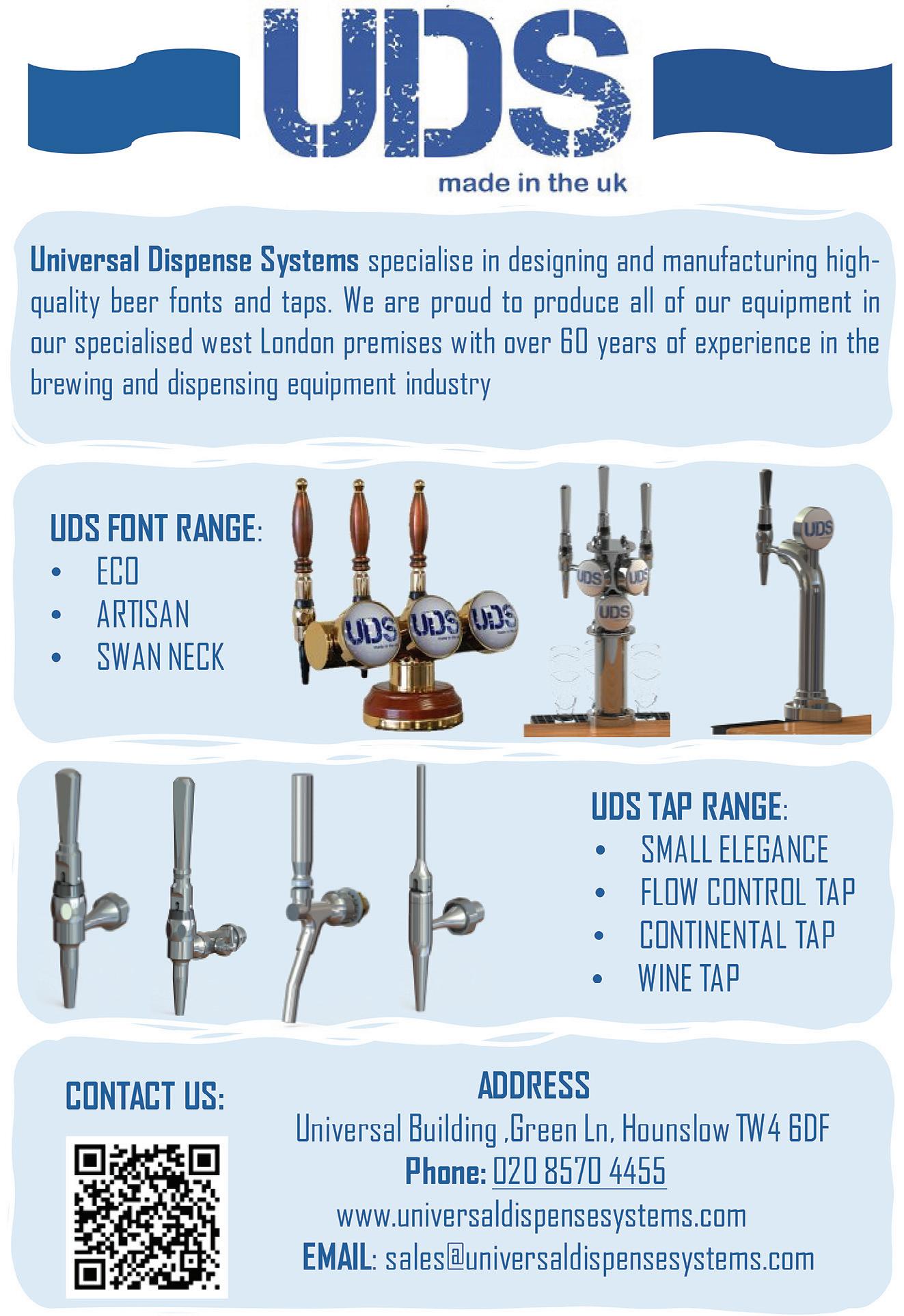
You won’t be back, did not finish your pint. Not wanting to make a fuss, you didn’t say anything to the bartender.
All in all, you, the customer have been let down. The pub has lost out. The worst part is that the pub staff are unaware of what just happened.
If the pub manager tracked the waste, they would know something was wrong. This was not the first sloshy pint served, in fact, bar staff would empty drip trays more than once a day.
By tracking the waste, they could quantify what they’re losing. They are losing 6% of beer in 3 of every 4 pints served,
This venue serves 3,000 pints on an average month. That’s 2,250 resulting in waste and at 6% its costing them £4,649.40 per year, ensuring they lose £10,530 in revenue*.
What a horrible scenario.
Could it be avoided? 100% YES, with the Avani WasteWatchers!® Workshop
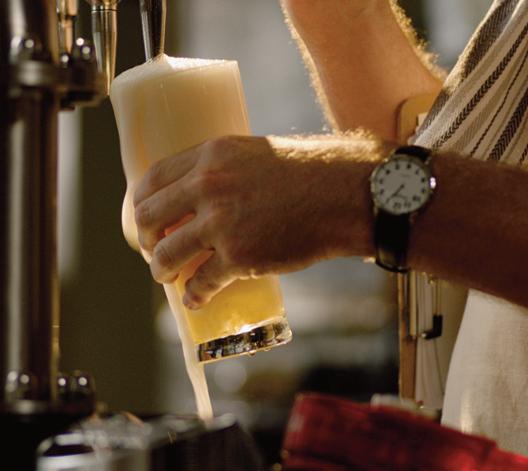
The WasteWatchers!® training initiative, supported by the BII and UKHospitality, offers low-cost, on-site training for bar teams that teaches how to deliver the Perfect Pint and best customer
waste and cost and improving sustainability. It’s a win-win.
Head to www.avanisolutions.co.uk/wastewatchers and sign
costs NOW. Whilst we know not

With over 60 years experience of UK manufacturing for the beverage dispense industry, Universal Dispense Systems (UDS) have an unrivalled reputation in the design and manufacture of a large range of dispense fonts, taps and beverage dispense systems which are designed and manufactured in the UK and exported worldwide.
From the clean lines of the Eco Tube Font to the hand-crafted Artisan range of fonts, there is something to fit every theme and concept. If you require a bespoke font, we are able to create customer specific
designs to meet your requirement and these are available in a full range of finishes and branding options.
Our range of fonts have been specifically designed and hand-crafted at our London based manufacturing facility to meet the ever-growing need for brands to stand out from the crowd. Reflecting the heritage of both established and craft beer brands along with providing stylish fonts that are at home in today`s marketplace.
Our range of stainless-steel taps are available in free flow or with flow control capabilities. All our taps are precision engineered using the highest quality materials and manufactured at our purpose-built engineering facility in London.
Contact us here for more information or a quotation- sales@universaldispensesystems.com

CaskWidge Cellar Equipment Ltd was established in July 2000. Making this year our 25th anniversary. We are the original floating system for the upright dispense of Cask Ales. serving great cask ales – hassle free. When only the BEST will do!

For a quarter of a century, we've been proud to serve the British brewing community, delivering top-quality, British-run and manufactured cellar equipment to ensure your cask ales are poured to perfection, every time.
The CaskWidge is an upright dispense system that has a flexible pipe with a floating filter attached that draws the beer from near the top of the cask. The floating filter (Float Head) sits below the 'top break' and follows the beer down until it reaches the bottom of the cask. By taking beer from below this sub-surface layer, any oxygenation and contamination is prevented
from spreading down into the beer below, keeping the beer in its best condition.
Why choose the CaskWidge system?
Optimal Dispensing Quality – ensures perfect, consistent pours of your cask ales every time. Easy Installation & Maintenance –designed for a hassle-free, fit and forget set up, saving you time and money. Innovative Design – as the original upright dispense system, our unique design maximises space efficiency in your cellar, eliminating the need for racks or hoists. Long-Lasting Durability – build to last, offering reliable performance year after year, even in the most demanding environments.
Here at CaskWidge we pride ourselves on quick delivery times and friendly service, so please head to www.caskwidge.com to place your order today. If you need any guidance or assistance, please email us at info@caskwidge.com or call 08453707606.
EASYRACK is a leading supplier of high-quality cellar handling equipment and cask racking solutions designed to improve efficiency and safety in your brewery, pub, or beverage storage facility. We provide a wide range of products, from keg handling and cask racking solutions to drop mats and more.
We understand the unique challenges of cask racking and cellar management. That’s why we offer durable and reliable equipment to optimize your operations, including:
• Cask racking systems: Maximise your cellar space and ensure safe storage of your casks with our robust racking solutions.
• Freestanding Autotilts: Insure full usage of barrel contents so nothing is wasted!
• Keg handling equipment: Effortlessly move and man-
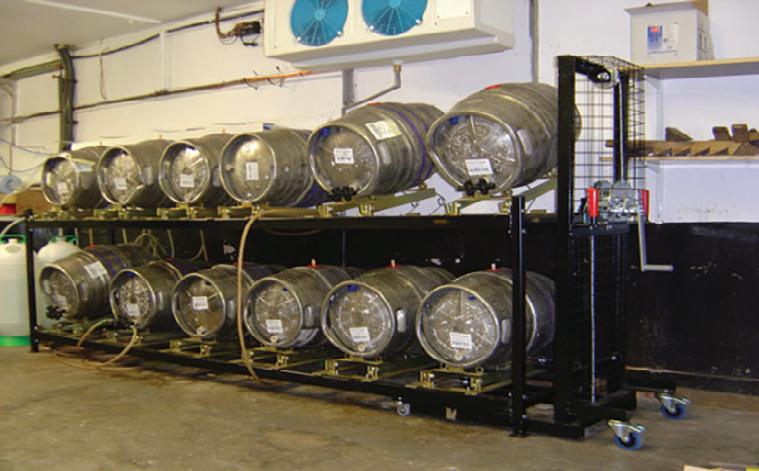


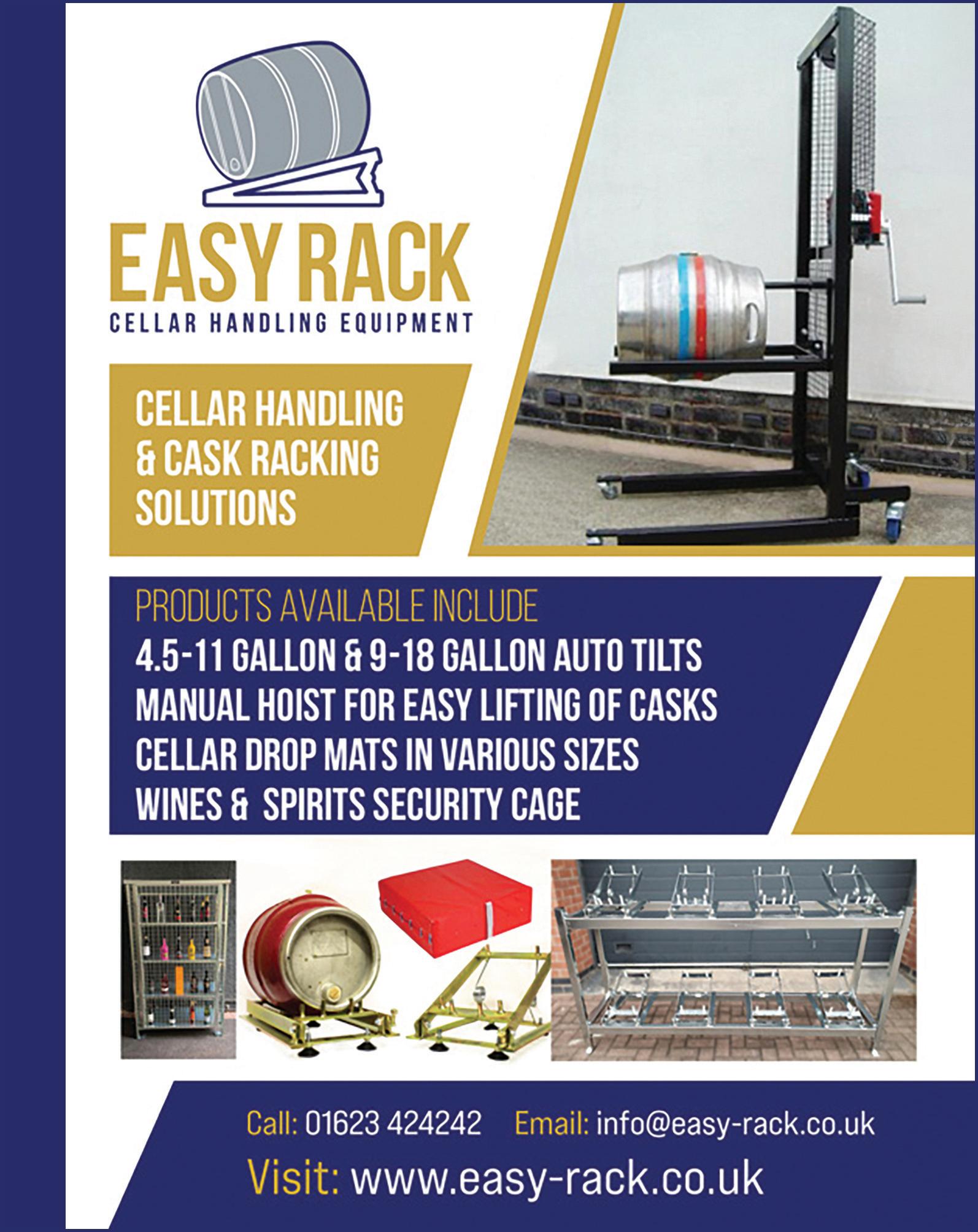

While
as axethrowing, crazier golf and augmented reality darts are proving to be a major draw, quality food and drink also contribute to a formula with a multi-generational appeal.

The business opened its first venue in Norwich in December 2020 and has grown steadily since. Boom Battle Bars are a high-volume business serving a lot of draught refreshments, so quality cellar cooling is essential. Having a very good cooling system for the customer-facing area is critical to the experience that the customers expect.
Heat Recovery (HVAC) has installed J&E Hall cellar cooling equipment in a dozen venues so far. Co-owner
Mike Higginson says: "In mid-2020 I had a call from one of the Boom Battle Bar designers who I had done a lot
of work for over the years –presenting a great opportunity. We became involved in work at the Liverpool bar in late 2020 during lockdown and it all went on from there. We have installed J&E Hall cellar cooler equipment of varying sizes and specifications in a dozen venues so far. The units are good quality, easy to use and maintain. They are a very good
and
Boom Battle Bars is the market leader in a new entertainment concept, competitive socialising, offering games including American shuffleboard, augmented reality darts and axe-throwing as well as conventional pool and beer pong.
See the advert on this page or visit www.jehall.co.uk for details.
Summer drinking habits may not be changing dramatically - crisp whites, delicate rosés and sparkling wines remain seasonal staples - but we’re seeing a noticeable shift toward wines that are fresher, lighter and more mineral-driven.
High-acid, ultra-refreshing styles like Albariño are increasingly popular, while New Zealand Sauvignon Blanc, with its zesty citrus and herbaceous punch, continues to be a key sales driver, especially as pricing becomes more competitive.
Provence Rosé remains a firm favourite, but customers are exploring further afield. We’re seeing growing interest in terroir-driven pink wines beyond the usual names, helped in part by rockstar rosé brands like Whispering Angel elevating the category. Provence rosé’s crisp acidity and subtle fruit notes make it an incredibly food-friendly choice, pairing beautifully with seafood, grilled chicken or summer salads.
Alfresco menus often focus on lighter, fresher dishes, think grilled fish, chicken, seasonal veg or plant-based options. Choosing the right wine to match can elevate the entire experience. Here are two perfect pairings from our range:
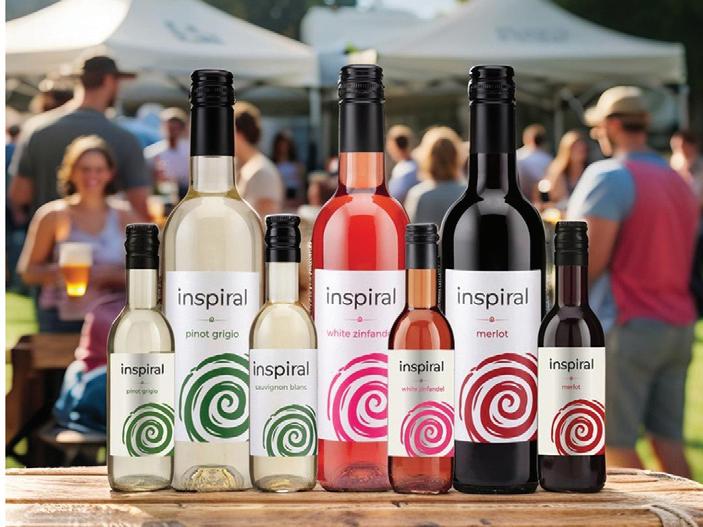
• Aimee’s Garden Moscato is a low-alcohol, delicately sweet wine that pairs effortlessly with summer salads or lightly
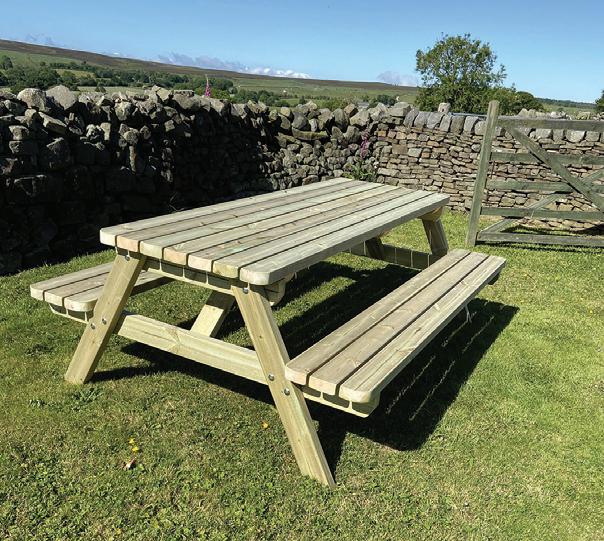
grilled white fish. Its floral aroma and fresh fruit profile make it an easy-drinking, refreshing match for lighter dishes.
• Seaglass Chardonnay is ideal with BBQ prawns or langoustines. Its zesty citrus and tropical notes lift the natural sweetness of shellfish, while a touch of oak adds complexity. The crisp acidity balances beautifully with smoky grilled flavours.
Whether it’s festivals, picnics or rooftop terraces, not every alfresco venue can allow glass. But that doesn’t mean compromising on wine quality. At Lanchester Wines, we’ve developed innovative, sustainable packaging solutions that ensure premium wines are ready to serve - wherever your customers are.
With Lanchester Wines, alfresco dining can be both environmentally conscious and a celebration of great taste. Our innovative packaging solutions ensure you can offer highquality wines that are practical and sustainable, enhancing the outdoor dining experience for your customers.
For more information or to explore our full range, visit www.lanchesterwines.co.uk or contact our team at sales@lanchesterwines.co.uk | 01207 52 1234
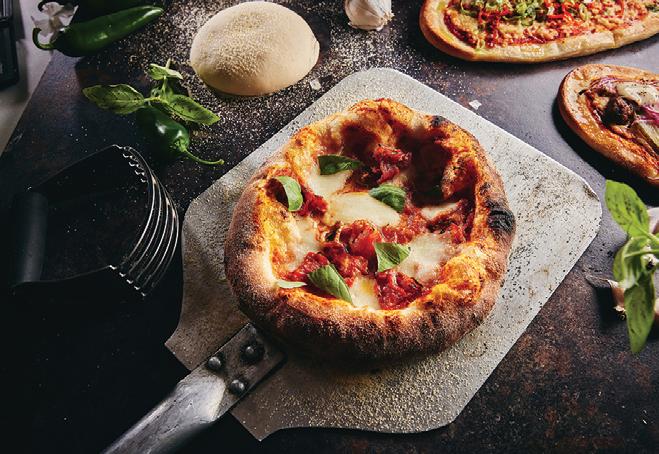
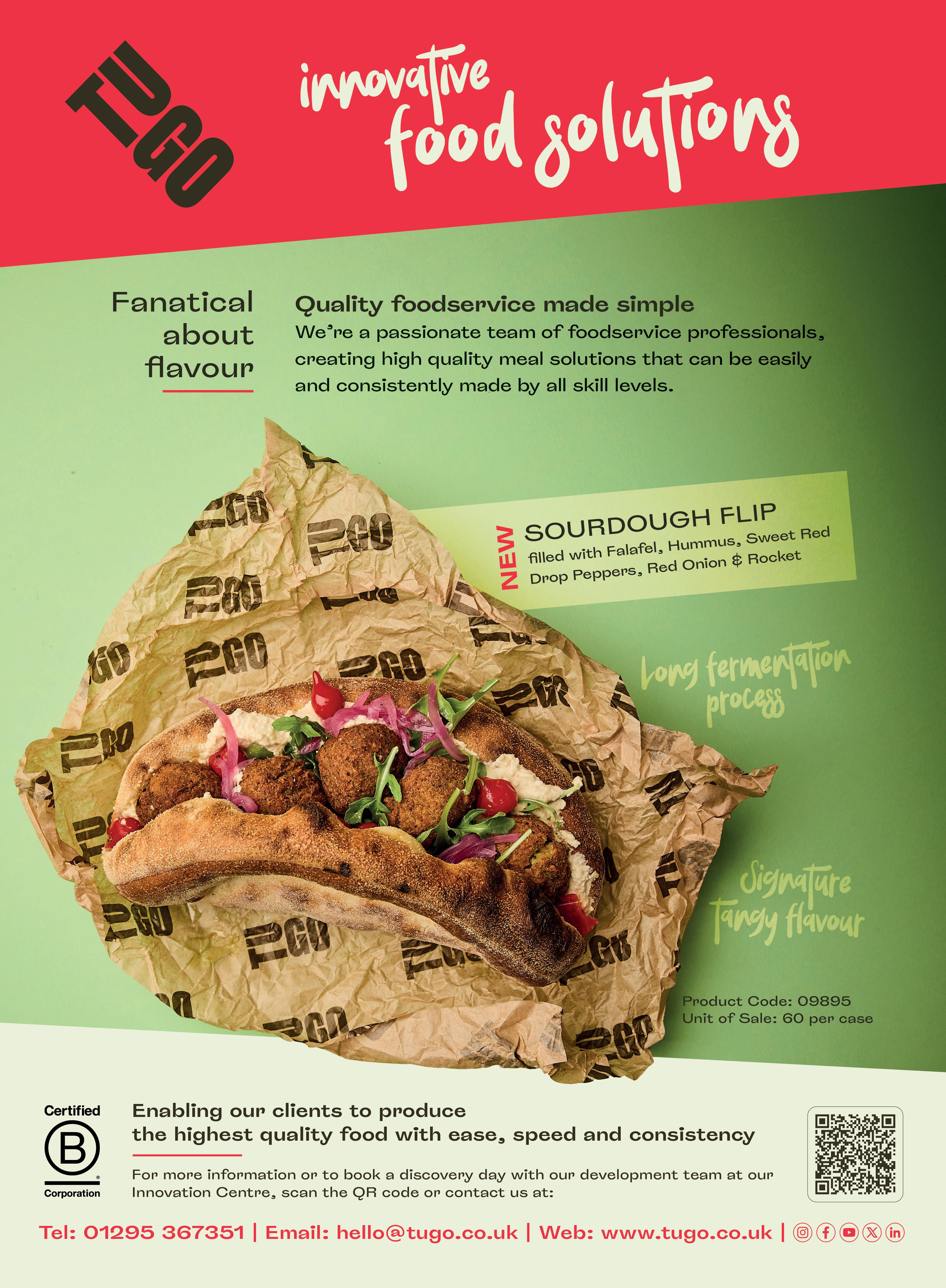
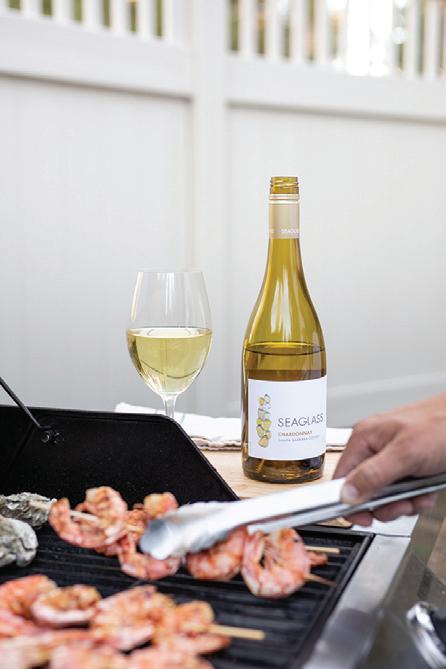
When it comes to BBQs, the default wine choice is often a big, bold red. But when it comes to outdoor dining, the warmer weather calls for wines with freshness, versatility and broad appeal. At Lanchester Wines, we’ve selected three unique wines from our range that offer a refreshing take on classic BBQ pairings.
LEESE-FITCH OLD VINE ZINFANDEL (CALIFORNIA, USA)
This smooth, fruit-driven Zinfandel offers ripe berry notes and a hint of spice, making it a superb match for sticky BBQ ribs, glazed sausages or grilled vegetable skewers. With supple tannins and balanced acidity, it brings depth without overwhelming the plate.
SEAGLASS CHARDONNAY (CALIFORNIA, USA)
Crisp and elegant, this Californian Chardonnay pairs beautifully with seafood on the grill. Zesty citrus and tropical fruit lift the natural sweetness of prawns
and langoustines, while a whisper of oak adds just enough richness. Its bright acidity keeps things refreshing, a great choice for lighter BBQ dishes.
TREVISANA BIO RABOSO FRIZZANTE (VENETO, ITALY)
This organic sparkling red from northern Italy is a real conversation starter. Lightly fizzy with vibrant cherry and red berry flavours, Trevisana Bio Raboso Frizzante is fantastic served chilled alongside charcuterie, grilled pork or balsamic-glazed vegetables. It’s a bright, playful wine that adds flair to any summer menu.
By moving beyond the obvious pairings, your BBQ wine list can bring real excitement to outdoor service, while offering guests something genuinely memorable.
Discover the full range at www.lanchesterwines.co.uk or see the advert on the back cover of this issue for details.
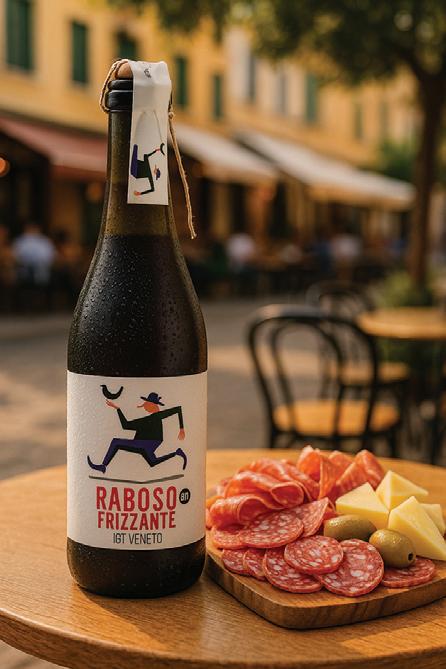
Catering Equipment Ltd are the authorised UK Distributor for the range of Kängabox thermoboxes that keep items Hot or Cold. Kängabox is a revolutionary new high density EPP series of containers in which hot or cold items can be transported with an average temperature loss of less than 1°C plus or minus per hour within a temperature range of -40°C to +120°C. Kängaboxes are available in a range of capacities and attractive colours. Kängabox are available in eight different designs and four different depths. The various gastronorm, pizza, ice cream and euro norm formats are available.
Our Transport Boxes perfect for keeping food HOT or COLD whether delivering food, running an event or managing extra food production in the Kitchen. Comprehensive product details can be found on our website www.kangaboxuk.com
We are also leading suppliers of European manufactured Stainless Steel items such as Sinks, Gastronorms, Accessories and other products. In addition Catering Equipment Ltd are also the UK's largest specialist supplier of
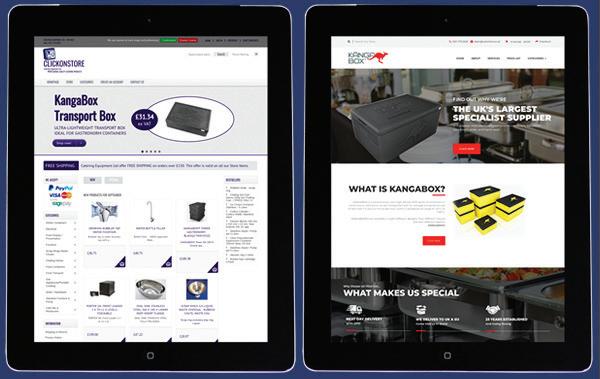
European manufactured gastronorm containers, ice cream containers, sinks, hand wash and restaurant equipment. See our extensive range of products on our website clickonstore.net.
Catering Equipment Ltd are a family firm that has been trading for almost 30 years. Our commitment is to our customers you are the most important people in our business.
Our promise is that you can count on Catering Equipment Ltd to help you and that our team will do their utmost to ensure that dealing with us is a pleasant and worthwhile experience. Call the team on 0121 773 2228 now.
With wind, rain and even the occasional burst of strong sunlight, the furniture we choose for our outdoor spaces has a lot to contend with, and that’s before it’s even been exposed to the demands of constant use by customers!
Here at Trent Furniture, our stylish and sturdy range of contract grade furniture is built to far surpass anything used in a domestic setting - and the good news is it’s all achieved with affordability in mind.
winter months.
The matching Plaza Table incorporates a hardened glass top for extra outdoor toughness.

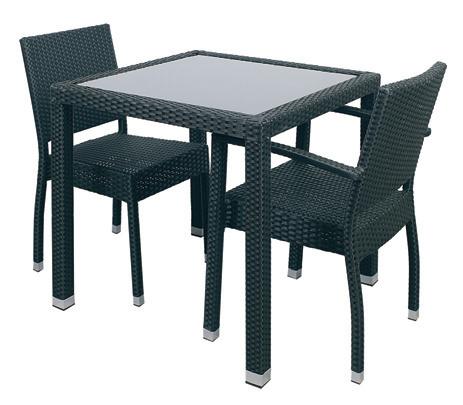
Currently available with 10% off, our chic Plaza Chairs are made of tough water resistant and UV resistant synthetic rattan, woven over a strong rust-resistant aluminium frame to combine the good looks you require with the quality you need. Even better, these chairs are stackable and look great indoors, meaning they can work just as hard for you in the
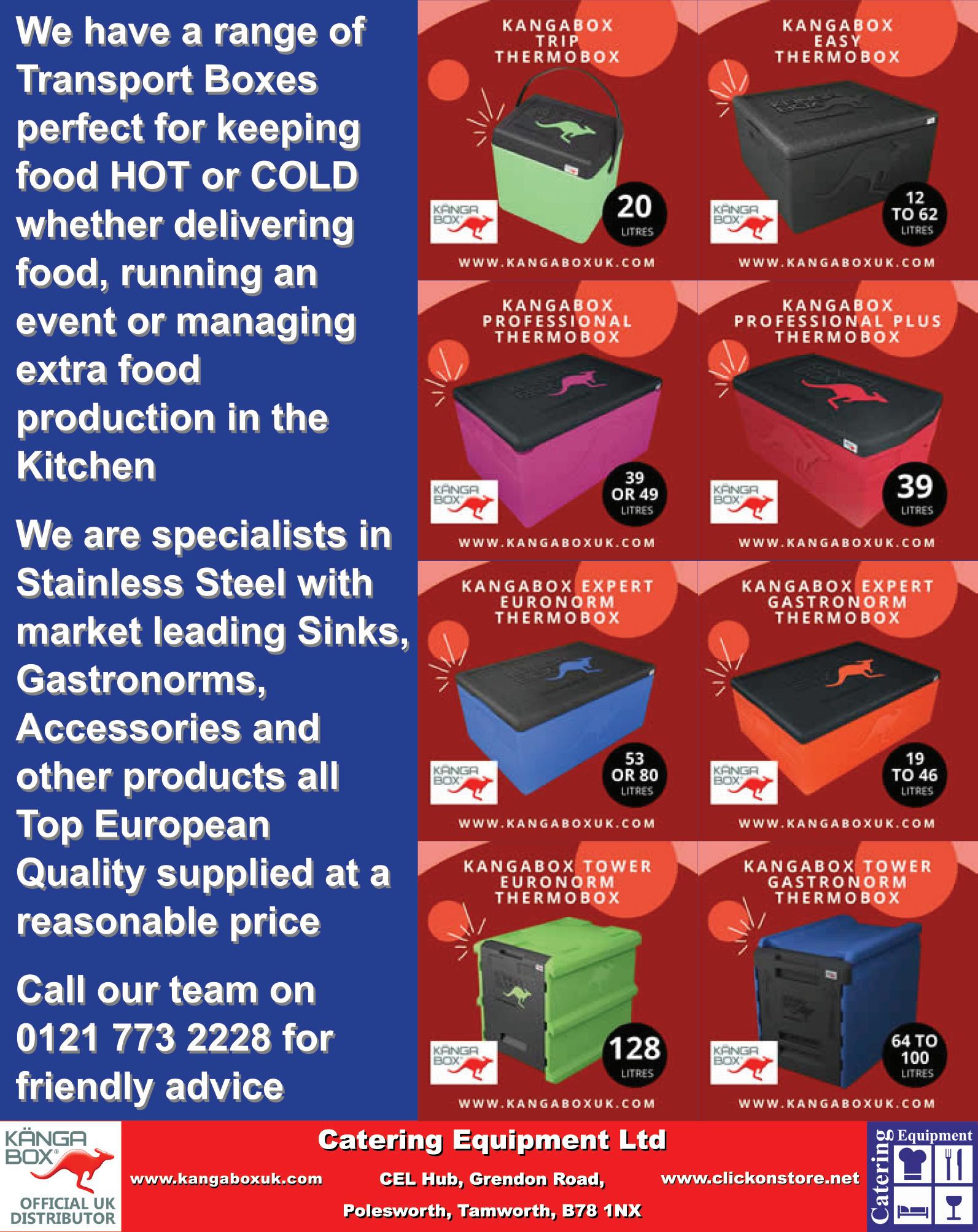
If you’re looking for a modern metal look, the full steel construction of the Vienna range is the perfect addition to your outdoor dining space, and again with 10% off, now is the perfect time to invest for summer. And of course, no beer garden is complete without a picnic table. Available in three sizes and made from 4cm thick fully dip-treated spruce wood, the aptly named Chunky Picnic Table is constructed for strength and durability with a double strut across the A Frame and galvanised metal fixings.
To find out more about our great range of contract grade outdoor furniture, please call 0116 2864911 or email sales@trentfurniture.co.uk

For over 20 years, Gazeboshop has been a trusted name in the industry, providing high-quality gazebos to businesses and individuals across the UK and Europe.
We specialise in high-quality printed gazebos tailored for food and drink vendors. Whether you run a street food business or take part in occasional markets and events, our customprinted gazebos will help you stand out and attract customers.
Our catering gazebos are designed to be practical and eye-catching. They can easily accommodate BBQs and street food ovens, and are fully waterproof and flame retardant - keeping you and your food protected year-round. Printed accessories like sky banners, half walls, and flags are also available to further personalise your setup and boost visibility.
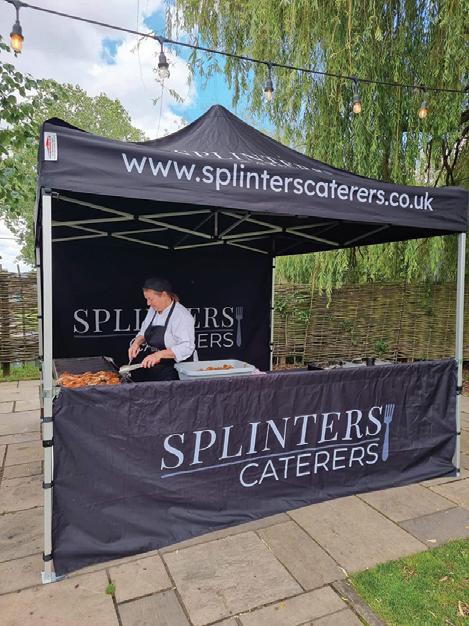
Ideal for both indoor and outdoor use, our gazebos provide a professional, branded presence wherever you
With over 30 years of industry expertise, Indigo Shading has become a leading national supplier of commercial grade awnings, giant parasols with accessories, screening plus glazed and retractable roof fixed structures. Built on a foundation of innovation and quality, the company has transformed countless outdoor spaces across the UK, providing exceptional outdoor solutions for businesses enabling them to grow their own turnover and profits.
From initial consultation to installation, Indigo Shading is committed to delivering unparalleled service. Indigo’s

go. We’ve proudly supplied to a wide range of catering clients, including The Filthy Vegan, Santina’s Wood Fired Pizza Co, Acropolis Street Food, and Bring & Braai Catering. A well-designed gazebo helps showcase your products and attract attention, making your stall the goto spot at events.
We also offer plain pop up gazebos in a variety of sizes, colours, and frame strengths for those on a budget or not needing custom branding. All our pop up gazebos come with a manufacturer’s warranty of up to 3 years, and spare parts are available for next working day delivery.
Looking to elevate your outdoor space? Explore our stretch tents to create a stylish alfresco dining area.
Let Gazeboshop help your business shine. Call 01295 258922 or visit www.gazeboshop.co.uk to get started.
Managing Director
Trevor Ruddle says “that’ll do won’t do, for us it has to be the best or nothing”. Every project is approached with precision, ensuring tailored solutions that exceed expectations. Expert guidance, attention to detail, and seamless execution guarantee a flawless experience from start to finish.
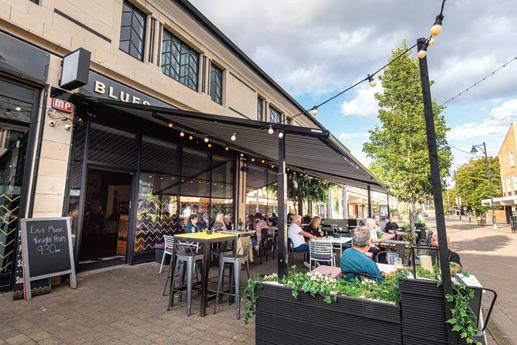
Indigo Shading specialises in transforming outdoor spaces with premium products designed for style, comfort, and functionality, these shading solutions cater to a variety of industries, including Pubs, Hotels, Restaurants, Sporting venues, hospitality, retail, and education. From providing elegant shelter to enhancing brand visibility, Indigo Shading offers high-quality products that are both practical and visually stunning.
Email enquiries@indigoshading.co.uk
Web www.indigoshading.co.uk Call - 01352 751889

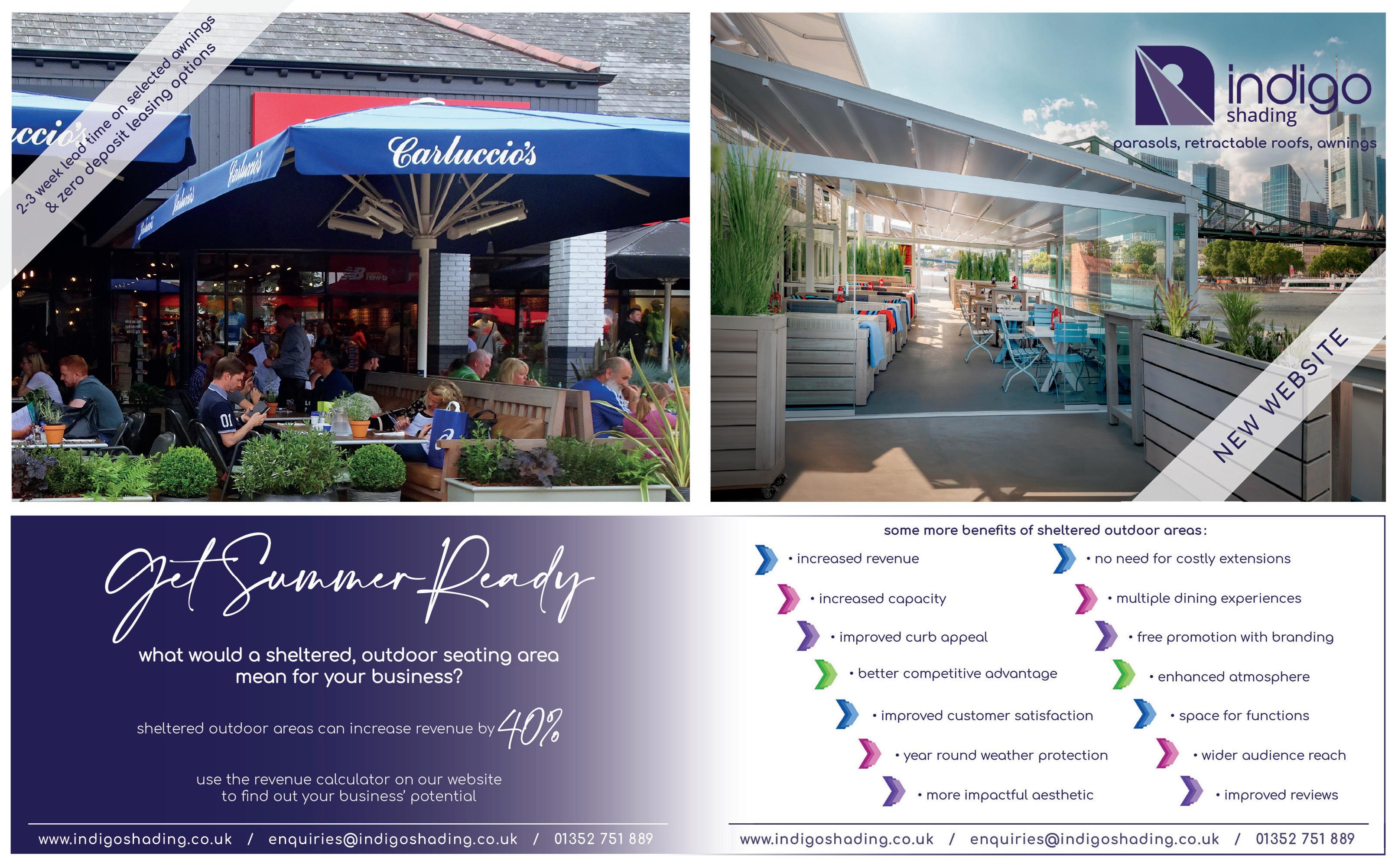
At TheCommercialOvenStore.com, we know that the heart of any professional kitchen is a reliable, high-performance oven. That's why we offer an extensive range of ovens from the world’s leading brands – including Blue Seal, Lincat, Unox, Rational, and Merrychef.
Whether you’re running a bustling restaurant, a cozy café, or a fast-paced catering business, you’ll find the ideal solution with us. Our selection includes powerful gas and electric ranges, versatile combi ovens, high-efficiency speed ovens, and durable convection ovens, alldesigned to keep your kitchen operating at peak performance.
Explore cutting-edge features, energyefficient designs, and trusted engineering
– all in one
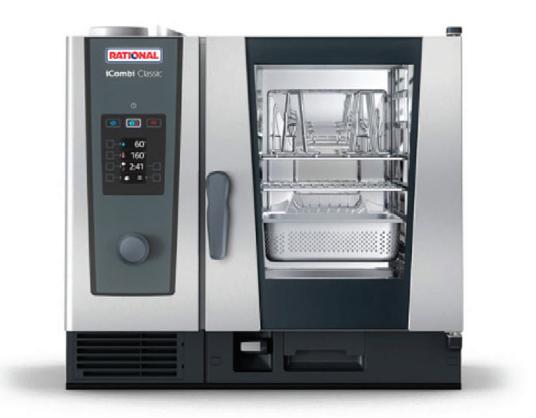

place. From compact units for smaller kitchens to heavy-duty systems for large-scale operations, we make it easy to find the right fit for your needs and budget.
Expert advice, competitive prices, and trusted brands – all at TheCommercialOvenStore.com
Get the equipment you can rely on, and take your kitchen to the next level.
T 0207 965 7502 sales@thecommercialovenstore.com

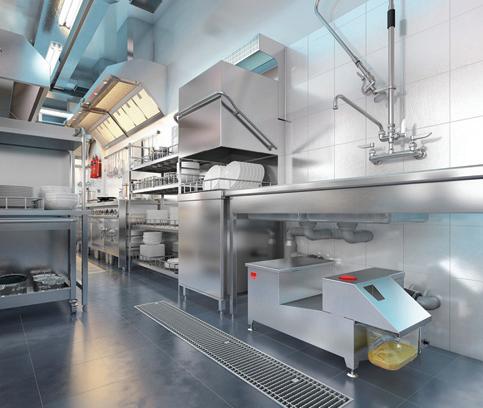
At Kitchen Clearance UK, we specialise in supplying top-quality refurbished and Bgrade commercial catering equipment from some of the industry’s most trusted brands, including Rational, Lincat, Merrychef, Maidaid, Falcon, Foster, Blue Seal, and many more.
We carefully source only the best pre-owned commercial catering equipment, ensuring that each piece is fully refurbished to a high standard and rigorously tested by our expert engineers. All equipment can be viewed if required to see it working and see the quality of the item.
We also supply B-grade catering equipment — items that may have minor cosmetic imperfections or have been used for demonstrations. All B grade items come boxed and complete with all accessories where required, offering a cost-effective solution for high-performance kitchen equipment.
We pride ourselves in excellent customer service, making sure any initial issues are


At The Commercial Oven Store, we take great pride in being your go-to destination for all your commercial oven needs.
We understand that when it comes to running a successful business, having the right equipment is crucial. That’s why we have dedicated ourselves to providing top-notch products, coupled with expert advice, to help you make informed decisions and achieve your goals.
As a supplier of commercial ovens, we have established strong partnerships with leading manufacturers in the industry. By working closely with these renowned brands, we ensure that our customers have access to a wide range of high-quality ovens that meet the diverse needs of various businesses.
Whether you’re in the food service, hospitality, or catering industry, we have the perfect oven to suit your requirements.
As a green business, we are dedicated to reducing waste in the catering industry by giving high-quality equipment a second life. Before disposing of any catering equipment, reach out to us, it’s not only better for your finances but also for the environment.
Located on the borders of Lincolnshire, Leicestershire, Rutland, Northamptonshire, Cambridgeshire.
Tel: 07790 612911

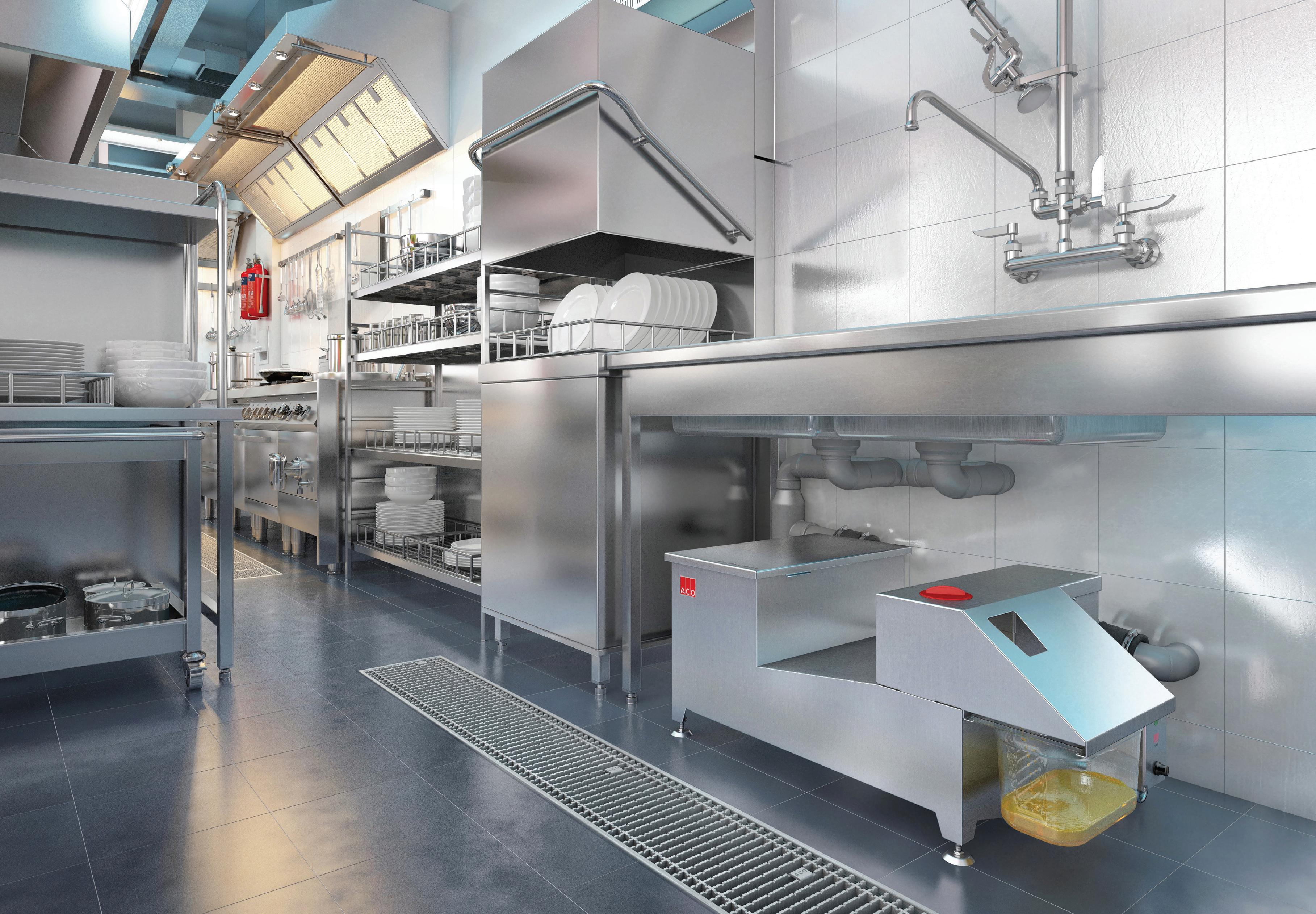
Find the right grease unit for your kitchen using our selector
In today’s catering market there is an increasing focus on managing Fats Oils and Grease (FOG) in commercial kitchens.
At ACO we recognise each kitchen is unique and so we have developed our grease selector to help commercial kitchen owners identify the right solution for their needs.
Answer a few simple questions and receive a recommended solution based on things like:
¡ Location of the unit
¡ Your kitchen equipment set up
¡ Days of operating
¡ Number of meals served
ACO have a range grease units to cater for all kitchen sizes, from small under-sink grease traps for low-volume kitchens to large EN1825 separators that can handle industrial kitchen FOG requirements.
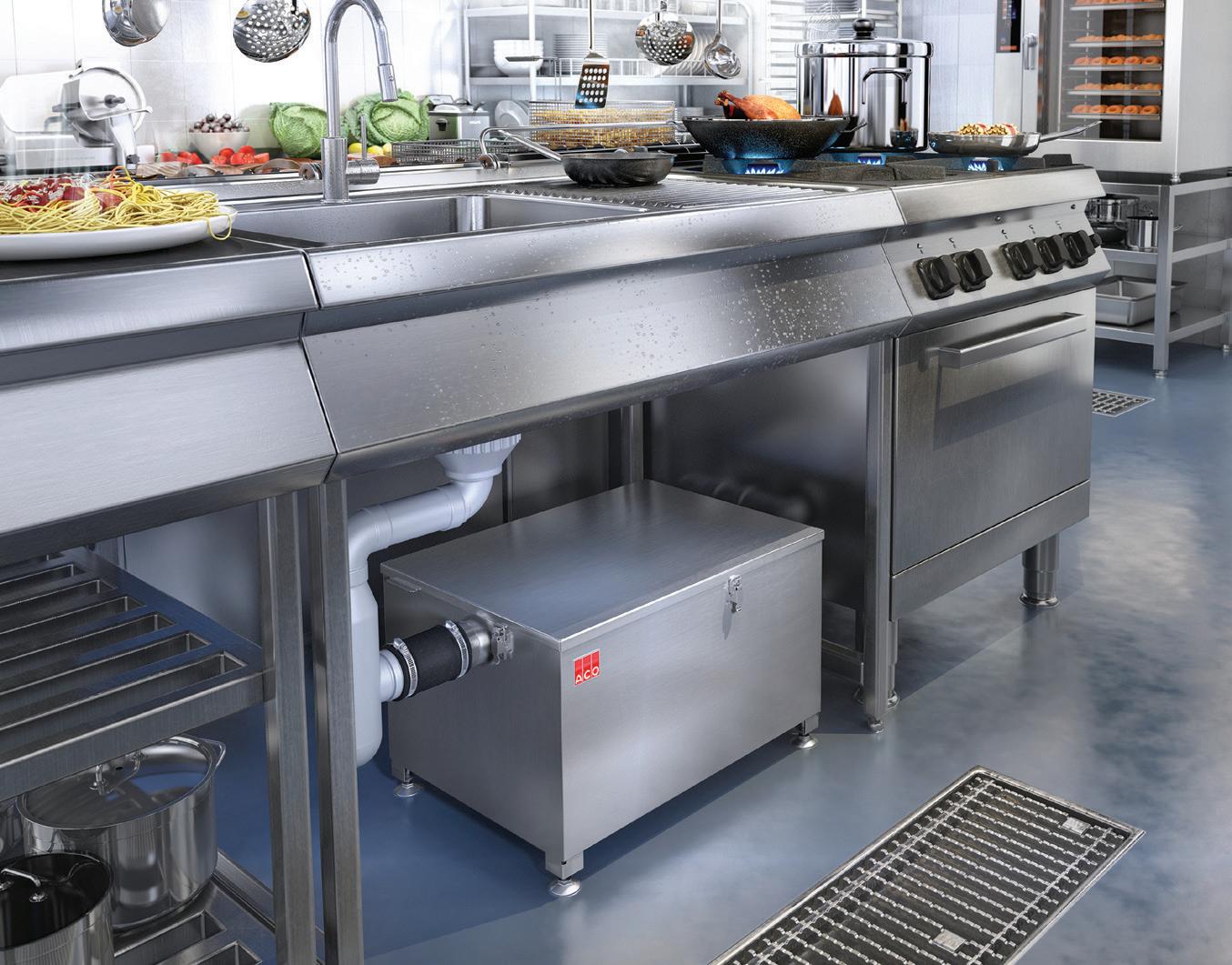
Find a recommended grease unit for your kitchen using our selector now: www.aco.co.uk/buy-grease-solutions
Thawing frozen food in commercial kitchens can be an issue, especially if it's in bulk. Some chefs take it out of the freezer and put it in a fridge or coldroom - this is safe but it's slow, sometimes taking days to defrost. Others run the frozen food under cold water. This is acceptable, but not suitable for large amounts of food. Apart from wasting water, staff need to monitor it constantly to ensure it doesn't rise too high in temperature. Now Williams has developed ThawSafe, an innovative thaw cabinet that's faster than the fridge and brings a new level of food safety to a range of cooking processes including cook-chill and cook-freeze. Thaw cabinets have been around for a while, but Williams has completely reengineered the concept. The Williams ThawSafe is a one door cabinet with 75kg capacity, over double that of its predecessor, in a smaller footprint.
The ThawSafe cabinet features a sleek new look with an easy to clean full length integral door handle. It comes equipped with eight GN2x1 shelves. Installation is simple, with its width allowing it to fit through a standard doorway. The cabinet is fitted with a standard waste drain at the base of the unit, allowing it to be connected to the main drain. Because of the potential risk to food safety if carried out incorrectly, thawing has to be a controlled process. ThawSafe's innovative design ensures food safety while maximising the speed of the process, with the food's surface temperature never being allowed to go above 5°C, thus stopping the growth of bacteria.
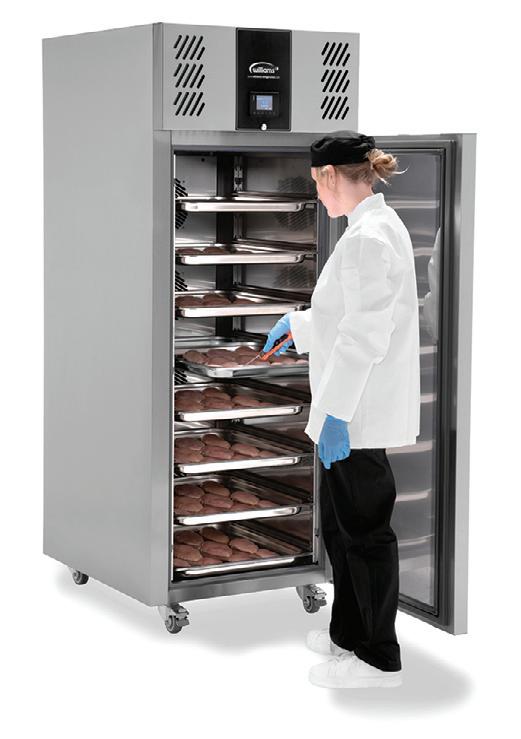
The efficient airflow from the four fans within the cabinet ensures the cabinet temperature is 100% consistent,
Caterquip Ventilation Ltd is proud to be celebrating their 25th Anniversary this year.
This Warwick based company offers nationwide coverage for all your commercial catering needs: free site surveys, quotations and designs (CAD), quality bespoke and standard fabrications, specialist knowledge of catering ventilation systems including input air, odour reduction (carbon filtration and ESP) and sound attenuation. Affiliated members of Constructionline and CHAS, Caterquip Ventilation have a strong hold in the marketplace often advising industry professionals on ventilation systems to a DW172 specification & BSEN:6173.
from top to bottom, so everything thaws at exactly the same rate. In the initial phase, the air temperature may be as high as 9°C, to kick start the process, but critically the food's surface temperature never creeps into the bacteria danger zone above 5°C. At the end of the process, the cabinet automatically switches to chilled storage mode.
The new cabinet has an intuitive touchscreen controller with a simple to operate icon based menu. There are four programmes, three of which are preset for 75kg of food, 35 kg and low weight loads. A fourth can be customised for thawing to the operator's needs, for example if they have specialist menu items. Once thawing is complete, an audible alarm sounds to signal the end of the cycle.
The ThawSafe runs on natural hydrocarbon refrigerant and uses high performance, high density, precision injected cfc-free insulation, so it is very much in accord with foodservice operators' Carbon Net Zero aspirations.
The ThawSafe cabinet can handle a maximum of 75kg of frozen food. It measures 727mm wide x 941mm deep x 1960mm high with list prices starting from £8030.
Williams Refrigeration offers a comprehensive range of commercial refrigeration including gastronorm cabinets and counters, specialist bakery equipment, coldrooms, multidecks and blast chillers.
To learn more about Williams extensive product range visit www.williams-refrigeration.co.uk.
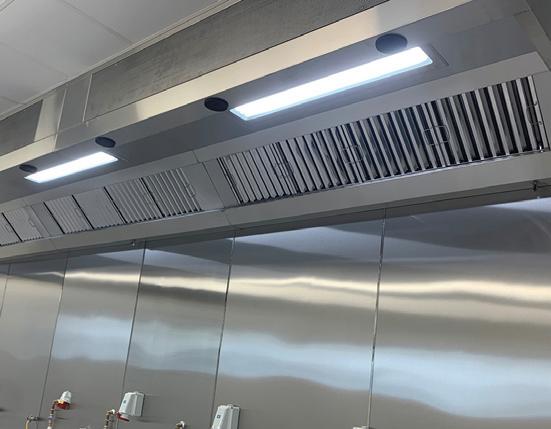
They have strong relationships with all leading kitchen equipment suppliers, and they offer a kitchen design ser-
vice to help you build your ideal kitchen.
Projects undertaken have included Olympic Villages, Basildon Hospital, The Mitre Hotel at Hampton Court, The Truck Stop at Anglesey, The Lodge at Old Hunstanton, Colleges, Schools, Hotels, Restaurants and Public Houses. They ensure their systems are compliant with the current guidelines whilst maintaining an efficient and dynamic facility.
With extensive knowledge of manufacturing and installing ventilation systems, they can help you design the best kitchen within the space available.
Call: 01926 887167, visit: www.caterquipventilation.co.uk, email: info@caterquipventilation.co.uk
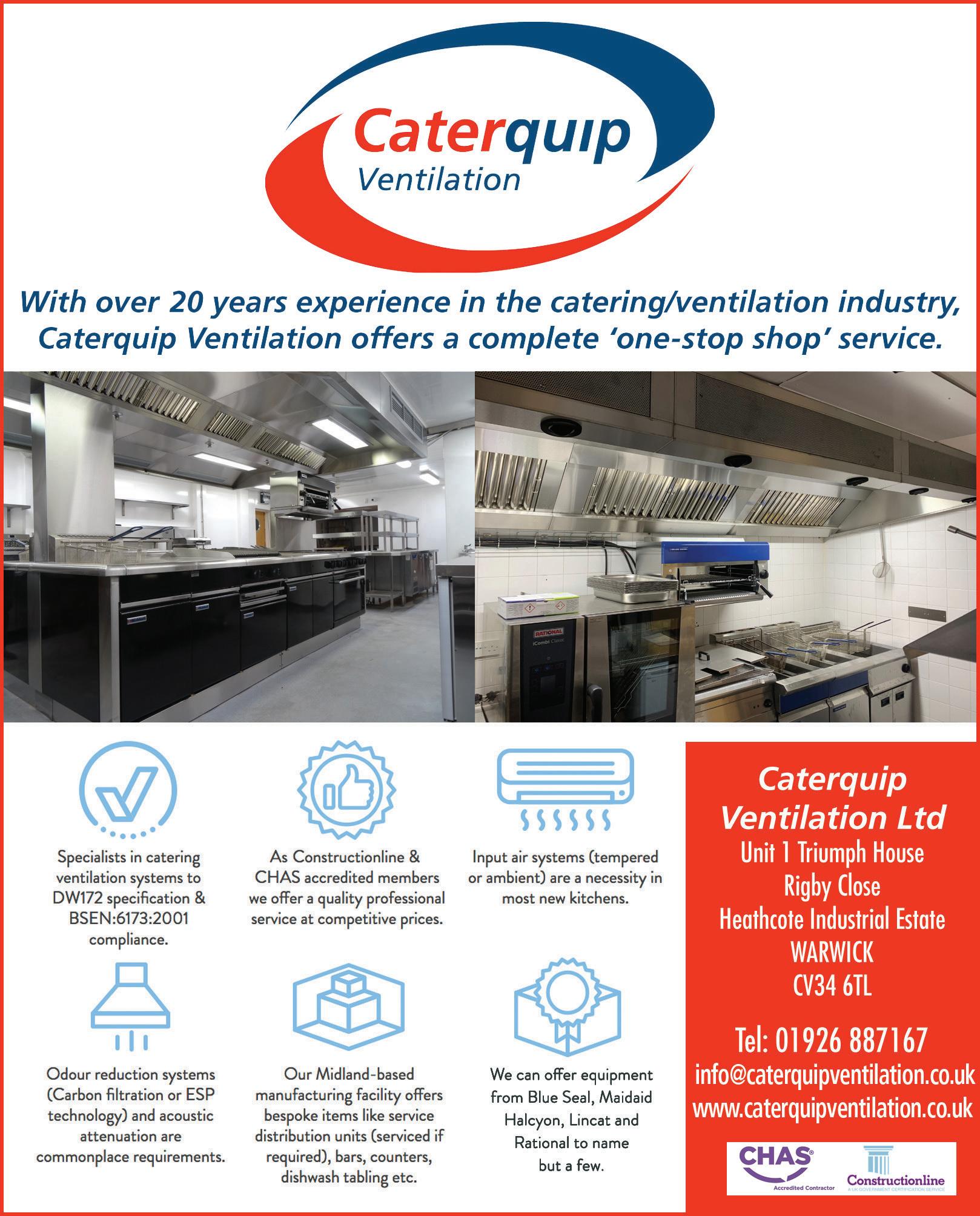
Fridge Seals Direct proud to be UK's no1 supplier of replacement fridge and freezer seals. We fabricate for a wide variety of commercial fridge & freezers.

The management team at Fridge Seals Direct have over 30 years of experience in the refrigeration industry and have each spent many of those years installing gaskets and hardware for a range of styles, brands and sizes of fridges.
From restaurant kitchens to food warehouseswe have experience in dealing with fridge & freezers of all sizes and scales. To learn more about fridge seals, be sure to explore our range of extensive guides on how to replace a refrigerator door
seals. Otherwise, find your specific guides in how to identify, measure, install or maintain your fridge or freezer door seal.
Our reputation in the industry along with our commitment to providing a high-quality gasket without having to buy from the factory allows us to have competitive pricing and fast turnaround time.
Try us out, order your door gaskets from us and discover a better way to do business. We are here to help you.
www.fridgesealsdirect.co.uk

• Be ready for your inspections
• Damaged fridge seals are unhygienic
• Make your fridge more energy efficient with a good seal on your fridge
• We provide custom seals for cold rooms, discontinued models, and units with no identification information
• Next-day delivery service
• Discounted prices on large orders WhatsApp, phone, and email support
07936807320
sales@fridgesealsdirect.co.uk
Bread cutting machine specialist MHS Schneidetechnik brings over 30 years of cutting technology expertise to the hospitality sector, offering self-service, professional, and production bread slicers. Now available exclusively in the UK and Ireland through bakery equipment specialist EPP, MHS machines deliver exceptional performance, reliability, and return on investment, making them an ideal choice for the fast-paced demands of catering environments.
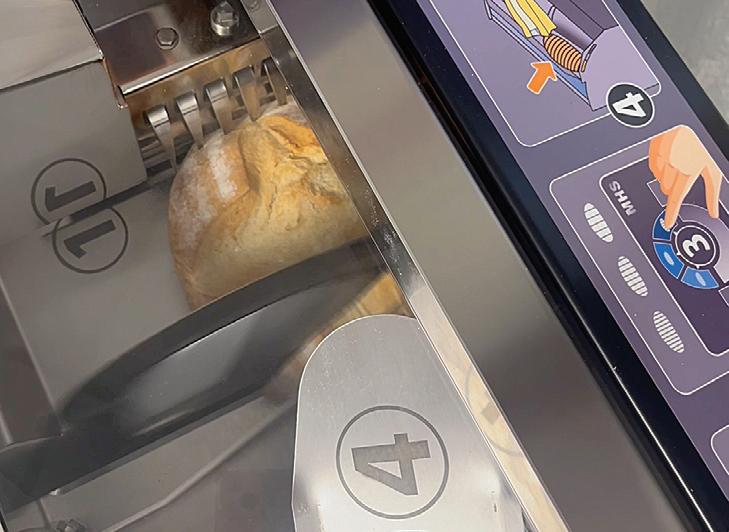
With slicing speeds of up to 220 slices per minute, MHS slicers are built for efficiency. Slice thickness can be adjusted in 1mm increments, down to as thin as 4mm, enabling caterers to create elegant finger sandwiches, thinly sliced rye, artisan sourdough, twicetoasted melba slices, and more. Whether it’s breakfast service, afternoon tea, or buffet prep, MHS machines help caterers deliver consistent, professional results.
“Busy restaurants, hotels, and catering businesses need efficient, reliable, and durable solutions that can
perform time after time,” says Steve Merritt, managing director of EPP, exclusive distributor of MHS in the UK and Ireland. “MHS provides high-quality slicing technology which allows hospitality workers to quickly, easily, and professionally slice loaves of all sizes, allowing our partners to further automate operations, increase efficiency, and make cost savings.”
Manufactured in Abstatt, Germany, All MHS models feature hygienic stainless-steel housing and easyaccess components for quick cleaning, whilst durable blades ensure quiet, efficient operation. Tabletop or floor standing models are available in a range of sizes, able to fit into hospitality spaces as narrow as 60cm.
MHS machines are trusted by industrial and semiindustrial bakeries, bakery chains, hotels, restaurants, and artisan bakeries alike. All equipment is GS safetytested and certified.
MHS slicers are available in the UK and Ireland from bakery equipment specialist EPP. For more information, visit www.eppltd.co.uk
Foodservice businesses are being urged to make sure they are ready for a Water Company inspection of their grease traps.
In April this year the China Panda in West London was prosecuted by Thames Water due to repeatedly disposing of fats, oils, and grease into the sewers. This led to over £13,000 in fines and costs for continuous sewer abuse offences.
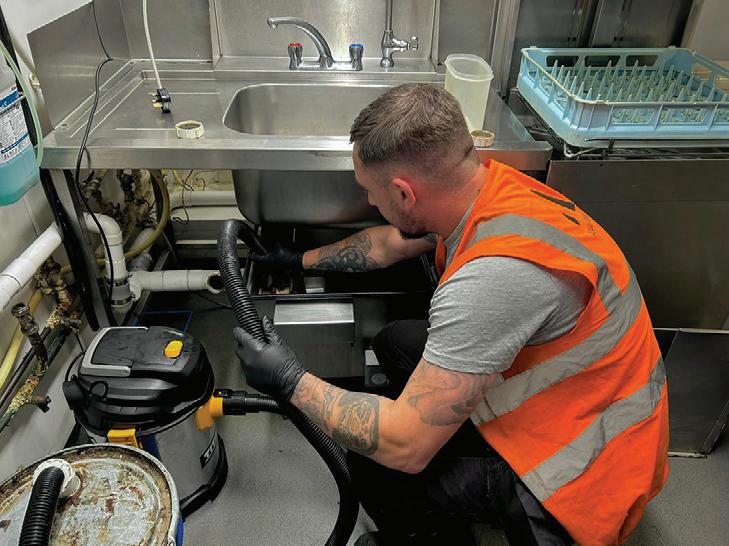
In the UK, businesses that serve hot food are legally required to have a grease trap or separator to prevent drainage blockages and environmental damage. This is enforced through various regulations including the Water Industry Act 1991, Building Regulations 2000 (Part H), and the Environmental Protection Act 1990. Failure to comply can result in fines, re-charges
for damages, and even legal action.
Sewer abuse is a major issue for water companies. Every year, Thames Water removes 75,000 blockages from their sewers at a cost of
Companies are becoming increasingly active in checking of grease trap arrangements at foodservice operations, we urge operators to get
The Meiko BioMaster FLEX food waste recycling system is just 500 mm wide and has 150 mm ground clearance for cleaning, making it ideal for any kitchen situation.
A FLEX system replaces floor bins and can be sited anywhere, next to the dishwasher or within tabling in the kitchen or prep area. The liquid food waste recycling system ensures that there are no open buckets or bins of food waste to move around, no unpleasant odours, and no flies or vermin.
BioMaster FLEX processes, using homogenisation, all typical food waste plus frying oil, coffee grounds, dead flowers and fats into a liquid slurry. This slurry is pumped to the BioTank, where it is collected and transported for biogas, usually every 4-6 weeks.
“FLEX provides the most sustainable, labour-efficient and futureproof recycling solution for
the public sector,” says Meiko UK MD Paul Anderson.
“Featuring the same powerful homogenising motors as the larger BioMaster 4 hoppers, it deals with all typical food waste, including fats and oils, and it brings major cost benefits, including labour and collection cost savings.
“Meiko BioMaster FLEX ensures the caterer retains clear ownership of the waste, which is essential to futureproofing the business. Homogenisation of waste gives the caterer the best negotiating position for cutting removal costs in the future, in addition to benefiting from the labour efficiencies and other cost savings.”
For further information visit www.meiko-uk.co.uk
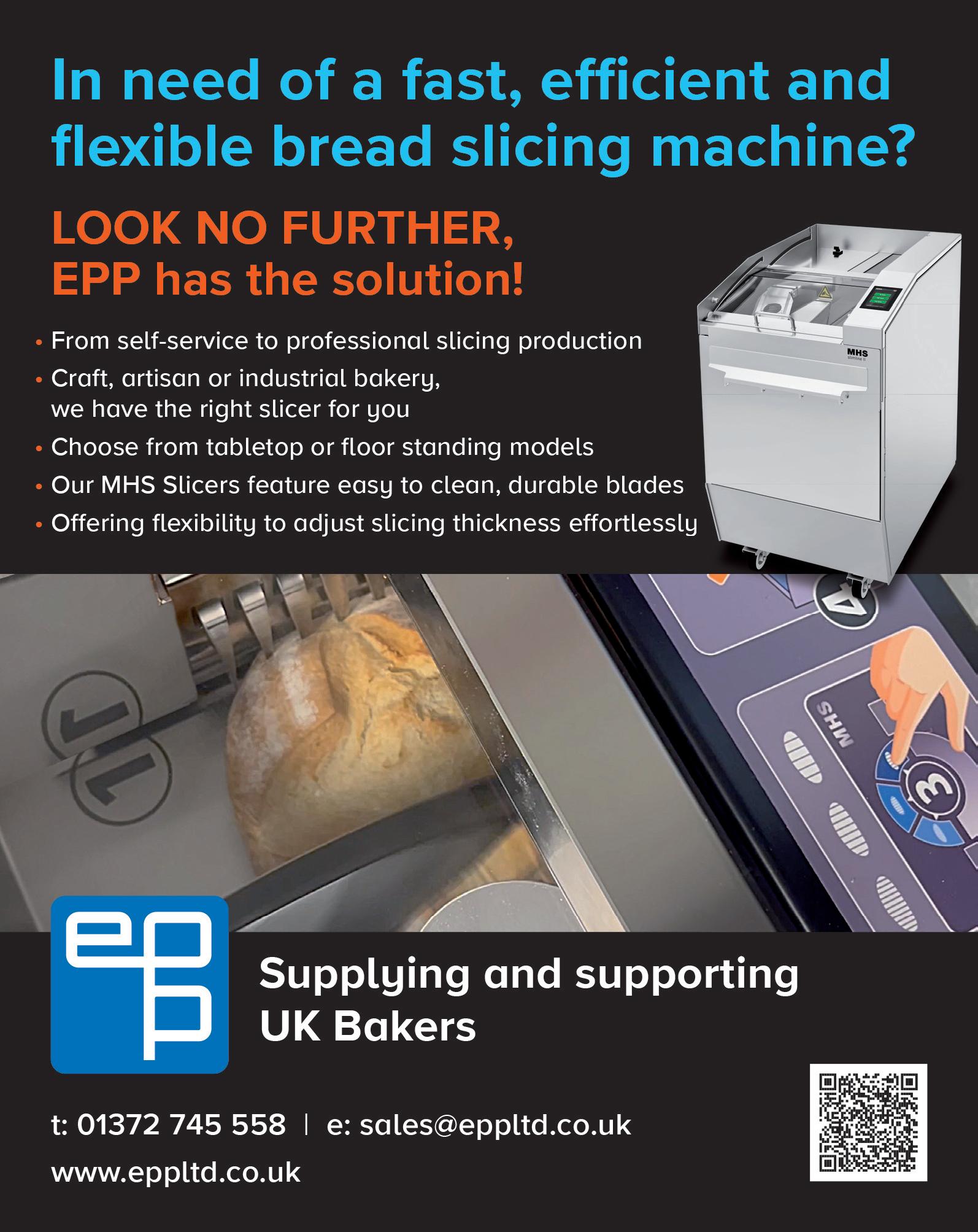
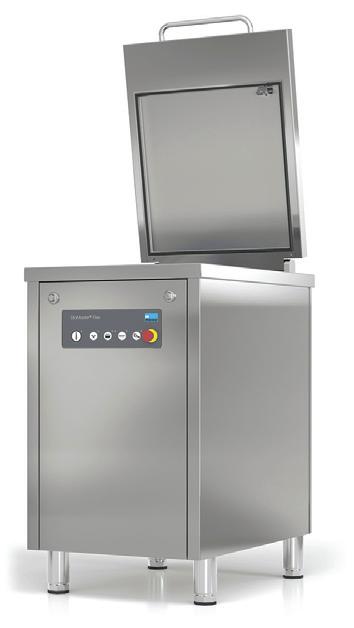

To avoid downtime and problems caused by equipment failure, busy commercial kitchens are selecting the DrainMinor and DrainMajor units from Berkshire based Pump Technology Ltd.
These extremely reliable and well proven waste water drainage systems are becoming the sector’s benchmark for good reason. They use a range of Jung Pumpen submersible pumps built in Germany. These are recognised for their ability to handle pumping systems capable of soaking up the typical demand and abuse that is found in this part of the industry. Constant use and the ability to handle the collection of food debris, grease and fats that even with the best upstream grease protection will eventually feed through to the pumping system does not phase this equipment.
For smaller restaurants and coffee shops the additional premium for these properly engineered pumping systems might be questioned, however this will always be outweighed by the fact that avoiding breakdowns and floods (often during busy service times) will be far more cost effective
than expensive engineer callouts and loss of income.
The DrainMinor and DrainMajor ranges are available in single or duty standby pumping configurations. Options such as the mechanical seal version of the DrainMinor 30SL mean that the pump is resilient to the buildup of spent coffee granules and milk skin that is problematic with the common static lip seal designs found on the motor / impeller shaft of more basic small submersible pumps.
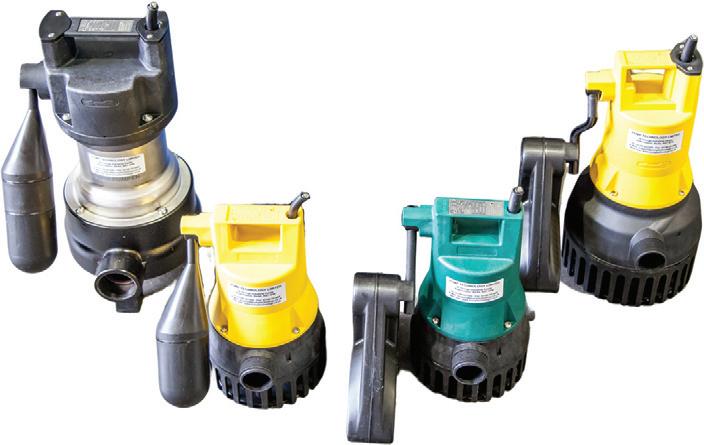
Where hot water pumping is required, Pump Technology Ltd offer the DrainMajor 730HES. This is specifically designed to pump very hot waste water - up to 90°C - not just intermittently for short periods, but continuously. This ensures that system reliability and product life for drainage from dishwashers and pasta boilers is considerably enhanced.
The full range consists of the DrainMinor, with two pump options capable of pumping up to 7m head and the DrainMajor, with seven pump options and single or duty standby con-
Blue Seal Ltd are very mindful of the future equipment requirements for efficiency, carbon footprint and sustainability, with this ever-changing food industry and the cost of gas and electric usage.
We currently produce a new range of free-standing & bench models of heavy-duty induction hobs with two or four zones. Each hob has the versatility of 3.5KW or 5Kw round zone generators for focussed power or 5kw power full area zones to accept multiple pans across the cooking area. The induction technology is incredibly responsive, with hardened 6mm thick glass cooking surfaces.
Blue Seal R&D are conscious of the ever-increasing demand for induction product, and we are in the process of launching our new induction- convection ranges, and wok induction hobs.
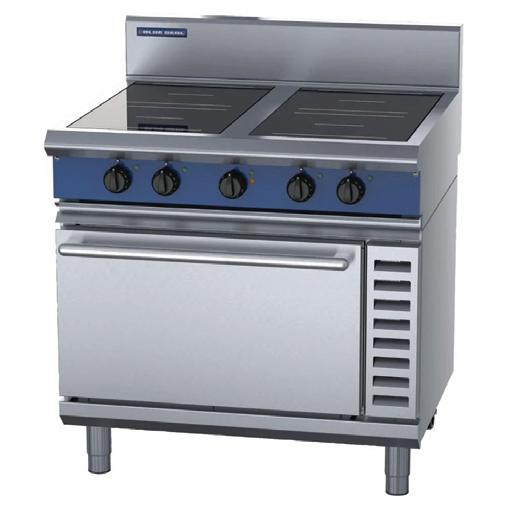
Many commercial chefs are trained at college with gas appliances and do love the instant heat & control of gas. However, they are slowly breaking this habitual comfort and being convinced to make the change, once they experience using Induction, the fantastic responsiveness, instant heat direct to the pan & superb controllability, speaks for itself.
The induction technology lends itself to a myriad of concepts, especially QSR restaurants where they need quick heat up on demand, which is also remarkably simple for the operator to use and maintain.
The feature benefits of induction far outweigh the initial out lay, which is currently still relatively high for com-
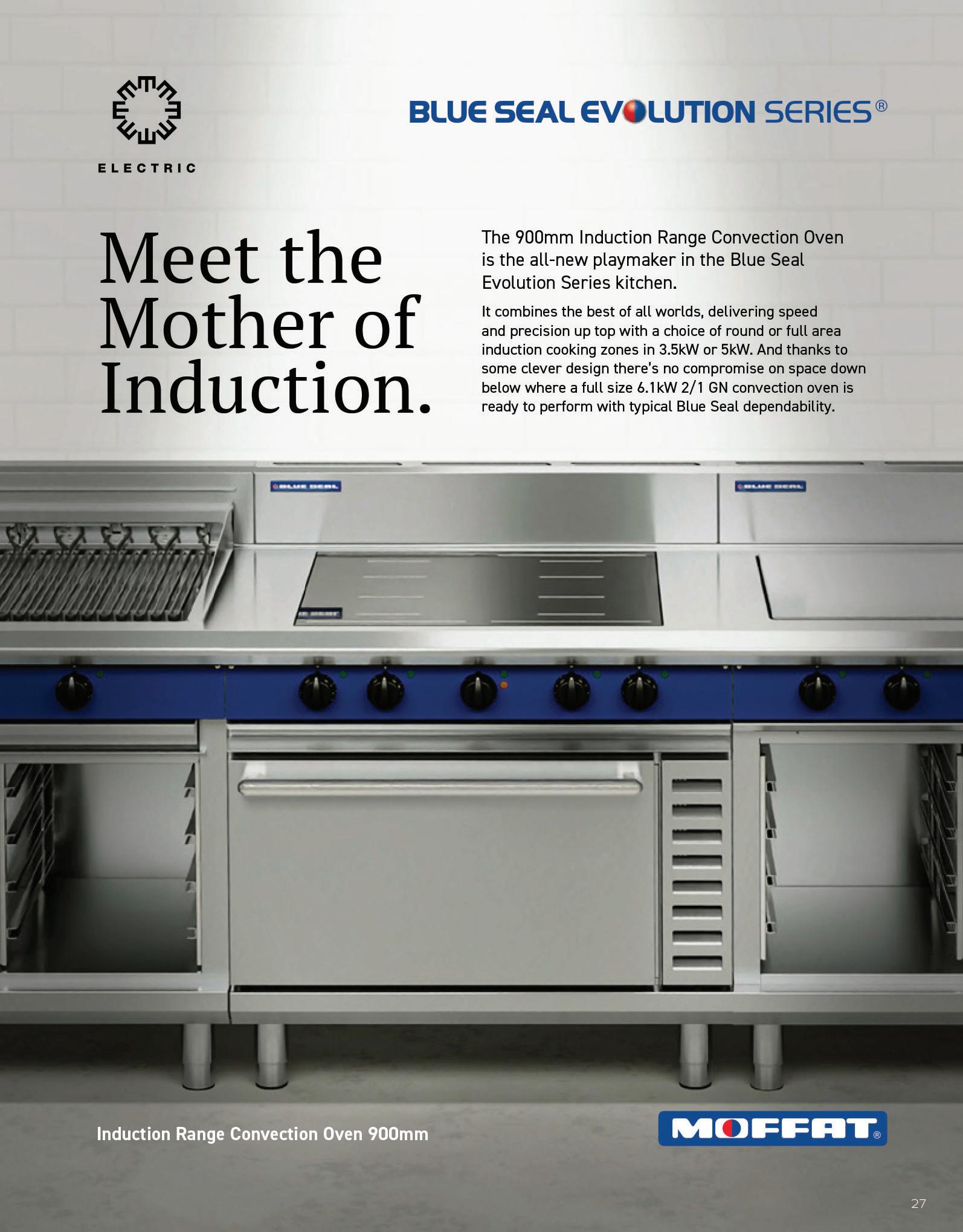

figurations capable of pumping up to 12m head.
Customers, engineers and installers report that a simple conversation about their drainage needs with the Pump Technology Ltd team has often been invaluable when selecting the correct pumping model which they need to specify and fit for the best ultimate value, reliability and long product life.

mercial heavy-duty product. Induction for prime cooking is still relatively fresh to be accepted into the general commercial kitchen environment, however the big energy savings and high efficiency far outweighs the cost of changing the cookware and initial higher cost outlay for the product. This cost will no doubt reduce and become more competitive as the trend & demand for induction manufacture inevitably increases. Induction equipment also avoids the additional very costly legislation requirement involved with gas canopy extraction/make up air and interlock systems.
When you compare the efficiency of using induction over gas, the induction is at approx. 90% efficient compared to approx. 45% efficiency for gas. This is achieved by the magnetic fields heating up the entire surface of the cookware with virtually all of the energy transferred into the pan. Where gas disperses the heat, licking around the sides of the cookware more so, losing energy into the ambient air around the pan.
Using induction massively reduces heat transfer into the air flow, lowers the overall temperature in the kitchen promoting a more comfortable working environment, as well as the practicality of a simple wipe down of the glass cooking area at the end of a shift, which is very appealing to an operator. The appliances are much safer to use, reducing injury potential as well as being very simple to service & maintain.
David Chesshire
National Accounts Manager, Blue Seal www.blue-seal.co.uk

Independent hotels, restaurants, and pubs across England and Wales face a unique set of pressures: rising costs, evolving safety regulations, and the constant juggle between running a great business and keeping the kitchen up to scratch.
At Tricon, we’ve spent decades working alongside independent hospitality operators, helping them turn tired or inefficient kitchens into true commercial assets, without the drama or bigchain price tag.
Whether it’s rethinking a cramped back-ofhouse, phasing a refit to keep service running, or unlocking savings on energy bills, we know the realities of independent hospitality. We start every project with one question: what does your business need to thrive for the next ten years, not just the next trend cycle? From designing kitchens that pass the next round of food safety audits, to finding cost-effective solutions that boost productivity, our team brings ideas that work on the ground.
Mayfair Furniture will be celebrating 12 years this year of providing the UK’s fastest and affordable commercial furniture. Supplying all kinds of establishments from high end hotel chains to small local takeaways.
We keep in stock a huge variety of items ready for immediate dispatch, and can fulfil a wide range of bespoke orders. We deliver to all areas of the UK, Ireland & Europe.
We are not just a supplier; we understand that from time to time hospitality and leisure establishments like to give themselves a fresh new look. That's why not
Our experience covers everything from country inns and boutique hotels to high-street restaurants and city pubs. No generic “cookie-cutter” schemes, just honest advice and design rooted in UK know-how, for businesses run by real people.
“For independents, a well-designed kitchen isn’t a luxury — it’s a necessity for survival. The right investment protects margins, simplifies compliance, and gives operators confidence for the future.”
Mike
Coldicott,
CEO, Tricon Foodservice Consultants
If you want to see what’s possible, and for a practical no-nonsense chat get in touch or check out our recent projects at www.tricon.co.uk
Paul Greenwood
Business Development Manager
paulg@tricon.co.uk
020 8591 5593

only do we supply contract furniture, but when it's time for your establishment to go through a refurbishment we also offer a complete clearance service. We'll organise everything from a suitable time and date, professional clearance staff to remove contract furniture whether fitted or unfitted. Along with our sister company Caterfair who provides commercial catering equipment for your kitchens we are the ideal people to speak to when you are looking to refurbish. 01733 310115
sales@mayfairfurniture.co.uk www.mayfairfurniture.co.uk
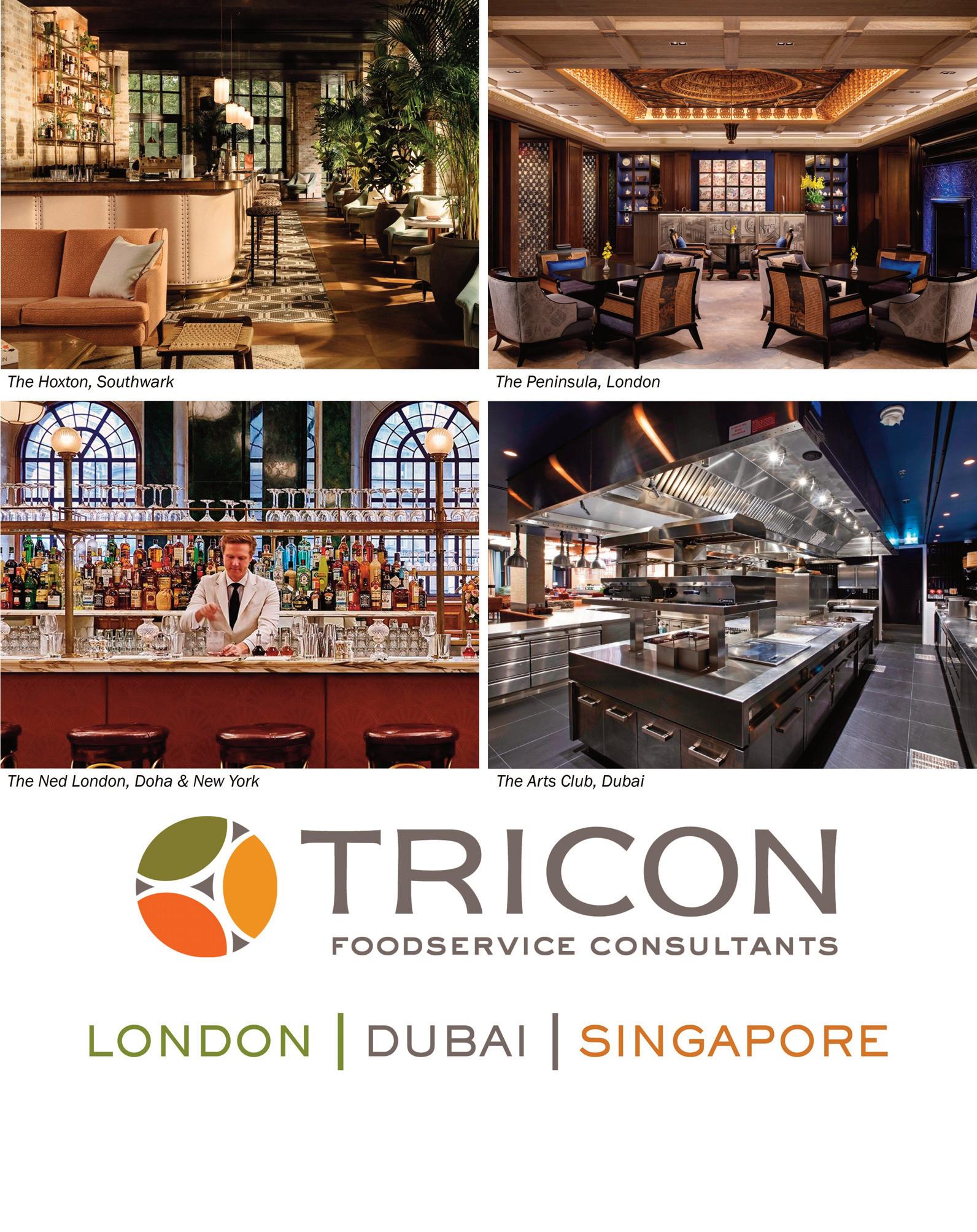






















Have you recently taken over premises, just fancy a change or need to replace your tired old fixed seating and fixtures? At Drakes, we can help you realise your dreams with our bespoke furniture design service. Every week we build new tailormade furniture up and down the UK, working with owners to come up with design concepts for fixed seating, booths and even bars and fixtures. We can take ideas from you, or your interior designer, or we can design something ourselves, all done efficiently, with professional quality and on time within budget.
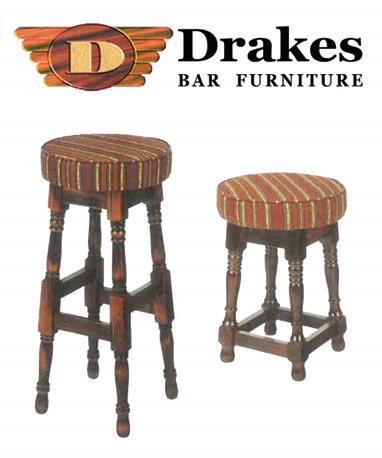
Our service provides a unique opportunity to make your establishment stand out from others and add additional comfort for your customers.
We have been providing bars, pubs, restaurants, cafes, clubs, and hotels with high-quality furniture and fixtures

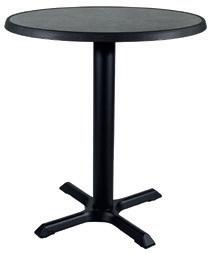






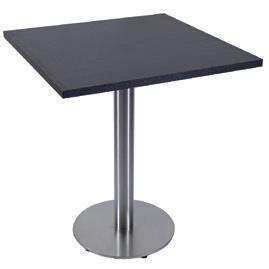
for decades. We employ over 15 joiners, upholsterers, polishers and designers who are capable of installing fixed seating and bespoke joinery, new bars and full refurbishments, or simply making stools for the front of the bar, or providing quality tables that last. Our dedicated team are either time-served officially trained craftsmen or externally based professionals.
Got you interested? We are available for a chat Monday – Thursday: 9.00 am > 4.00 pm and Friday: 9.00 am > 12.00 pm on 01422 839 690. If you prefer, email us at sales@askdrake.com, and of course please visit our website www.askdrake.com to see some of our range and past work. We are also available on Facebook and Instagram, just search for Drakes Bar Furniture and give us a follow!
MST AUCTIONEERS Ltd specialise in handling & auctioning a wide variety of goods.
We act for Insolvency Practitioners, Receivers, Bailiffs and Solicitors as well as large PLCs.
We are members of The National Association of Auctioneers and Valuers (NAVA).
For the past 25 years, we've provided a unique disposal service tailored to suit, liquidators, banks, receivers as well as private and corporate vendors. We carry out probate valuations and conduct complete house and commercial clearances.
We have the largest Auction venue in the South of England. Our regular monthly Auctions occupy 45,000 sq.ft. of undercover space, selling over 2500 lots from 3 rostrums over two days.
We also hold regular Auctions ”On Site” and "On Line"
Visit www.mstauctioneers.co.uk



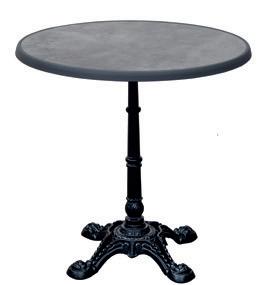









In the world of hospitality, design isn’t just about aesthetics, it’s about shaping experiences. Cult Trade, the dedicated trade division of Cult Furniture, is helping bars, restaurants, and hotels across the UK do exactly that by creating striking, design-led interiors that leave a lasting impression.
With a passion for accessible, contemporary design, Cult Trade delivers a curated collection of furniture, lighting, and accessories that balance style with durability, perfect for high-traffic hospitality environments. From sculptural bar stools and marble-topped tables to plush lounge seating and statement lighting, every piece is selected to transform a venue into a space guests want to return to. Modern consumers expect more than quality drinks and good service; they crave spaces that feel aspirational and memorable. Cult Trade helps brands meet that demand by designing spaces that elevate the guest experience, encouraging longer stays, social shares, and repeat
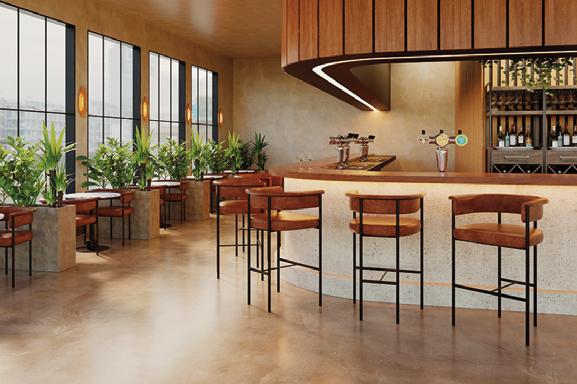
visits.
But Cult Trade is more than just product. Their service-led approach includes flexible trade pricing, low minimum orders, and access to thousands of in-stock products with next-day delivery. With a dedicated team supporting everything from specification to delivery, they streamline the process so clients can focus on creativity and customer experience.
From boutique hotel lobbies to stylish city cocktail bars, Cult Trade’s impact is being seen, and felt, across the hospitality industry. Their growing influence proves that great interiors don’t just fill a room; they define the energy of a space.
Looking to refresh your venue? Discover how Cult Trade can help you design spaces that leave a lasting impression.
Visit cultfurniture.com/trade
Rearo, a leading UK manufacturer and supplier of laminate surfaces, offers a wide range of high-quality cubicles for most washroom environments. Their products prioritise privacy, durability, and style, catering especially to hospitality and leisure.
Rearo is committed to sustainability, sourcing timber from FSCcertified forests and operating closed loop waste management. Their commercial team provides expert support, including site measurements, specifications, and design assistance.
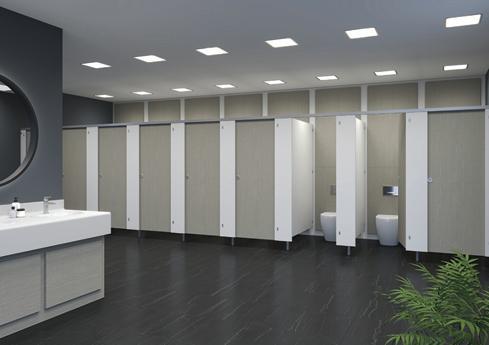
Rearo's cubicles, new for 2025, range from the luxurious timelessness of Triumph, through Elevate’s modern cubicles with both height and privacy, to Enhance, which offers a wide range of décors to suit individual preferences, and Aspire’s made-to-measure cubicles for quick delivery - ideal for budget-conscious projects. Finally, RapidFit offers off-the-shelf cubicles and IPS for fast and efficient installations.
Rearo's RapidFit is the perfect solution for fast, easy, and stylish washroom transformations. Designed to meet tight deadlines, our off-the-shelf RapidFit range offers a variety of toilet cubicles and vanity units.
Why Choose RapidFit?
• Speed: Quick and easy installation with flat-pack cubicles.
• Style: A range of high-quality laminate finishes to suit any aesthetic.
Accessibility: Colours and textures chosen to comply with The Equality Act.
• Durability: Options for both light and heavy-duty use. Contact your local fitter, joiner, or plumber to request free sample packs and design assistance. Or order your RapidFit washroom directly today.
commercial@rearo.co.uk www.rearocommercial.co.uk
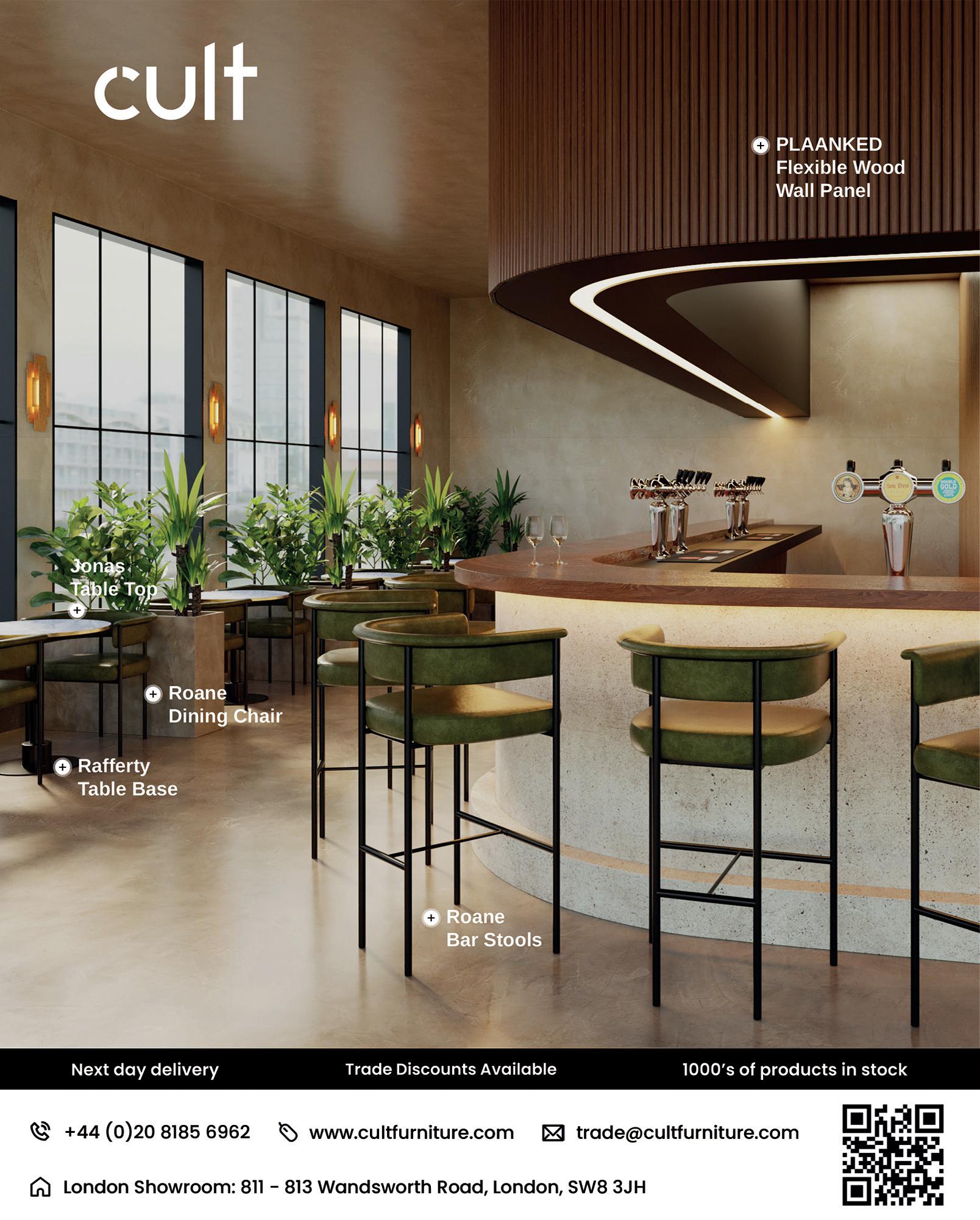


Whether you’re furnishing a restaurant or clubhouse or adding some flair to a bar or pub, upholstered chairs make your space look and feel inviting and comfortable.
Here at Trent Furniture, we offer a great range of upholstered chairs designed to withstand the heavy demands of the hospitality environment, available in wipe-clean faux leather or tough, easy-to-maintain fabric.
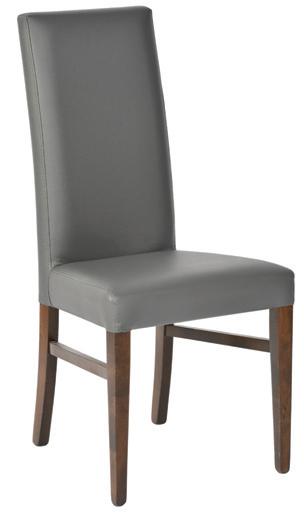
A firm customer favourite thanks to its contemporary classic design, the Sorrento Chair is currently available with 10% off across the extensive range. Choose from five faux leather options or plain or checked fabric for the perfect match for your venue.
Alternatively, the Andorra Chair offers eye-catching classic style in brown faux leather or a
choice of two chic checks. Pair it with the matching Tall Andorra Stool at the bar or with your poseur tables to add a touch of luxury to your surroundings.
Regal yet compact, the Regent Chair’s smaller size and low back make it perfect for cosy corners without comprising on comfort. Choose from the warm Autumn check pattern or rich brown faux leather to add some welcoming warmth to your space.

Whichever upholstered chair you choose, you can be assured of strong wooden frames, contract grade foam and fire-retardant fabric. To find out more about these and the other great upholstered chairs in our vast range, please call us on 01162 864911 or email sales@trentfurniture.co.uk
Dining Chairs UK, are proud to be a trusted supplier to the hospitality industry and licensed on-trade, providing cost-effective furniture solutions for commercial venues across the country. Whether you operate a bustling restaurant, a stylish hotel lounge, or a traditional pub, the right furniture plays a crucial role in defining your space. We specialise in providing a comprehensive range of hospitality furniture, including chairs, bar stools, table tops, table bases, and outdoor furnishings—ensuring you have access to premiumquality products at competitive prices. We understand that every venue is unique. That’s why we offer tailored solutions to match your brand’s identity and aesthetic vision. Our expert team works closely with business owners, designers, and hospitality professionals to source and specify furniture that seamlessly blends style, durability, and functionality.
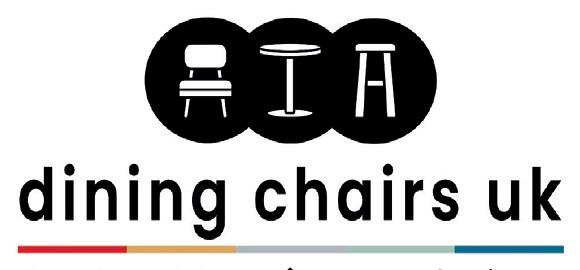
At Dining Chairs UK, we believe in making commercial furniture buying as simple and stress-free as possible. Our vast selection of in-stock items means you can furnish your establishment quickly, without long lead times. Plus, with our competitive pricing and quick delivery options, achieving the perfect look for your business has never been easier.
We’re so confident in our pricing that if you find the same product at a lower price elsewhere, we won’t just match it—we’ll strive to beat any like-for-like quote. This commitment to affordability ensures that your business gets the best value without compromising on quality.
For more information, visit www.diningchairsuk.com or call us to discuss how we can support your next project.

mutually beneficial eight-year partnership and a six- figure asset sale value with this leading hospitality business.
It comes at a time when BPI has secured a record amount of asset auctions in the hospitality sector as more businesses see it as a way of meeting their circular economy principles. For the past eight years, BPI has worked in close partnership with Whitbread PLC, the parent company to Premier Inn, supporting the company’s commitment to sustainability by managing the resale and repurposing of its previously used catering equipment.
As one of the UK’s leading hospitality companies, Whitbread, home to brands like Premier Inn, has taken a keen interest in environmentally responsible solutions when upgrading its assets.
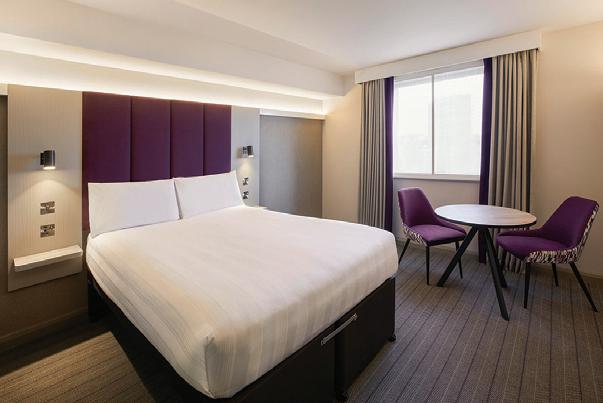
By partnering with BPI, Whitbread’s catering equipment has been given a second life, rather than contributing to landfill waste. Through its specialised auction services, BPI has facilitated the resale of Whitbread’s surplus assets, helping a new wave of business owners, including takeaway operators and independent restaurateurs acquire highquality equipment at an affordable price.
Supporting sustainability through smart asset disposal
This sustainable approach not only reduces environmental impact but also aligns with Whitbread’s sustainability strategy, Force for Good. Working with BPI, Whitbread has found an efficient and sustainable solution to asset disposal, minimising its waste, fuelling the circular economy and achieving maximum returns.

With over 30 years of industry experience in the Hospitality sector, The Bowden Group’s Managing Consultant David Hunter will work with you to address the following elements:
Profitability, Operational Strategy, Staff Management, Marketing and The Future of your business.
Our experts will analyse your entire operation and also its key operating figures if they are available. We then help you to identify strategies to manage costs and overheads associated with the core Profitability of running a Hospitality business.
The largest overhead, even higher than Cost of Sales, is the Labour cost, so, with detailed analysis of your wages and being able to understand ‘’the way
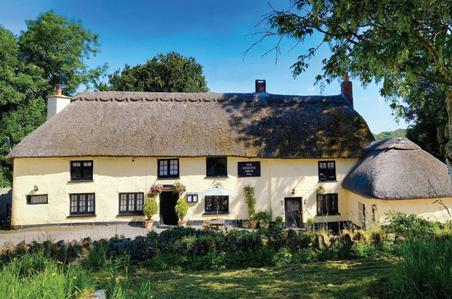
your business actually works’’ we can ensure that you are maximising the labour usage in your business.
Budgeting, Forecasting, Menu Management, Stock Controls, Purchasing, and controlling Variable Costs are just a few of the other areas that David Hunter, your Restaurant Consultant, will work on with you, and improve with you.
Managing people brings with it a whole set of new skills that are now needed more than ever. From ‘’Managing the Managers’’ through to Service and Kitchen staff, your team needs careful and skilful Management, Motivation, guidance and Development. If your business is actually struggling, or if you just feel that it could be doing some things better, give David Hunter a quick call on 07831 407984 to arrange a ‘’Free of Charge’’ initial consultation (please quote CLH Offer), when David will discuss with you what could be achieved if you ask us to work with you.

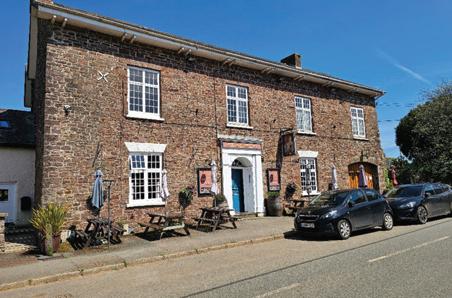
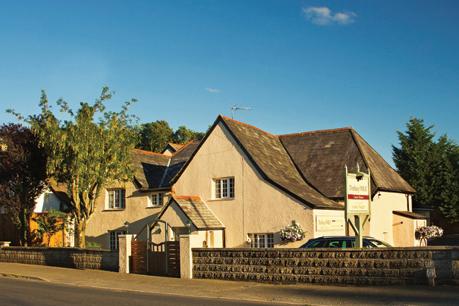
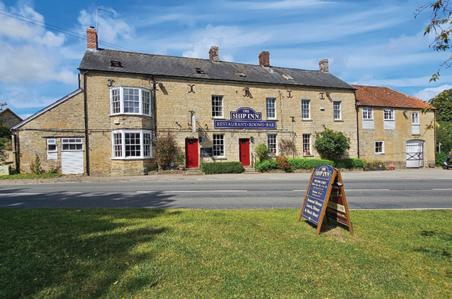

Dave Cummings, Business Development Manager at BPI highlights the success of this partnership: “Working with Whitbread PLC has been a fantastic example of how businesses can integrate sustainability into its asset management. By choosing to recycle and repurpose its assets, Whitbread has prevented unnecessary waste while also supporting new business owners. Our auctions provide a platform for quality equipment to continue its lifecycle, making a real impact on the circular economy.”
Nationwide service for a nationwide brand
BPI operates across the UK to manage Whitbread’s asset sales, ensuring seamless logistics and hassle-free handling of their equipment from collection to resale. Whether it’s upgrading their kitchen equipment or relocating site, Whitbread benefits from BPI’s ability to generate maximum return on investment while upholding their green commitments.
Through this long-standing partnership, BPI and Whitbread PLC continue to set an example in the hospitality sector—proving that business efficiency and sustainability can go hand in hand.
For more information on BPI, please visit: www.bpiauctions.com/assetdisposal/ or see the advert on page 15.
The pub industry is facing long-term decline. Over 400 pubs closed in England & Wales in 2024 - total numbers fell below 39,000 for the first time - the most since 2021 during the COVID pandemic. Rising National Insurance contributions, increased wages, and reduced business rate relief from April 2025 will further strain the sector.
The situation is similar for the hotel and restaurant industry. Recent research by the British Institute of Innkeeping shows that only 50% of UK hospitality businesses are making a profit.
How can Antony Batty & Company help?

As Licensed Insolvency Practitioners, our aim is to save businesses, with liquidation being a last resort. Key options include:
• Time to Pay Arrangements with HMRC – Structured payment plans that give businesses time to repay debts. We have extensive experience negotiating these.
Additional Finance – We have strong relationships with lenders who may provide
Voluntary Arrangement (CVA)
If creditors are demanding
ment, we can propose a structured repayment plan. This allows part of the debt to be written off, avoiding liquidation. A CVA is a recovery process that gives businesses time to turn things around.
Directors need to be aware of their responsibilities: continuing to trade when a business is loss making and to the detriment of creditors can result in personal liability. So, if your company is struggling, early professional advice is vital. Figures from R3, our industry body, show that Insolvency Practitioners rescue 40% of insolvent businesses who appoint them over a 12month period.
We will guide you through your options, ensuring you make the best possible decision.
Contact us today: www.antonybatty.com/contact/

